#she’s part of the original series I plan to pitch to a studio one day)
Explore tagged Tumblr posts
Text
Words to live by

(also subscribe to my yt channel I just finished my first animation meme in 2 years and I’m posting it tomorrow) https://youtube.com/@mr.mediocre2302
#that cat character is my oc crystal kitt btw#she WAS an old joke deltarune oc#but I got attached to her and now she’s a legit oc and I ship her with kris :>#(she also has a human form I mess around with most often#she’s part of the original series I plan to pitch to a studio one day)
1 note
·
View note
Text
Dragon Age development insights and highlights from Bioware: Stories and Secrets from 25 Years of Game Development
Some really tasty factoids here.

Cut for length.
Dragon Age: Origins
The continent of Thedas was at one point going to be named Pelledia, a name initially floated by James Ohlen
“Qunari” was a temporary name that ended up unintentionally sticking, much like “Thedas”
Mary Kirby wrote the Landsmeet. To this day, nobody understands how it works, except possibly her. If she’s “really really drunk” she can explain how it works. There’s as many words in it as Sten’s entire conversations put together
Concept art for Thedosian art - as in in-world art - draws heavily on Renaissance-era portraiture, the Art Nouveau movement, religious styles and media like stained glass, and favorite pieces from the golden age of illustrations in the early 20th century
Andrastianism in-world (art-wise) is depicted in wildly different methods depending on who in-world made the art in question. “One religion, 3 different lenses”. There’s the Chantry take, the Orlesian take and the Fereldan take; each with its own different interpretations, different mediums and different stories
The stained glass images were drawn by Nick Thornborrow for DAI, to decorate religious spaces in that game “and beyond”
irl Viking art influenced Ferelden
Greek and Italian art influenced Orlais
The book also had other insights into and anecdotes from the development of DAO, but I’ve transcribed them recently as they’re essentially the stories DG has recently been relating on the awesome Summerfall Studios DAO playthrough Twitch streams. (On those streams he provides dev commentary while Liam Esler plays through DA. The ones with DG are currently once every two weeks. Check them out! Here’s a calendar where you can check when the next one is) Instead of repeating myself I’ll just provide the link to the first transcript. From there you can navigate to the subsequent parts. Note these streams are ongoing. At this point I will also point you to a related post which is cliff notes of the Dragon Age chapter in Jason Schreier’s book Blood Sweat and Pixels.
Dragon Age II
DAO had the longest development period in BioWare history. In contrast DA2 had the shortest
Initially DA2 was going to be an expansion to DAO. A few months in EA said “Yeah, expansions like these don’t sell very well, so let’s make it a sequel.” So it suddenly became DA2 and they had to make it even bigger, although they still only had 1.5 years of time in which to do this
Production of DA2 officially lasted only 9 months, and at the time the team was still supporting live content for DAO! They finished development that January after the design team crunched all the way through the holiday period that year. Then it went to cert 9 times
The limited time they had is why the story takes place mostly in and around 1 city, and over 7 years (so it was temporal, rather than over physical distance, because a more expansive world would have taken more irl time to make)
They had no time to review even the main plot. Mike Laidlaw pitched the idea of 3 stories taking place at different points in the PC’s life, tied together by Varric’s recollections of events. DG rolled with this and made 1 presentation on the idea. This presentation was then approved and off they went
As they were writing DG realized that there was going to be no oversight and that everything was going to be a ‘first draft’. “Because nobody had time.” He sat down with the writers and said “Look, here’s the conditions we’re working under. A lot of what we’re putting out is gonna be raw. We’re not going to get the editing we need. We’re not going to get the kind of iteration we need. So I’m going to trust you all to do your best work.”
Looking back, DG has mixed feelings on DA2. “A lot of corners were cut. The public perception was that it was smaller than DAO. That’s a sin on its own.”
Despite this he thinks DA2 has some of the best writing in the series, especially character-wise. The DA2 chars are his favorite
The pace with which production progressed may in some ways have helped. “When we do a lot of revision, we often file away [as in buff off] some of the good writing as well. Somehow DA2′s whirlwind process resulted in some really good writing”
The pace meant chars landed on the writers in various stages of completion. For example Isabela was fairly defined due to appearing in DAO. In contrast Varric at the start was just that single piece of widely-shown concept art
Varric was conceived as a storyteller not a fighter. His skills are talking and bullshitting. Hence the question became, so what does this guy do in combat? The direction was to make him as different as possible to Oghren, so not a warrior. He couldn’t be a dual-wielding rogue in order to differentiate him from Bela. But you can’t really picture this guy with a bow. “For a dwarf, it would probably be a crossbow. We didn’t have crossbows, or we only had crossbows for the darkspawn. And they were part of the models. We didn’t have a separate crossbow that was equip-able by the chars. They had to like, crop one off a darkspawn and remodel it. And that became Bianca” (quote: Mary Kirby)
“Dwarven mages are exceedingly rare.” [???]
If DAO was a classic fantasy painting, DA2 was a screenshot from a Kurosawa film or a northern Renaissance painting. (Here Matt Rhodes was commenting on art style)
John Epler: “In any one of our games, there’s a 95% chance that if you turn the camera away from what it’s looking at, you’ll see all kinds of janky stuff. The moment we know the camera is no longer facing someone, we no longer care what happens to them. We will teleport people around. We will jump people around. We will literally have someone walk off screen and then we will shift them 1000 meters down, because we’re fixing some bug.” John also talked about this camera stuff in a recent charity Twitch stream for Gamers For Groceries. There’s a writeup of that stream here
Designing Kirkwall pushed concept artists to the limits of visual storytelling, because it has a long history that they wanted to be present. It was once the hub of Tevinter’s slave empire, so it needed to look brutal and harsh, but it also then needed to feel reclaimed, evolved, and with elements of contemporary Free Marches culture
The initial plan was for DA titles to be distinguished by subtitles not numbers, so that each experience could stand on its own rather than feel like a sequel or continuation. (My note: New PCs in each entry make sense then when you consider this and other factoids we know like how DA is the story of the world not of any one PC). Later, DA2′s name was made DA2 in a bid to more clearly connect the game to its predecessor. For DAI they returned to the original naming convention. (My note: so I’d reckon they’d be continuing the subtitle naming convention for DA4)
DA2 was initially code-named “Nug Storm”, strictly internally
The Cancelled DA2 Expansion - Exalted March
This was a precursor to DAI
It was meant to bridge the gap between DA2 and DAI
It focused on the fallout from Kirkwall’s explosion, with Cory serving as the villain
Meredith’s red lyrium statue was basically going to infest Kirkwall and it would end up [with what would end up] the red templars taking over Kirkwall and essentially being Cory’s army
To stop him Hawke would have recruited various factions, including Bela’s Felicisima Armada and the Qunari at Estwatch, forcing Hawke to split loyalties and risk relationships in the process
It was meant to bring DA2′s story to an end and end in Varric’s death. DG was very happy with this because all of DA2 is Varric’s tale. The expansion was supposed to start at the moment Cassandra’s interrogation of him ended in the present. “And we finished off the story with Varric having this heroic death.” It tied things up and would have broken many fan hearts, something BioWare writers notoriously enjoy. But between a transition to the new Frostbite engine and the scope of DAI, the decision was made to cancel EM, work any hard-to-lose concepts into DAI, and in the process save Varric’s life. DG has talked about the Varric dying thing before
Concept art for EM explored new areas previously not depicted in the DA universe, with costumes that reflected next steps for familiar chars. Varric was going to war, what would he have worn? With Anders, if he survived DA2, the plan was to present a redeemed Warden
A char that vaguely resembled Sera in DAI was first concepted for EM. This fact was mentioned near this concept art (see the female elf) and this concept art of Bethany with the blond bob
The writers sketched out plans to end it with Hawke having the option to marry their LI. This included alternate ceremonies for party members like Bethany and Sebastian if the player opted not to wed. There was even a wedding dress made for Hawke. This asset made it into DAI (Sera and Cullen’s weddings in Trespasser). The dress can also be seen in DAI during an ambient NPC wedding after completing a chain of war table missions
The destruction of a Chantry was explored in concept art as it might have happened in EM. This idea ended up carrying over to the beginning of DAI. (My note: Lol, the idea that DA2 could have had 2 Chantries being destroyed in it 😆)
World of Thedas
Sheryl Chee and Mary Kirby started with “a disgusting little dish called fluffy mackerel pudding”. In the middle of DAO’s busy dev period one of them (they can’t remember who) found a recipe online for this, scanned in from a 70s cookbook. “I don’t understand why it was fluffy. Why would you want fluffy mackerel pudding?” MK says. “We loved it so much we included it in a DAO codex.”
This led them to create more food for Thedas, full recipes included, like a Fereldan turnip and barley stew from MK and SC’s Starkhaven fish and egg pie. The fish pie became Sebastian’s favorite. “To me it made sense for it to be fish pie because a lot of the Free Marches are on the coast”, SC says, “It was something that was popular in medieval times, so I thought, let’s make a fish pie! I looked at medieval recipes and I concocted a fish pie which I fed to my partner, and he was like ‘This is not terrible’”
For WoT the whole studio was asked to contribute family recipes which might have a place in Thedas. SC adapted these to fit in one Thedosian culture or another, including a beloved banana bread that localization producer Melanie Fleming would regularly bake to keep the DA team motivated. “Melanie’s banana bread got us through Inquisition”
DAI
It says part of DAI takes place in or near the border with Nevarra [???]
This game was aimed to be bigger than DA2 and even DAO in every conceivable way
The first hour had to do a lot of heavy lifting, tying together the events of DAO and DA2 while introducing a new PC, new followers etc in the aftermath of the big attack. DG rewrote it 7 times then Lukas Kristjanson did 2 more passes
DG: “Our problem is always that our endings are so important, but we leave them to last, when we have no time. I kept pushing on DAI: ‘Can we work on the ending now? Can we work on the ending now? Can we do it early on?’ Because I knew exactly what it was going to be. But despite the fact that it kept getting scheduled, whenever the schedule started falling behind, it kept getting pushed back... so, of course, it got left til last again.”
“The reveal of the story’s real antagonist, Solas, a follower until the end, when he betrayed the player”. “Solas’ story remains a main thread in Inquisition’s long-awaited follow-up” [these aren’t DG quotes, just bits of general text]
Over the course of development they had 8 full-time writers and 4 editors working on it. Other writers joined later to help wrangle what ended up being close to 1 million words of dialogue and unspoken text. While many teams moved to a more open concept style of work for DAI, the writers remained tucked away in their own room, a choice DG says was necessary, given how much they talked. All the talking had a purpose ofc as if someone hit a bump or wall in their writing they would open the problem up to the room
As writing on a project like DAI progresses, the writers grow punchier and weirder things make it into the game. This is especially the case towards the end of a project (they get tired, burned out)
Banter and codexes require less ‘buy-in’ (DG has talked about this concept a few times on the Twitch streams) from other designers. DG liked to leave banter for last as a reward because it was fun. Banter begins as lists of topics for 2 followers to discuss. These may progress over time or be one off exchanges. One banter script can balloon to well over 10k words. “The banter was always huge because we were always like, laughing, and really at that point, our fields of fucks were rather barren, so we would just do whatever”
The bog unicorn happened pretty much by accident. It was designed by Matt Rhodes and was one of his fav things to design. They needed horse variations and he had already designed an undead variant which was a bog mummy [bog body]. irl these are preserved in a much different way to traditional mummies. When someone dies in a bog their skin turns black and raisin-like. The examples we know of tend to have bright red hair for whatever reason. It’s a very striking look and MR wanted to do a horse version of this as he thought it’d be neat. 5 mins before the review meeting for it he had a big ‘Aha!’ moment, quickly looked up a rusty old Viking sword, and photoshopped it through its skull like that was how it died. “And I was like, ‘I just made a unicorn. Alright, in it goes!’” It got approved. “So we built the thing. It fit. It told a little story”
With the irl Inquisition longsword, one of the objects they tested its cleaving ability on was a plush version of Leliana’s nug Schmooples
The concept art team explored a wide variety of visuals for the Inquisitor’s signature mark. It needed to look powerful and raw but couldn’t look like a horrific wound. In some cases, as cool as the idea looked on paper, they just weren’t technically feasible, especially as they had to be able to fit on any number of different bodies
Bug report: “Endlessly spawning mounts! At one point during development, Inquisitors could summon a new horse every time they whistled, allowing them to amass a near infinite number of eager steeds that faithfully followed them across Thedas. “You could go charging across levels and they’d all gallop behind you,” Jen Cheverie says, “It was beautiful.” Trotting into town became an epic horse siege as a tidal wave of mounts enveloped the streets. Jen called it her Army of Ponies”
The giants came from DA Week, an internal period when devs can pursue different individual creative projects that in some way benefit DA. They also had a board game from one of these that they were going to put in but they didn’t have time. It’s referenced though. It was dwarven chess
Josie’s outfit is made of gold silk and patterned velvet, with leather at her waist. She carries “an ornate ledger” and she has “an ornamented collar sitting around her neck, finished by a brilliant red ruby, like a drop of Antivan wine in a sunbeam”
Iron Bull’s armor is leather. His loose pantaloons and leather boots give him agility to charge
On DAI in particular, concept artists took special care to make sure costumes would be realistic, at least in a practical ‘this obeys the laws of physics and textiles’ sense. “While on Inquisition, we thought about cosplay from a concept art perspective. Given how incredible a lot of [cosplays] are, I now am not worried about them. In fact in some cases in the future I want to throw them curveballs like, ‘All right, you clever bastards. Let’s see if you can do this!’”
2 geese that nested on the office building and had chicks were named Ganders and Arishonk (it wasn’t known who was the mom or the dad). Other possible names were Carver Honke, Bethany Honke, Urdnot Pecks, Quackwall, Cassandra Pentagoose, the Iron Bill, Shepbird, Garroose, Admiral Quackett, Scout Honking, HChick-47 and Darth Malgoose
Bug report: “The surprising adventures of Ser Noodles!” DAI was the first time the series had a mount feature, meaning this had a lot of bugs. A lot of the teams’ favorite bugs were to do with the mounts. There was a period of time where the Inquisitor’s horse seemed to lose all bone and muscle in its legs. They had a week or so where all quadruped legs were broken. It was a bit noticeable in things like nugs and other small beasties but the horse was insanely obvious. “The first time we summoned the horse [for this] and started running around, the entire QA exploration room just exploded with laughter.” Its legs flapped around like cooked fettucine, leading testers to lovingly nickname it Ser Noodles. At galloping speeds the legs almost looked like helicopter blades, especially when footage was set to classic pieces such as Wagner’s Flight of the Valkyries
For DAI the artists were asked questions like “What would Morrigan wear to a formal ball? Can Cassandra pull off a jaunty hat?”
On DAI storyboarding became the norm. John Epler: “Cinematic design for the longest time was the Wild West. It was ‘here’s a bunch of content, now do it however you want’, which resulted in some successes and some failures.” Storyboarding gave designers a consistent visual blueprint based on ideas from designers, writers and concept artists
Quote from a storyboard by Nick Thornborrow (the Inquisitor going into the party at the end of basegame sequence): “Until Corypheus revealed himself they could not see the single hand behind the chaos. A magister and a darkspawn combined. The ultimate evil. So evil. Eviler than puppy-killers and egg farts combined.”
A general note on concept art:
In the early stages of any project, before the concept artists are aware of any writing, they like to just draw what they think cool story moments could be. It’s not unusual for the team to then be inspired by these and fold them into the game as the project progresses
– From Bioware: Stories and Secrets from 25 Years of Game Development
#dragon age 4#the dread wolf rises#dragon age#bioware#video games#the da4 tags are due to a few references to da4#cassandra pentaghast#my lady paladin#lul#feels#solas#mass effect#garrus vakarian#best boy#morrigan#queen of my heart#fenris#the Fenaissance#Bioware: Stories and Secrets from 25 Years of Game Development spoilers#Bioware: Stories and Secrets from 25 Years of Game Development spoiler#Bioware: Stories and Secrets from 25 Years of Game Development#spoilers#spoiler#mj best of
3K notes
·
View notes
Link
Since 2005, Shondaland has produced groundbreaking television. And over the course of 17 seasons, Grey’s Anatomy has made more than its fair share of bold choices. From the killing off of Patrick Dempsey’s beloved McDreamy to the still-controversial ghost-sex story line, the ABC series has seen, and done, it all. But perhaps no episode was riskier than turning the popular medical drama into a musical for “Song Beneath the Song,” the infamous season-7 hour in which a pregnant Callie (Sara Ramirez) gets badly injured in a car accident and, while her fellow doctors work to save her life, sees her hallucinatory self burst into song — with the rest of the characters quickly following suit.
Coming from the mind of series creator Shonda Rhimes, a vocal fan of both Broadway shows and TV musicals like Buffy’s “Once More, With Feeling,” the Grey’s musical episode was a monumental moment for the show and for television. Many viewers praised its audacity and swooned over the vocal chops of stars like Ramirez and Chandra Wilson.
“Song Beneath the Song” made for one of the most memorable hours of television, earning strong ratings and leading the soundtrack, particularly Ramirez’s show-stopping rendition of Brandi Carlile’s “The Story,” to Billboard success. A decade later, its impact is still growing, thanks in part to the countless teenage Grey’s fans who’ve only recently discovered the series via Netflix. Like the show itself, the musical has become an indelible part of TV history — and so, 10 years after its premiere in March 2011, we spoke to the episode’s cast and crew to get the story of how it came to be.
Featuring thoughts from Rhimes; writers, producers, and co-showrunners Tony Phelan and Joan Rater; and actors Wilson, Kevin McKidd, Jessica Capshaw, Kim Raver, and Eric Dane, this is the oral history of “Song Beneath the Song.”
Finding the Inspiration
Inspired by a 2008 benefit concert in which several stars of Grey’s and its spinoff show Private Practice performed songs to support out-of-work Hollywood workers during the 2007-2008 writers’ strike, Rhimes decided to turn her long-held desire to make a Grey’s musical episode into a reality.
Rhimes (series creator and writer): I remember thinking to myself at a certain point, I have this sort of murderers’ row of Broadway people. Like, Chandra had been on Broadway and singing; obviously, Sara Ramirez had won a Tony on Broadway [for Best Featured Actress in a Musical, in 2005], which is how I first met her; and then I knew that Kevin could sing. There were so many people in the show with beautiful voices. ... It felt like it was leaning in that direction in a good way.
Rater (writer, producer, and co-showrunner): The first iteration for, like, two days when we first started batting around the idea was that we would write original music. It was all gonna be original music. And then we quickly realized that a) who’s gonna write that music?, and b) no, it doesn’t feel like the right thing. And then Shonda, I think a day or two later, came in with the idea that we would use these iconic songs.
Wilson (Dr. Miranda Bailey): But the studio wasn’t quite on board with this whole idea.
Convincing a Skeptical Network
After coming up with the episode’s plot and deciding that the characters would sing classic songs from the Grey’s soundtrack, like Snow Patrol’s “Chasing Cars” and the Fray’s “How to Save a Life,” Rhimes pitched the idea to the network — but, in a surprising first, she was told that they were going to pass.
Rhimes: By that point, I wasn’t getting notes on anything; nobody was saying no to me about anything. So it was really bizarre to me that there was all this resistance to doing a musical episode. And I remember somebody at the network saying, “Can’t you just do one of your love-triangle thingies again?” And I thought, my head’s gonna explode, because the show is not a bunch of “love-triangle thingies.” You guys have missed the point entirely. I felt like, no, every year of the show is a completely different show, and this year the show has a musical episode. And that’s the story.
McKidd (Dr. Owen Hunt): Tony, Joan, and Shonda basically said to us, “We are trying to convince Disney to give us actual money to do this musical episode, and we feel like we want to do a show-and-tell to show them what this musical episode could be. Are you guys willing to give your time to help us create this show-and-tell?” And we were like, “Yeah, of course.”
Wilson: So we gave them a concert. Sara, Kevin McKidd, and I, along with musicians, got together, and we performed this script that Shonda and Tony Phelan put together. Shonda did the narrating. And we went through what the entire episode would be, based on those iconic songs.
McKidd: I remember Sandra Oh came to the concert for the execs just to be moral support for us. And she became like our groupie — she would stand and cheer and whoop and holler in between all the songs.
Phelan (writer, producer, director, and co-showrunner): Once [the executives] saw it, and saw it could work, then they gave us the okay to do it.
Rhimes: I still feel like they thought we were crazy. But you couldn’t deny the talent in the room.
Getting the Cast on Board
Once the episode was greenlit, the team began the task of persuading a cast full of non-singers to simultaneously sing, act, and — in some cases — dance on screen.
Wilson: The offer was put out on the table from the beginning from Shonda — anybody that’s not interested in singing, you’re not required; you don’t have to do it.
Rater: I think Sandra from the beginning was like, nope.
Rhimes: She looked at me — it was her very deadpan face — and she was like, “I’m not singing.” And I was like, okay! If that’s not your thing, that is not your thing — that’s completely okay. And it didn’t feel like she was afraid to sing or push past this barrier. It felt like Cristina Yang doesn’t sing. And that made sense to me.
Rater: Ellen [Pompeo] has a great voice. She could’ve done more. ... Ellen was very gracious about, like, “I’ll doo-wop in the back; don’t worry about me. Let’s hear Chandra, let’s hear Sara, this is theirs.”
Capshaw (Dr. Arizona Robbins): In addition to Sara having this powerhouse voice, she was always very generous about others and never made anyone feel smaller because of her giant power. But singing with her was like, “Aw, man [laughs], how about you get this one? You got this leg of the race.”
Wilson: Probably the most frightened person was Kim Raver, bless her heart.
Raver (Dr. Teddy Altman): It was super-exciting and terrifying at the same time. We all love singing, but unless you’re Sara Ramirez or Chandra Wilson.
Dane (Dr. Mark Sloan): I don’t fancy myself a singer, so I said, “Shonda, in this particular episode, I want the least amount of lines.”
Rhimes: Eric Dane surprised me, because his voice had this lovely quality to it that was really nice.
Dane: I set her up for a catastrophe, so she had very low expectations.
Starting Rehearsals
For months leading up to the episode, the cast embarked on a grueling series of rehearsals and voice lessons, adding hours onto their already long daily schedules.
Capshaw: I had just had a baby, and I was really taking my life one day at a time. I knew it was going to be a big episode, but, timeliness-wise, it was a tough time. I think I was still breast-feeding.
Phelan: Usually in the writers’ room, you’ve got maybe six-to-eight weeks from the time you come up with an idea to the time that it’s shot. This we needed almost the entire season to plan for.
Raver: It was like riding a bike but then adding, like, six more wheels to it, and you had to kind of figure it out.
Capshaw: We were all bringing our A games. In normal days, it feels like there’s a familiarity, you can feel a little more casual, a little more off-the-cuff, but there was nothing off-the-cuff about this. It was all very high stakes because it was life or death, literally.
There were some silver linings, though.
Dane: We had these little earbuds in our ears, I guess like how you film musicals, so you can sync what you’re mouthing with the music in your ear. And so I went to the sound operator and said, “I can buy one of these earbuds, right? And I can create a content-receiver pack and connect it to an iPod and pipe music into this too theoretically, yes?” And he said, “Yeah, you could do that if you want to.” So I said, “So when I’m performing surgery in later episodes on this show, and I don’t have very many lines, theoretically I could be listening to music, and nobody would know?” And he said, “Yeah, theoretically, that would work.” So I had one made, and I shot many episodes in the surgical theater, sometimes with lines, listening to music, many times.
Filming the Episode
“Song Beneath the Song” revolved largely around the seriousness of Callie’s condition, but there were also some light moments, including a sexy, dance-filled take on “Running on Sunshine” featuring several of the show’s couples.
Capshaw: When Sara and I are in the car in the clouds — oh my god, I’ve never felt so goofy in my life [laughs].
Raver: Scott Foley [who played Teddy’s love interest Henry] and I had so much fun working together. He’s so funny, and so choreographing that dance singing number was really fun.
Wilson: Debbie Allen sent in Eartha Robinson, one of her choreographers from the Debbie Allen Dance Academy, who I knew from Fame, the television series. So this is who was coming in, teaching us how to twirl. And I was like, oh my god, I’m on Fame!
Early in the episode, McKidd’s Owen sing-shouts at his crew of doctors to “calm down” — a moment that, years later, became a widely shared meme for its over-the-top nature.
McKidd: In the scene, I think it was Kate Walsh — she’s brilliant; she’s a prankster — and Patrick and Eric Dane. And they were all arguing. And I’m sitting there and [the cameras] push in on me and I go, “Calm down.” And they couldn’t keep a straight face. Every time we did a take, they just would fall over laughing. And they were on camera giving me the eye line, and I had to sing this song seriously with those two actors just doubled over, like sidesplitting. It just tickled their funny bones so much. That was one of the hardest acting days of my life [laughs].
Capshaw: For sure, many, many, many shots were taken at Kevin McKidd for his “calm down” [laughs]. ... He really took on the rock-&-roll part of it.
McKidd: My daughter, who’s big on Twitter, she said that “calm down” thing’s like a serious meme thing now, which I guess is an honor. I don’t know.
The biggest moment of the hour came at the end, when Ramirez, a Tony winner for Spamalot, sang “The Story” as Callie fought for her life.
Phelan: When Sara came to Grey’s, she had this idea that she absolutely wanted to be known as an actress not a singer. And so for her first couple seasons on the show, she kind of left that side of her behind. Then, here was Shonda and I coming to her and saying, “No, we want to re-engage that part of you and put it on the show.” And so I think that she got nervous about that ... but to hear that amazing, magical voice come out of her ... that was the moment that was going to be able to sustain the music [of the whole episode].
Rhimes: When she sings “The Story,” I mean — I wrote the episode; I know what’s gonna happen. I’ve seen it a thousand times. It has nothing to do with me. But I always tear up a little bit because of her extraordinary voice and extraordinary performance.
Wilson: What a showcase it was for Sara Ramirez. I’m so glad that she got to share that part of herself with our audiences.
Reading Those Reviews
On March 31, 2011, the episode aired. While it garnered strong ratings, viewers’ reactions to “Song Beneath the Song” were mixed.
McKidd: I think we all went into it with our eyes open, and we knew there was gonna be mixed reviews. Because some people are gonna love it, and some people aren’t. But that shouldn’t stop people from taking a few risks in what we do, you know?
Rater: I remember being shocked that there were people who didn’t like it. I was like, come on!
Capshaw: It didn’t feel like [the reviews] were gonna affect anything either way. It wasn’t gonna be like, “Oh my gosh, that was too silly, and I’m never watching Grey’s again.” It had already found its place in people’s hearts.
Rhimes: I learned very quickly [on Grey’s] that if you’re gonna believe the good things people say about you, you have to believe the bad things people say. So there’s no point in paying attention to any of it. ... Nobody’s gonna like everything that you do.
Phelan: I know there are a lot of people who don’t like it, who felt like it bent the show too much, but it’s season 7 of a show, and if you’re not taking big swings when you’re on season 7 on a show, something’s wrong.
Creating a Legacy
Despite the critical reactions, the episode has developed something of a cult following over the years, thanks to live benefits and TikTok memes. A decade later, its creators all look back fondly on the hour and its impact.
Wilson: [The cast] watched it together, and I remember feeling like, wow, look at what we did!
Capshaw: When we showed up to do that benefit concert, I remember coming out onstage ... and being completely, completely overwhelmed with the people that responded to Arizona in that episode, and to the love story between Callie and Arizona.
Phelan: As a director, it was the biggest challenge of my career to do that, and it’s one of the things that I’m most proud of.
Raver: I’ll be in my car singing along, or at work if we’re in the hair-and-makeup trailer and we’re listening to [the soundtrack], it’s just an immediate flashback. It kind of feels like yesterday.
Wilson: The soundtrack is on my playlist on my phone [laughs]. So I will pop that thing out in a minute, because it’s just absolute happy memories.
Rater: If I’m cooking, that is what I put on. That’s what I tell Alexa to play for me.
Rhimes: I feel like that episode just always reminds me of having so much fun. That was what was really great. We had so much fun. And how much do you get to say that about just being at work?
Dane: As a cast, contrary to what some of the entertainment media might have speculated, we were all very close. We all spent a lot of time together, and a lot of that stuff felt really real to us. It was easy to access because of how we felt about each other off screen.
Raver: I just remember it being such an incredible experience, being able to work with all these incredibly talented actors and creators.
Rhimes: It’s right in my top 10 of episodes we’ve ever done.
Dane: I don’t particularly want to do it again, but I’m glad I did it.
#grey's anatomy#7x18#jessica capshaw#eric dane#chandra wilson#shonda rhimes#kevin mckidd#kim raver#tony phelan#Joan Rater
61 notes
·
View notes
Text
For some reason Tumblr isn’t letting me add a title; but this is Part One of Method, an original series.
… CW: Probing interviewer; 1940s gender stereotypes; systematic abuse of women in show-business; mentions of religion; lying for the abuser; severe gaslighting
…
“And I just have to say: your performance together seemed so real!” Mick Appelgate, host of a radio show of his own namesake, was clearly thrilled with them, “Trixie, you were absolutely heart-wrenching; you made me — and I think everyone else here in the studio — cry. And… no offense, Dinah, but, uh—“
“You wanted to pound my face in.”
He laughed uncomfortably, “Well, I wasn’t going to say it quite like that; but… you do play a very convincing villain… which leads me to my next question: How, exactly, did you prepare for your roles?”
There was a pause, then Trixie spoke, “Prayer.”
”‘Prayer?’ What do you mean by that?”
”It was a very taxing role, emotionally... and— I— I prayed to God to get me through it.”
”Oh, that’s interesting: I pray before I go on the air too. It’s very therapeutic, actually… but did you do anything else to get into character, like keeping a diary, or anything like that?”
”No.”
”I did though,” Dinah chimed in, “I kept a diary.”
”You did?“
”Yes.”
“Tell me about it.”
”Well… I tried to get into the mindset of the Baroness; so I wrote down a bunch of terribly-evil things from a first-person point of view.”
”What kind of terribly-evil things, if you don’t mind my asking?”
”Murder, immorality, abuse of power— all the things people saw in the picture… If I read it aloud to anyone, I’d probably be taken away to a padded cell somewhere, never to see civilization again.”
”That’s—“
She continued, “…as I probably should be.”
”Well… That’s… Nice,” Mick wasn‘t accustomed to speaking with such a brash woman, “Let’s change the subject, shall we?”
”Certainly. Anything you like.”
”Right, uh… How has it been working with Claude Landers?”
“It’s been a wonderful experience.”
”I’ve heard from some that’s he’s a harsh man… What do you say about that?”
”Well… he’s certainly a unique personality… but he’s nice.”
”How about you, Trixie? What do you think about him?”
”Hm?”
”What do you think about Claude Landers?”
“Oh… He’s alright.“
”Forgive me, but you don’t exactly seem convinced. Did you ever have a scuffle with him— a personality conflict of any kind?”
“No, of course not! We work very well together. He’s— he’s a kind man… Very good at what he does, too…”
”Indeed, he is,” Dinah remarked.
”Speaking of what he does,” Mick continued, “Mr. Landers likes to use trained animals in his pictures. In this last one, In the Dead of Day, he used live wolves, and they were remarkable… Tell me: what was it like working with a real, wild animal?”
The airwaves went silent.
…
…
…
”Terrifying,“ Dinah finally responded, in a hushed voice, “…at first. But I suppose we got used to it... They, uh, turned out to be very nice, actually… Kind of like puppy-dogs, but the size of grown men.”
”Do you have any interesting stories about the wolves?”
”No, none, sorry,” Dinah deflected, “Other than the initial shock of seeing wolves brought onto the set, it was pretty uneventful...”
”Surely, you have something to tell about the end scene, where Lydia — your character, Trixie — gets attacked by the Baroness’s wolves.”
“Oh, yes…“ There was a certain hesitancy in her voice, “…Sorry, I’m not much of a storyteller...”
”That’s okay. Take your time.”
…
…
…
“I was— I mean, Lydia was on the ground, trying to get away from the wolves, when she— uh…” Trixie paused, “The Baroness, I mean — she told the wolves to get me...”
She continued, “One clamped down on my arm, and— oh, my arm was padded, of course; even though it didn’t look like it was, it was padded... He’s really very good at special effects, Mr. Landers is...”
”Even though it was padded, though, I could still feel the power of its jaws. They were clamping down on me, but in a good way… It still was scary though.”
”I can imagine! And wh— ope,” Mick switched gears, “Looks like I’m getting the signal from the production team that I’ve run out of time. Thank you, ladies, for being on the show; it was a pleasure talking to such talented people.”
”Likewise.”
“Tune in next week for an interview with the famous writer, Johnny Brixton; same time, same station. Ladies and gentlemen, goodnight.”
There was a chime, and then the national anthem played, signifying that the station was going to be inactive until tomorrow.
# After the interview, Dinah and Trixie put on their winter coats, and were about to go outside, when they were notified that someone had come to take them home; they hadn’t made any plans like that — they had Dinah’s car.
Nevertheless, they were escorted to an expensive black car. When they sat down inside it, the chauffer shut the door for them.
In the passenger’s seat was a tall, dark-haired man. Once the car was moving, he twisted around, pale-faced and gray with anger at the two young actresses, “You want me to lose my job, don’t you?”
Trixie denied it, ”No! Of c—“
”’Of course not,’” He mocked her high-pitched voice, “Please!”
Trixie replied, ”But we said all those nice things about you— that you’re a kind man, and—“
”Yes, yes: you said all those things; but the problem is that you didn’t believe it — you DON’T believe it.”
He began gesturing wildly, “And after all I’ve done for you! I’ve given you fame and fortune, even when everyone else shunned you; and how do you repay me when I ask you to do one simple thing? You slap me right in the face; that’s what you did.”
The two girls remained silent.
”You two don’t know how good you have it. You know that other guy, what’s-his-face, that worked on It Came From the Fall? He’s a creep. He sleeps with all his actresses. Have I ever done anything, remotely like that to you?”
”No,” Both of them replied.
”Haven’t I given you both a beautiful place to live in?”
”Yes.”
“Haven’t I given you dresses and jewelry?”
”Yes.”
”Haven’t I given you jobs when no one else wanted you?”
“Yes.”
”I‘ve given you all the respect you deserve as women, and you go and stab me in the back for it… Nice, nice,” He turned around, crossing his arms, “From now on, you will not speak to the media in any way, shape, or form. If you do, I’ll drop you both like a hot potato. Do you understand?”
”Yes.”
To be continued…
Hello, I want to beat the shit out of this guy.
4 notes
·
View notes
Text
Callie’s Disney Princess Retrospective: The Little Mermaid
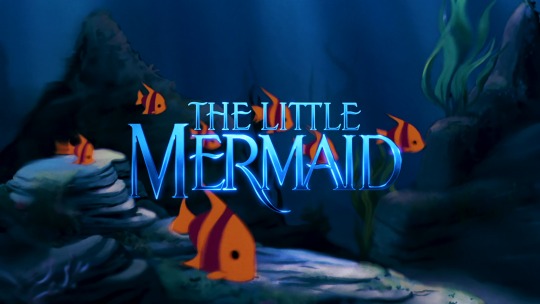
(Snow White) (Cinderella) (Sleeping Beauty)
By the time of 1989, The Walt Disney Company was in it’s Dark Age. Walt had passed, the Nine Old Men were retiring, and their films were viewed as jokes. The Dark Age tends to get what I feel is an overly harsh reputation, but that’s not what we’re here for. The cold hard truth is Disney was a shadow of its former self. Their films just weren’t getting the same praise as they once did, and now with Don Bluth gaining success, with films like An American Tale and The Land Before Time, they weren’t even the top studio anymore. Their lowest point was the colossal failure of The Black Cauldron and while films like The Great Mouse Detective earned some praise, it was just never enough. They’d start getting some steam with Who Framed Roger Rabbit? but considering that they commissioned Richard William’s studio in England over Disney’s own animation studio, it seemed that even the company itself was losing faith in their own talents.
That all changed, however, with the release of their 28th animated feature. This would be the film that changed everything. It brought Disney back into prominence after years of being laughing stocks. It would enter the animation medium into its Renaissance, a time still fondly remembered by many. And for the purposes of this series, it is the film that both resurrected and revitalized the Disney Princess franchise. All of this would be due to 1989’s The Little Mermaid.
Overview
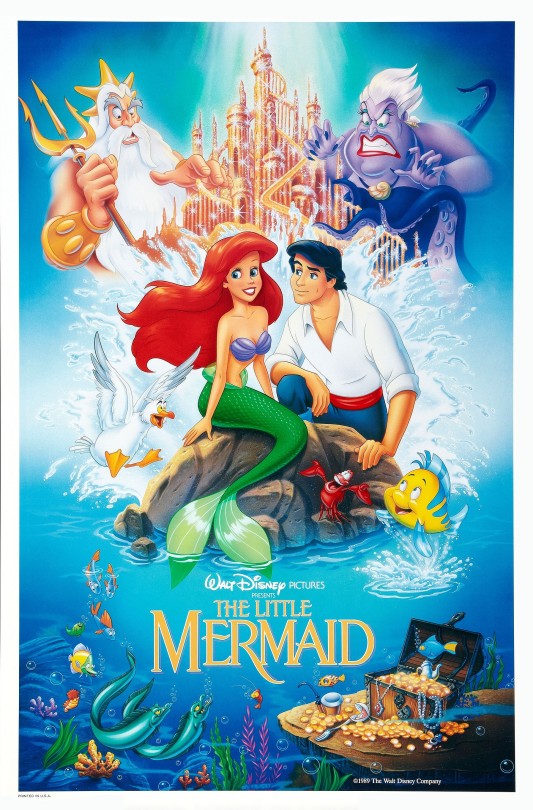
Ariel is a mermaid, but she dreams of one day being able to be part of the human world. Always collecting whatever surface world treasures she can find, to her father’s disapproval, Ariel one day stumbles upon a ship celebrating the birthday of the handsome Prince Eric. It’s love at first sight, but as he is a human, her father King Triton reacts negatively. Hurt, Ariel goes to the sea witch Ursula, who grants her human legs at the cost of her voice. To remain human, Ariel has three days to get Eric to fall in love with her and kiss her. But Ursula has her own wicked plans for Ariel, plans that will endanger both land and sea. Will Ariel be able to get Eric to fall in love with her and become part of his world? Or will Ursula triumph?
Review
youtube
I have been waiting for this day for SO LONG. Do you want to know why I decided to do this series, to begin with? Aside from 2020 driving me to insanity? It’s because while the complaints against the Disney Princesses in general have frustrated me for as long as I can remember, there were two in particular that always made my blood boil because they made no sense. Cinderella was the first one, which I already covered. The other? Ariel. I think you all know what I’m referring to here, but let’s put a pin in it for now. We have a LOT to discuss before we get to analyzing Ariel herself. First, let's go over the film.
The film is based on the story of the same name by Hans Christian Anderson. Walt himself had actually planned it long before, but sadly was never able to make it a reality. When the directors pitched it, at first it was denied due to Disney having already releasing a mermaid film called Splash not too long ago. But it was allowed to continue to be worked on as a future project and after a great deal of tweaking, expansion, and reworking, it was approved as a feature film to come out after Oliver and Company. There were a LOT of changes from the original story. The sea witch went from neutral to the villain, characters were expanded and added, and of course the story of unrequited love that ended with the little mermaid committing suicide was thrown out all together. A lot of the story basis was still there, but Disney was taking it and making it their own arguably even moreso than with the Classic Three.
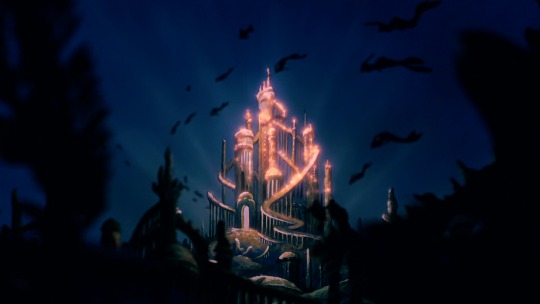
The animation is fantastic. Many of the films prior like The Rescuers and Oliver and Company, while they looked nice, had this… roughness to it. I mean they were outright recycling animation for a good while, with Robin Hood being the biggest example. But the animation here is some of the nicest, most fluid that they’ve had in quite a long time. It’s colorful, expressive, and grand in feel. This is especially true with the musical numbers. I mean Under the Sea has SO much going on, and it is a true spectacle! It’s especially prominent when Ariel is mute. Since she can’t express herself with words, the animation had to be on point so that we could still understand her thoughts and feelings. They did an amazing job. From things like her visual glee at being human when going to bed the first night, to her annoyingly blowing her bangs during the canoe ride, turning into excited glee when Eric guesses her name. It helps Ariel feel more like a three-dimensional character and illustrates everything to us that words couldn’t at that point.
The biggest animation challenge for this film would be to convincingly portray the illusion of being under water. They had to convince us that Ariel was living under the sea, and I’d say they did a pretty good job. It is no easy task and trying to describe it is… hard. But I never had any doubt that they were underwater, especially compared to the scenes that were on the surface/ just look at how Ariel's hair is constantly flowing compared to how it sits when on the surface. It’s that attention to detail that I always appreciate. The opening especially, seeing the underwater landscape thriving as we see the silhouetted merpeople until the grand reveal of King Triton’s castle. Not to mention the seashore setting of Eric’s own castle and kingdom, a perfect match for this sort of movie. As someone who loves water/seaside settings, it’s always a joy to see!
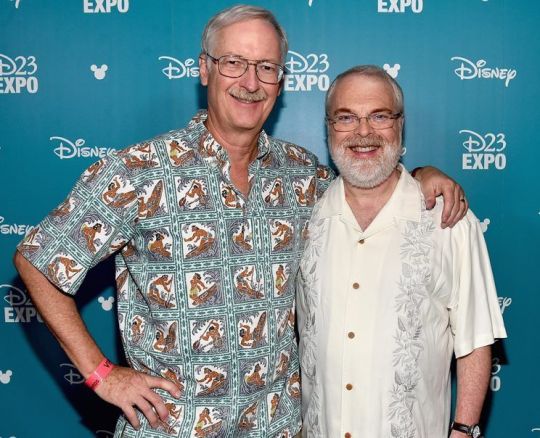
While several of these people worked on the Dark Age films, this is really the first film that allows the then-new talent of Disney to shine. The directors were John Musker and Ron Clements, who are VERY important names to the Princess line. They not only gave us Ariel but also Jasmine, Tiana, and Moana. They’ve been attached to many of Disney’s most beloved films and event cult classics like The Great Mouse Detective and Treasure Planet (both of which you should watch). You also have animators such as Glen Keane, who would go on to animate Pocahontas and Rapunzel and work on some of the future princes (The Beast and Aladdin), and Mark Henn who would animate Belle, Jasmine, Pocahontas (alongside Keane), Mulan, and Tiana. They both would be the supervising animators for Ariel, and go on to have very successful careers in future productions.
But this film also gave us what may have been the best decision that the new management ever made. For the music, they hired lyricist Howard Ashman, who chose composer Alan Menken to collaborate with him. I cannot stress enough how important these two’s contributions were for this (and the next film we’ll be discussing) production, especially the former. Ashman became very passionate about this project and was very influential on it’s direction to the point of being credited as a producer. Menken of course would go on to have a LONG, successful career as a composer on many of the Renaissance films. Many of which we’ll be touching on in this retrospective. These guys won two Oscars for The Little Mermaid for a reason.
I haven’t talked a whole lot about the music in these films outside a little bit about the main song. That’s because while not unimportant, the music didn’t really move the story along. Like Someday My Prince Will Come/ is cute, but does it really drive anything forward? Or tell us anything about Snow White that we didn’t already know from I’m Wishing? Not really. Ashman, using his stage musical experience, wanted to use that kind of styling with The Little Mermaid. To use music to add depth to both the characters and to the story. We’re all used to most Disney films being this Broadway-esque spectacle nowadays, but this film was the first to truly do so. Considering how this formula is still being used to this day, I think it’s safe to say that it was VERY successful. Again, the music won two Oscars for a reason. Heck for a LONG time, the music was all that Disney was able to win from The Academy, so that says a LOT as to how good this was.
youtube
So now that we’ve made it here, I’m going to discuss the vocal tracks individually and give my thoughts on each of the major ones:
Fathoms Below: Might be the most underrated song of the bunch. It’s in the style of a sea-shanty discussing the legends of what is below the sea. It’s a great intro to the film, letting us know right off the bat what kind of movie we are in for. I know that it sure had me invested~
Part of Your World/Reprise: I’m gonna go more into depth on the song’s meanings when we analyze Ariel, but this song is perfect. It’s the song that tells us Ariel’s wants and dreams and Jodi Benson does such a great job putting so many different emotions into it. The animators also did a fantastic job with the expressions, fully showcasing Ariel’s longing, sadness, and desperation to be part of a world that she cannot. The reprise equally does a great job showcasing her evolving revolve, going from ‘longing’ to ‘determined’. The song is fondly remembered for a reason… and it almost didn’t make it into the film. During screen testings, Jeffrey Katzenberg (the studio head at the time) wanted the sequence cut as the kid audience was ‘bored’ and ‘restless’. The directors and Ashman HEAVILY disagreed and argued back, with Glen Keane ultimately being the one to convince Katzenberg to keep the scene. Thank God for it because this adds such a strong, emotional core to both the story and to Ariel’s character and it would have taken so much away if removed. I love it~
Under the Sea: This was the number that won the Oscar. I… find it the most overrated track tbh. Not that it’s bad, FAR from it. It’s probably the best animation-wise with how much is going on. Sebastian somehow managed to conduct… all the sea life into a mass spectacle that certainly had me convinced to living under the sea. The calypso style is very fitting and fun, and Samuel E Wright sings it with so much passion. I guess that I find it overrated because I just like other songs more, but this is still a true showstopper that’s worth revisiting.
Poor Unfortunate Souls: Aside from I think Cruella DeVille (and even then Roger’s the one singing it), I think that this is the first true villain song in a Disney film. If so, then they started on a GLORIOUS note. I love this song! It was THE perfect song for Ursula. The first half with her fake reformed villain act but with this condescending air to it (Pat Carroll’s delivery with the ‘Pathetic’ line is perfection) was already grand, but the second half? Pat Carroll just lets loose and goes utterly insane. It is AMAZING and has so much charisma to it that you can’t help but be invested. It’s also very creepy, especially in the end with Ursula's cauldron bubbling and especially how she takes Ariel’s voice. This would inspire many great villain songs in the future and to this day remains one of the all-time greats.
Les Poissons: I never thought that seeing a chef cook would be so horrifying… the song is fine. It’s a silly sequence, albeit morbid from poor Sebastian’s perspective, and Rene Auberjonois did a fantastic job despite the song being pretty short. It’s my least favorite track, mainly because it doesn’t really add or enhance anything. But it was fun… poor Senastian though XD
Kiss the Girl: The love song of the film. I love the animation for this one. I mean what’s more romantic than taking a canoe out on the lake? That’s where I’d want my first date to end! The mood is set so well with the use of shadows and once more, Sebastian is able to conduct a spectacle effortlessly. Once more Samuel E Wright does a fabulous job singing, this time with a serenade style. Even if poor Scuttle didn’t get the appreciation that he deserved. Let the seagull sing, dang it! The only thing that ruins it is the eels capsizing the canoe, jerks! But yeah a beautiful serenade that is bound to convince anyone to… well, kiss the girl XD
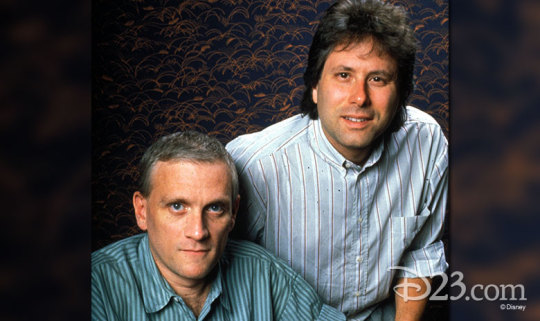
And that’s not even getting into Alan Menken’s score! Alan Menken is my favorite composer of all time, so I love everything that he has ever done. I still remember the opening, hearing the instrumental of Part of Your World and immediately became invested in this film. The man is an EGOT for a reason, and this is only one of the many fantastic soundtracks that we’ll be discussing in this review. He also did some additional music for the Broadway version of the film, and there’s a whole body of demo work that he and Ashman did that you can probably find on Youtube, Spotify, or whatever music streaming service you use. Listen to Ashman’s rendition of Part of Your World, you WILL be driven to tears.
So now we get to characters… and HO BOY do we have a lot. For the sake of this review we will be going over King Triton, Sebastian, Flounder, Scuttle, Ursula, Prince Eric, and as per usual Ariel will have her own section at the end.
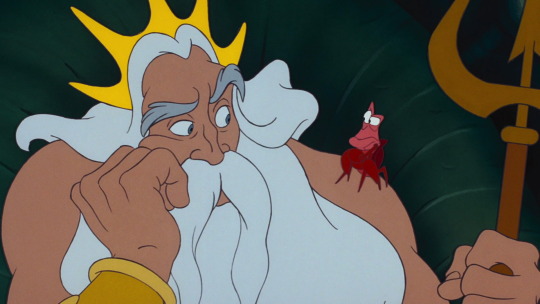
King Triton, while not evil, serves as an antagonist early on in the film. By all appearances, Triton is a capable ruler who wields a great deal of power due to his triton. He appears just, and for the most part he is as well as a caring father. The only problem is… well, his anger issues. Triton HATES humans and the surface world. We’re never told why aside from him calling them ‘fish-eaters’ (the DTV prequel suggests it’s due to the death of his wife, but the canonicity is debatable), but considering that his youngest daughter’s greatest passion is learning about the surface world… yeah. Needless to say, they have issues between them. But he is otherwise loving and was even excited that Ariel may have found love until he found out about their species. With how overprotective he is, that was a nice subversion despite how brief it was.
Triton often gets the ‘abusive’ label thrown against him and while I do think that that’s a little too strong, there is no denying that his hatred and anger affects Ariel emotionally. He may have seen destroying Ariel’s grotto as for her own good and is likely the culmination of however long Ariel’s been going to the surface finally boiling over. But to do this right in front of her when she is begging him to stop and outright ridiculing her for saving Eric’s life… yeah. It’s… it’s a horrifying scene that does NOT make Triton look good and is what pushes Ariel into seeing Ursula. It doesn’t matter the reason, destroying your children’s things is something that WILL scar them emotionally. To be far, the moment Ariel breaks down Triton clearly realizes that he crossed the line, but he just leaves because… yeah there was NO WAY that they were reaching a reconciliation at that moment.
Triton has a lot of issues, but the reason I don’t call him abusive and like him as a character is because after the grotto scene, he was clearly remorseful. After Ariel goes missing, he outright says ‘What have I done?” and his demeanor expresses a lot of remorse. If that wasn’t enough, I think that him both selling his soul to free Ariel AND turning her human after realizing how much she loved Eric more than showed that he has learned his lesson. Triton had to learn to allow Ariel to grow up and choose her own direction in life, even if he didn’t like said direction. It’s very relatable to how some parents struggle to let go of their children as they grow up. My only real complaint is, as I said, we don’t know why Triton hates humans so much. If we did and saw him work through it, it may have helped us understand why he was so against Ariel’s passions and not come off as needlessly cruel as he did. Nevertheless, he realized his wrongs and made it right. His hug with Ariel at the end is one that gets me every time.
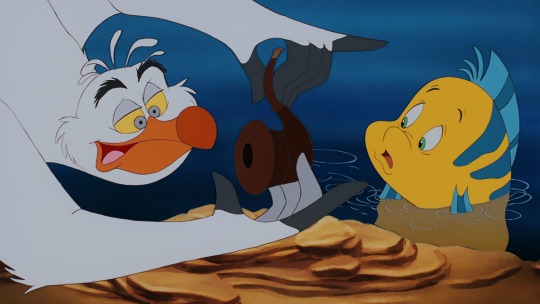
The sidekicks of the film are Flounder, Scuttle, and Sebastian. IDK why they named Flounder Flounder because he isn’t… well, a flounder. He looks like some kind of tropical fish. Flounder is kind of the kid appeal character, even being voiced by a child in all incarnations except Return to the Sea since he had grown up. He is Ariel’s best friend who goes with her on her adventures, despite almost always being easily frightened. He’s well-meaning, but can cause more trouble like when he accidentally exposed Ariel’s excursion during the concert. But he’s also a sweet little guy and very loyal to Ariel. The kid outright went out of his way to somehow recover the Eric statue, which is ten times his size, and deliver it to her grotto to make her happy. That is friendship. He doesn’t really develop, but he’s a nice supporting character.
Scuttle is… well, dumb. But a fun dumb. He’s a surface creature and thus has more knowledge about surface world items than Ariel does… except he doesn’t. He’s not smart, but they manage to keep him entertaining because he’s so sure that he knows what he’s talking about. Imo, dinglehoppers are a MUCH better name for forks than forks, dang it! He tries to help, like it was his idea to try the serenade during the canoe ride… too bad that he can’t hold a note. Poor bird tried. They also DO allow him to be useful at the end, discovering that Ursula had tricked Eric and he amassed one heck of an army to humiliate her long enough for Ariel to reach the ship. It is one of the funniest AND most awesome moments in the whole film. Scuttle is just fun comedic relief who doesn’t overstay his welcome and his VA Buddy Hackett did such a great job~
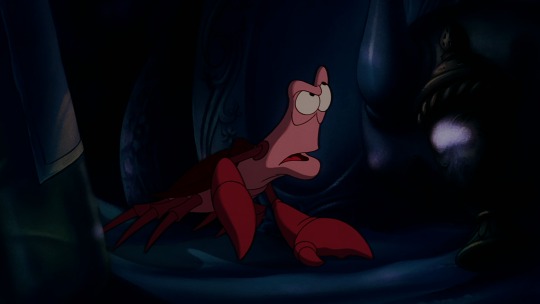
But if there’s any character aside from Ariel that we remember from this film, it’s Sebastian. This Jamaican crab is the royal musical conductor and Triton’s advisor. He’s often the one who has to watch over Ariel, which clearly frustrates him on multiple occasions. Tbh, Sebastian probably has the most character development in the film. In the beginning, while understandably upset that Ariel being a no-show ruined his conducting debut (though tbf… NO ONE bothered to make sure she was in place? Really?), he’s mainly upset that /he/ looked bad. After the storm, he’s more concerned about getting into trouble with Triton than about Ariel herself. He knows how much the human world means to her, and while one can argue that Ariel /should/ be more aware of how her actions affect others, Sebastian isn’t much better. He only discourages her to save his own shell, not for her own good. Which eventually leads to him breaking and exposing what happened during the storm when he should know damn well that Triton will explode. Yeah it was because he misunderstood, but still.
However, Sebastian isn’t a bad crab. After the grotto's destruction, he immediately feels guilty and tries to apologize to Ariel, but she angrily dismisses him. He tries to convince Ariel to not go to Ursula, but as she’s still upset she bitterly brushes him off and tells him to get her father since he’s good at that. He therefore follows with only Flounder and at first, panics after Ariel is human. It’s understandable because… yeah, that’s bad. His first reaction is to get Triton to fix this, with Ariel trying to stop him. Once he sees the heartbroken look on her face, Sebastian realizes just how miserable Ariel would be back home. At this point, it's reasonable to assume that Triton will only be stricter about letting her have her ventures, and thus she’d be stuck in an unhappy life. This, along with the situation at least being partially his fault, convinces Sebastian to hold off and help Ariel win Eric over. Which he certainly tries his best.
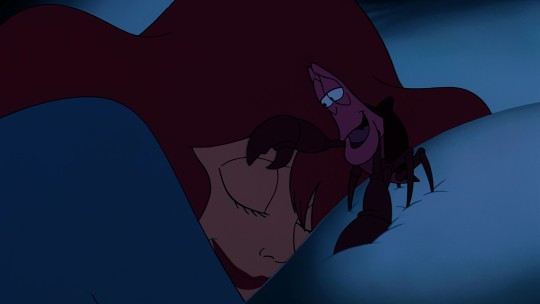
One of my favorite scenes is Ariel going to bed and being so excited to experience these new things as Sebastian tries to advise her on getting Eric to kiss her. But he stops when he sees that Ariel has fallen asleep with the biggest smile on her face, and he just affectionately calls her a ‘hopeless child’. The affection in his expressions and Samuel E Wright’s delivery is just so sincere and it really shows that for all his bluster, Sebastian does care for Ariel. The crab is also a seriously talented conductor. Like I said, he put together both Under the Sea AND Kiss the Girl in zero time and they’re both amazing numbers because of it. He really tries hard to help Ariel and once Ursula strikes again, he decides it’s finally been long enough and gets King Triton. Sure that doesn’t go well, but at that point it was absolutely the right call. He also helps fight off Flotsam and Jetsam, willing to put himself in harm’s way to help both Ariel and Eric.
Sebastian became a much more understanding, more selfless crab over the course of the film, realizing that he needs to care less about saving his own skin and to understand why Ariel does what she does. It’s especially notable at the end. In the beginning, he advised Triton to keep a firm grip on Ariel when he asks if he was too harsh. At the end? He advises him that children have to be free to lead their own lives, which is what convinces Triton to grant Ariel legs. It’s a really nice character arc and this along with Sebastian’s two spectacular musical numbers leaves no question as to why he’s so beloved.
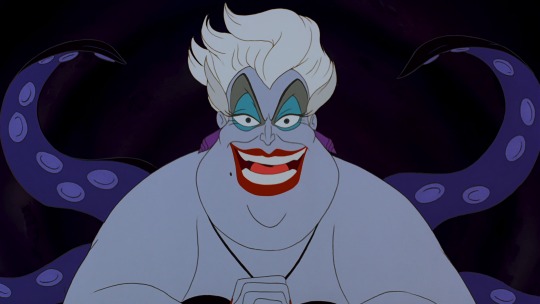
But what’s a great film without a great villain? For that we get one of the best, Ursula the Sea Witch. She is a fantastic villainess. She’s a large octopus woman who used to work in the palace, but for reasons unknown got banished. In early versions, she was going to be Triton’s sister which would have added a VERY twisted dynamic to the whole thing. Maybe that’s where they got the idea for Scar in The Lion King… anyways! Her design was based on Drag Queen Divine who was also going to be the VA for Ursula, but she sadly passed away of an enlarged heart before any recording to be done. After going through various performers, the production staff settled on actress Pat Carroll, who did a spectacular job. You can just tell that she is loving every single second of this role, and she has always happily returned whenever they need new Ursula material like in House of Mouse or in the parks. Just listen as she goes off the chain in Poor Unfortunate Souls that is some amazing acting.
Ursula is confident, manipulative, and a true actress. Her entire gimmick is manipulating vulnerable, insecure people into making deals with her. Deals that are pretty much impossible to keep and thus, she claims them as hers and adds them to her ‘garden’. She targets Ariel specifically because of her passion for the surface world and since she likely knows of Triton’s hatred for it AND of his anger problems, she’s just waiting for the day he screws up and Ariel is vulnerable. I’m gonna go MUCH more in depth with this when we get to Ariel, but this is SO important to note. Ursula struck when Ariel was hurt, emotional, and not thinking straight. It shows just how manipulative she can be. This is who she preys on. She knows how to sway them to act how she wants them to. She’s a saleswoman, and BOY does she sell it. It doesn't help that she gives Ariel very little personal space and manipulates her feelings for Eric to be further swayed. Yet Ariel is the stupid one because she was manipulated by a master manipulator… patience Callie, you’re gonna be able to let it out soon enough…
youtube
Ursula works so well as a villain because of how smart and manipulative she is. Like I said, she knows how to prey on the vulnerable and insecure. But she also knows when to get herself involved. After Ariel almost kisses Eric on the second day, Ursula disguises herself and uses Ariel’s voice to hypnotize Eric. And even though Scuttle and his undersea army humiliate her and Ariel gets her voice back, she bought just enough time for the sun to set and the spell breaks. Ursula won. She captured Ariel, forced Triton to sell himself to save his daughter, and claimed ultimate power. It was a truly methodical plan that ultimately succeeded. You gotta give her props for that.
Don’t make any mistakes though. While Ursula is intelligent and confident, she /is/ still evil. I’ve seen people say that she should have won just because they don’t like the ‘abusive tyrant’ Triton. Aside from what I already said about Triton above, Ursula is shown to be far, FAR worse. I mean… I hate to use the term, but she essentially s***-shames Ariel throughout Poor Unfortunate Souls. I mean she outright calls her a ‘little tramp’ after the canoe scene, which in this context is a G-Rated way of calling her a s***. To a sixteen year old. Yeah… plus we saw how power-mad she went once she got the triton, and it didn’t bode well for either land or sea. Triton’s temperamental, but he isn’t a tyrant. Ursula’s only redeeming trait is that she DOES care for her henchmen Flotsam and Jetsam, and their death at Ariel’s hand is what provoked her to go mad with power. This was ultimately her undoing as she was so focused on tormenting Ariel that it allowed Eric to take his ship and kill her. It’s a pretty gruesome Disney Villain Death (we outright see her SKELETON FLASHING at one point), but she brought it upon herself.
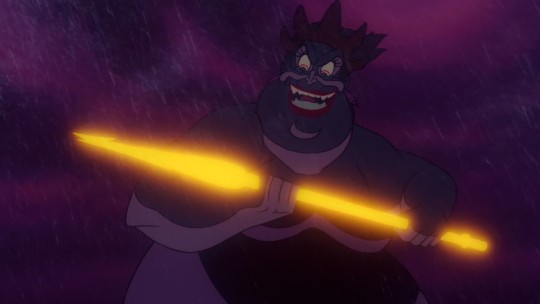
If you asked me what villain helped shape many of the ones we got during the Renaissance… I’d say Professor Ratigan from The Great Mouse Detective. But Ursula was the first Renaissance villain, and she started it off right. She’s enjoyable enough that we love it when she’s on screen, but still detestable enough that we want her to lose. Many complain about doing ‘purely evil’ villains. That villains HAVE to be sympathetic or nuanced, otherwise they are poorly written. While there’s nothing wrong with sympathetic, or even redeemable villains, having a purely evil one is also perfectly fine. Disney is the master of this. Ursula’s motivation is strictly to gain power, but it works because they give her character so much personality and charisma. Petty motivation, but excellent character writing that makes us not mind. I’d say if you want to learn how to do a Pure Evil character right, study Ursula in particular along with Jafar and Hades. They’re all great examples of how to do it right.
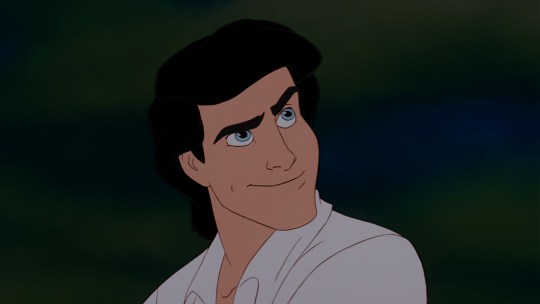
Finally we come to our leading man, Prince Eric. So far the Disney Princes have acted more as a necessity than anything. It’s as I said in the Sleeping Beauty Review, Florian and Charming fill out a plot point and while he was more proactive in comparison, Phillip fell into the same trap. Did Eric finally break the curse? Well… yes and no. He's a firm middle ground between ‘necessity’ and ‘actual character’. He’s allowed FAR more than any of the other princes thus far. Eric is a seasman, he loves going out on the ocean in his ships. He’s adventurous, good-looking, and an overall nice guy. We see that he isn’t really into fancy stuff, outright cringing when Grimsby unveils the statue. He also isn’t interested in Grimsby trying to set him up with various noble women. Like Jasmine and to a degree Prince Charming, he wants to find love for love, but on his own time. These are the traits that attract Ariel to him. Plus he’s also heroic, going back to a BURNING SHIP in order to save his dog Max… yeah I’d fall in love with him too.
After Ariel saves him, Eric becomes determined to find her. But he only briefly saw her face and heard her voice. Funny how NO ONE gets on Eric for this while hating on Ariel, but again we’ll get to that soon enough. When he meets Ariel he recognizes her face… but since she can’t talk, assumes that she can’t be the mystery girl. Still, being a good person, he takes her back to the palace to give her shelter. It’s not long before he becomes endeared by her though. She’s pretty, sweet, and even though she can’t talk he has a good time showing her around the kingdom. It's so clear by /Kiss the Girl/ that he has fallen for her, to the point that even Grimsby points it out to him. It gets him to give up on the mystery girl which is VERY important. It shows us that Eric didn’t fall for Ariel because she happened to be the girl he was looking for, but because of who she is as a person. It shows the audience that his feelings are genuine which makes us further root for him and Ariel… too bad that Ursula goes and ruins it.
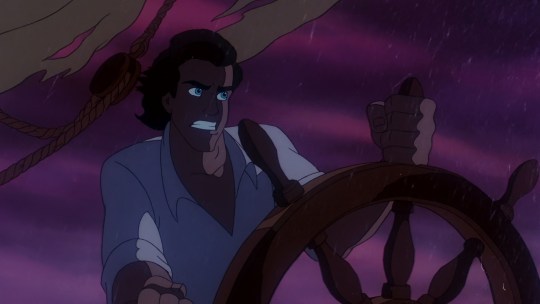
As far as personality goes, Eric is more fun than his predecessors, but he’s still stuck with the standard prince-like personality. He’s given more lines than all of them combined and has a real charm to him. You can see why Ariel would like a guy like him. He’s kind, fun, adventurous, and even a little rebellious. He is her ideal vision of what humans are like. The end of the film lets him prove himself as well, going out to help Ariel despite the danger and of course using his own ship to kill Ursula. It does cause Ariel to be a bit of a Damsel in Distress, but she DID save him much earlier and she stops Ursula from blasting him to smithereens, so it balances out. It was enough to prove himself to Triton, at least. So Eric is a nice step up as far as princes go, but we’re not quite out of the well with them yet. But it won’t be much longer, heehee XD
There’s other supporting characters that I really don't have much to say about. Ariel’s sisters are nicely designed, but ultimately bland. I think the series and Ariel’s Beginning did more with them, but otherwise there’s not anything to discuss. Grimsby is fine enough, being the closest thing that Eric has to a parental figure (where ARE Eric’s parents in all of this anyways?) and is stuffy, but otherwise a decent guy. Chef Louie is… crazy. That’s all that I can say. This film has a lot of characters, let’s put it that way. But of course, we have one more to go over. The titular little mermaid herself. I’ve been hinting at this throughout the review, so I think you all know exactly how this will go…
Ariel Analysis
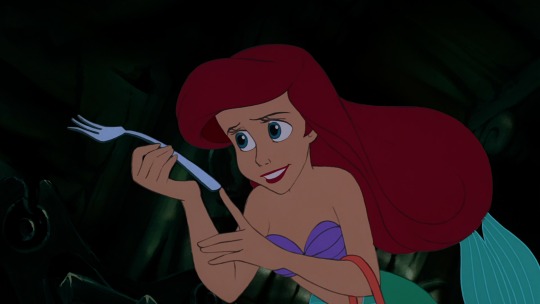
I cannot stress enough how massive a step Ariel was for the Disney Princess line. As much as I have defended the Classic Three and standby all of that, there is certainly some repetition going one with them. All three are beautiful, passive, and can’t directly do much to accomplish their dreams. And at least two of them are dreaming mainly about a man, which is NOT a bad thing, but it was certainly getting old. Feminism has also been evolving since 1959, the last time a Disney Princess film came out. A lot had changed in those thirty years. Women in media could now be more proactive, take matters into their own hands, and have their own hopes and dreams that weren’t just about love while still being allowed to find love. Simply put, as much as I love Snow White, Cinderella, and Aurora, the times had changed and it was time for Disney to get with those times. Thus we got Ariel, and she was exactly the right princess to take the line into a whole new direction.
The beginning of the film is a pretty clever way to set her up. The Classic Three are known for being angelic singers, and for good reason. It’s pretty much the first thing they do when we meet them (well, as an adult in Aurora’s case) so the concert sets this up. It’s Ariel’s ‘debut” and her sisters all have the looks and angelic voices that fit the archetypal Disney Princess. But then the shell opens up… and is empty. Then we cut to Ariel, who is about to go inside a sunken ship to look for surface world artifacts. It is an excellent subversion, setting up a Classic Princess move and flipping it on it’s head. It’s shown very quickly that Ariel is adventurous and actively seeking out her dreams despite her situation instead of trying to just make do with the way things were and hoping for the best. We also get a fun sequence of her and Flounder escaping a shark, so first time a Princess got an action scene as well.
youtube
The film very quickly establishes Ariel’s love and fascination with the surface world. Exploring sunken ships, going to Scuttle to get more information, later we see her grotto that is filled with so many items that we would consider standard, but that she considers treasures. These mean so much to her. She finds the surface world ‘wonderful’. But there are setbacks and consequences for her actions, in this case her forgetting about the concert. She didn't mean to and feels bad about it, and Flounder mentioning the reason why didn’t help. It’s clear that Ariel and Triton have been arguing about this for a long time, the latter failing to understand how much this means to Ariel and is at his wit’s end. His demands for her to stop upset her, causing her to storm out of the throne room and head for her grotto.
This leads to Part of Your World. This song/sequence is vital to understand Ariel’s character. This is the song where she expresses all her hopes and dreams. How she wants to be human. How she wants to learn more about the surface world. How she wants to experience things like walking down a street or finding out how a fire can burn. Throughout the film, we never learn how Ariel got so interested in human culture and just why she’s so passionate about it. But we really don’t need an in-depth explanation because this song conveys so much sincerity and emotion that it makes us believe in her passion. We understand how much this matters to her, and in turn it makes it matter to us. It’s why if it had gotten removed, it would have robbed Ariel of this depth and in turn, rob the film of something essential to its story. Thank God it remained intact.
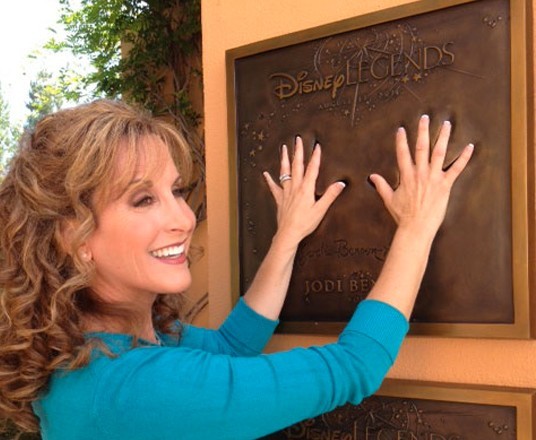
This is a good time to talk about Ariel’s voice actress, Jodi Benson. Having originally been in Howard Ashman’s failed musical Smile, she was brought in originally as Ariel’s singing voice before being promoted to also doing the speaking the lines. This was not only her voice acting debut, but as far as I can tell her film debut as well. She did such a lovely job in the role. She perfectly conveys Ariel’s passion, drive, and sincerity while still coming off as a sixteen year old girl. Her singing voice has been rightfully praised, and to this day Ariel is often considered the best singer among the princesses. Benson has gone on to do other voice roles such as Barbie in the Toy Story films, Patsy and Ms. Doe in Camp Lazlo, and Aquagirl in Batman Beyond. She has continued to reprise Ariel to this day when needed and has always expressed so much love and gratitude for the film and her part in it, She’s also supported others who have done the role like Auli’i Cravallho (aka Moana) for the ABC Musical and Halle Bailey for the upcoming live-action remake. She’s a lovely woman and may she continue to do well~
Going back to the film, Ariel finds herself at a ship and this is where she sees Eric for the first time. It’s love at first sight. Of the Renaissance Era Princesses, Ariel is the one who gets the ‘love at first sight’ critique levied at her the most. Belle and Mulan of course didn’t have that issue and I usually see Jasmine and Pocahontas be given a free pass in this regard. Now of the five, The Little Mermaid IS the most blatant with the trope, but let’s look at it through Ariel’s POV. This is the first time that she’s seen so many humans up close. Eric is around her age (to my knowledge, at least. His VA was 16 at the time IIRC). It is very quickly established that Eric is jovial, uninterested in things like statues in his image, rebellious as he has rejected all the women Grimsby has arranged him with, and wants to find love for himself. He has many of the traits that Ariel herself has, being a rebellious, free-spirit teen herself. But most of all he is heroic, as demonstrated when he goes back to his burning ship to save his dog.
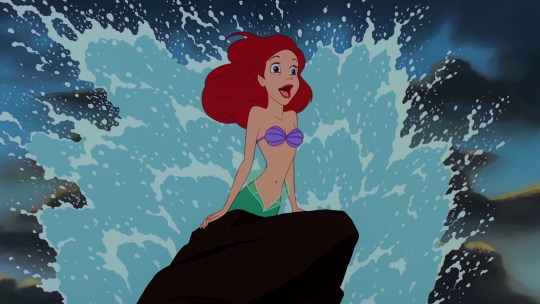
In other words, Eric is Ariel’s ideal vision of what people are like. She saves him from drowning, the first time that a Princess has saved her Prince, and is able to look at him more closely. She is clearly infatuated and seeing this man, this good-hearted, handsome young man who is everything that she ever dreamed of. This is what pushes her from just dreaming about being human to swearing that somehow she /will/ be human. Yes, she gets motivated by love, but the goal was there before this moment. It just became a solidified goal. One that she is going to make a reality someway, somehow. She even notes in the Part of Your World Reprise that she doesn’t know when or how, but it doesn’t matter. Compared to how fleeting her hopes were in the main song, the reprise is so much more triumphant and determined and continues to show just how important this truly is to Ariel.
Sadly however she still has one obstacle in between her and her dream; her father. The next day she is so happy and lovesick and it’s really cute, but Sebastian knows that this is going to cause major issues with her father. His big Under the Sea plea goes ignored, and Ariel is led to her grotto by Flounder, who has brought her the Eric statue. She’s so happy and acting like… well, a teenager in love. But unfortunately due to Sebastian jumping the gun, Triton finds out and he is enraged. Not only is he angry that Ariel again went to the surface, but she both saved and fell in love with a human. Thus we get the dark scene of Triton, in his rage, destroying the grotto. Every item, treasure, and relic that Ariel has gathered for who knows how long has become nothing but a pile of dust. Including the statue of the man she loves.
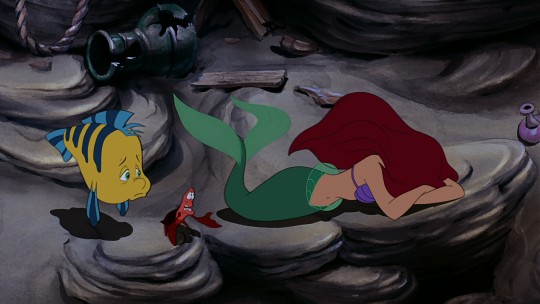
Say what you want about ‘love at first sight’ or Ariel being a lovesick dummy, but this is outright traumatizing. This sixteen year old girl, a girl who aside from forgetting a few engagements has done nothing wrong, had all of her hopes and dreams shattered by her own father all because of his own blind hatred. Imagine being a teenager and your parents destroying everything you love all because they hated something that you loved. Even if Triton regretted it, it doesn’t change the pain that he inflicted upon his own daughter as she breaks down. She’s so upset that she rejects Sebastian trying to apologize and just tells him and Flounder to go away. They comply, leaving Ariel to cry in her now bare grotto… that is, until Flotsam and Jetsam appear.
So.. let’s now talk about Ariel going to Ursula and accepting the deal. First, her going in the first place. When Flotsam and Jetsam bring Ursula up, Ariel… /refuses/ to go. She is aware that Ursula is bad news. She had no intention of going to her at first and outright tells the eels to leave. What makes her agree? The two knocking the remains of the Eric statue in front of her. At this point, Ariel’s pretty much been rejected by her father and all of her treasures that kept her seabound are gone, so… what’s she got left to lose? She follows and naturally Sebastian tries to stop her, but she just angrily tells him to get her father since he’s good at that.
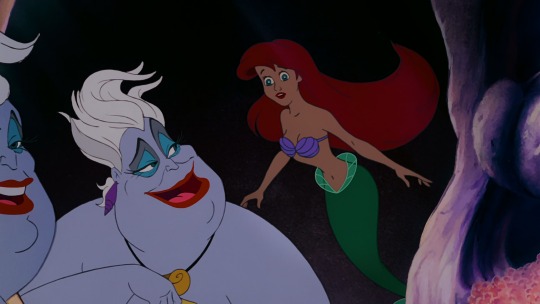
Ariel enters Ursula’s domain, and we come to the scene. Ursula declares to have changed, demonstrates her power, and offers Ariel the deal to become human for three days and it’ll be permanent if Eric kisses her. If Ariel fails, she not only becomes a mermaid again, but she belongs to Ursula. She also has to give up her voice as payment. Now we all know the big criticism against this, that being Ariel selling her voice and leaving behind her family and all that she ever knew and loved… for some prince that she hasn’t even really met yet, let alone spoken to. Now do I see why people dislike this? Yes. It’s a very rash, very stupid decision not just for those factors, but the fact that Ariel is essentially selling herself to the devil for this one thing. None of this is a good thing… but here is the big question, does the film do enough that this makes sense for Ariel’s character? Is this something that I can see her doing?
Yes, yes I can.
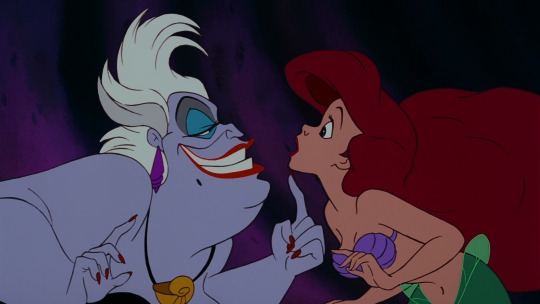
Let’s look at this piece by piece. First, Ariel is clearly uncomfortable the entire time that she is in Ursula’s lair. Ursula continuously gets into her personal space, laying on the manipulation at every step. When she lays out the deal, Ariel is at first hesitant. She herself brings up that if she takes it, she’ll likely never see her family again. She’s also hesitant when Ursula lays out the terms of payment, not just because she has no idea how she’d woo Eric without it, but just the concept of losing her voice clearly unnerves her. Look at her face when she grabs at her own throat, she is NOT okay with this. Even when Ursula begins to create the brew and poof sup the contract, Ariel isn’t excited or just jumps to it without thinking. She is VERY CLEARLY hesitant and unnerved about everything.
So… why does she do it then? Well remember, she’s still emotional after her confrontation with her father. Her father has rejected her in her eyes and destroyed everything that she had worked for. At this point, her dreams and feelings for Eric are all that she has. She is hurt, emotional, and desperate and when we are hurt, emotional, and desperate we tend to make rash, even outright stupid decisions. Especially when we’re teenagers. Ursula waited to strike at this very moment for this exact reason; so that Ariel wouldn’t be thinking rationally. These are the exact kind of people that Ursula preys on, and as I said above, she knows how to manipulate them to act how she wants. She gives Ariel the offer of her dreams, assures her that she can woo Eric without talking, poofs Eric’s image up at one point, and makes it clear that she’s giving her very little time to think it over.
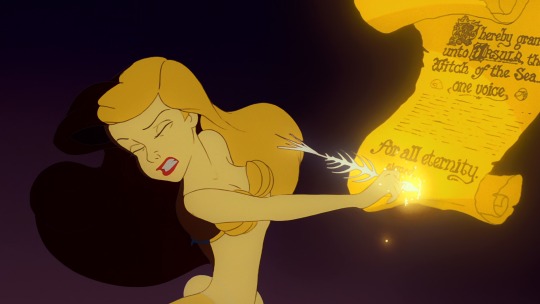
With absolutely nothing left to lose and it being clear that her father will never support her dreams, Ariel reluctantly signs the contract. She outright turns her head away when she signs. She KNOWS that she’s making a big choice and she isn’t 100% okay with it. She didn’t just give up her life callously for a man like some like to make out. It was a rash choice, but she had reluctance and fears about it. But it’s the only chance she’ll get to get her dream of being human and being happy, which is what ultimately drives her to make her choice. Given how she risked her life already against a shark, this is in-character for her and shows how far she’ll go for her dreams. And as we’ll see, this is going to have consequences as we near the end of the film.
So the deal is made. Ariel loses her voice and is transformed into a human. Once she makes it to shore, she gets to see her new legs, and for the first time since the confrontation, is happy. She has legs. She is human. The one thing that she had wanted for so, so long has finally come true. Naturally Sebastian wants to get Triton, but she stops him and gives him the saddest, most pleading look that I think I’ve ever seen. This is Ariel’s one and only chance to get what she dreamed of. Triton would not only stop her, but considering what happened before, who knows what else he’d do if he saw her as a human. It is 10% understandable why Ariel doesn't want him involved, especially once it would just lead her back to a life of misery. Sebastian realizes this and agrees to help her, which pretty much gets her to forgive him for what happened before.
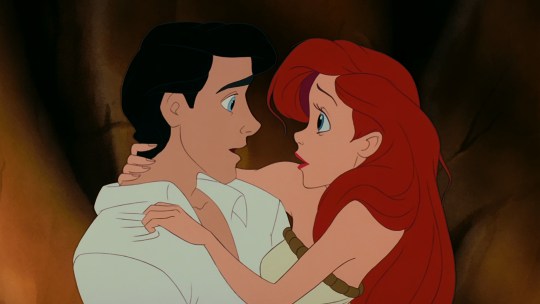
Thus, we get to the first true meeting between Ariel and Eric. Of course, Ariel can’t explain who she is because of her voice being gone, so Eric assumes that she can’t be the same girl he saw despite her looking like her. But he sees her in the makeshift dress that Scuttle got her into and assumes that she’s shipwrecked, especially since she can’t walk well. So he takes her to the palace, and Ariel is able to get refreshed and get used to walking on legs. She is clearly delighted by everything. She is now part of the world that she longed for,, and she is loving every second of it. Sure she quickly finds out that forks aren’t combs, but hey she’s learning exactly what she wanted to learn. She is in utter bliss throughout the two days that she’s on the surface, doing thinks like learn to dance and ride a horse-drawn carriage. It’s all she ever hopes it would be.
But of course, Ariel still needs to get Eric to kiss her, or all of her dreams will end. She almost makes it with Kiss the Girl, which despite not being able to talk she made it pretty clear that she was willing and ready for Eric to kiss her. Ursula ruins that, but Ariel HAS endeared herself to Eric and he even prepares to go to her after giving up on the mystery mermaid. But of course, Ursula disguises herself as Vanessa via Ariel’s voice and hypnotizes Eric into marrying her. It’s sad because when Scuttle informs her of the proposal, Ariel is elated. She runs down the stairs, excited and gleeful… then she sees Eric and Vanessa, and you can see her heart break in two. It especially hits hard as she watches the ship take off, broken-hearted. She’s lost the man she loves, in moments she will be a mermaid again, and she will belong to Ursula fair and square. She pursued her dream, and it all seemed for naught.
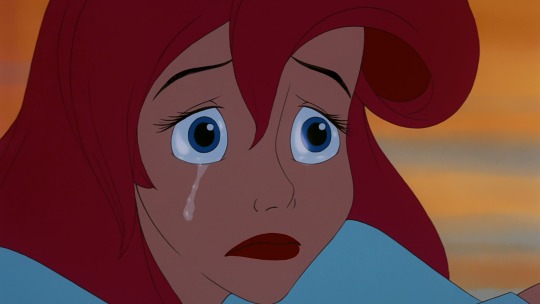
But once Scuttle finds out about Ursula, Ariel quickly springs into action. With her friend's help, she reaches the ship just as Ursula’s necklace gets broken. This is a nitpick but I don’t like how Ariel ultimately wasn’t very active in helping rescuer Eric. Tbf IDK what she could have done, but I’d have liked to see her stand against Ursula before things go downhill. Otherwise it feels like this and the other events after… kind if feel handed to her by convenience and luck. But regardless she gets her voice back… but she fails to kiss Eric before the sun sets. That’s right folks, the so-called selfish, stupid deal that Ariel made? She failed to uphold it. She reverts to a Mermaid and now belongs to Ursula, and Triton can’t break it as it’s legally binding. So even if you DO think that Ariel made a bad choice, the film shows that yes, it WAS bad and she is now paying the consequences. Sure Triton sacrifices himself to take her place, but that still means that Ursula not only gets power, but her father is now a husk.
Ariel is enraged at this. Despite everything, I don’t think there’s any doubt that Ariel still loves her daddy. She was reluctant about never seeing him again before, and now seeing how her deal has lead to his fate upsets her. One big issue with Ariel is how… well, the film doesn’t make it clear that Ariel grew or learned anything. Sure there are consequences to her actions, but we don’t see her ponder over them. This is the closest we get to her showing regret as she tries to apologize to Triton and outright attacks Ursula for what she did to him. But she doesn’t express true regret for her actions. She doesn’t have a true reconciliation with her father so that the two can reach a resolution. I guess we can blame timing since we’re in the final ten or so minutes here, but it makes the end feel… convenient.
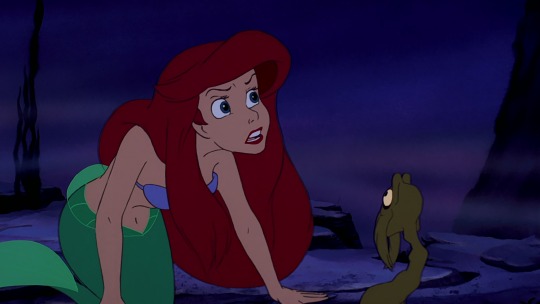
Eric saves Ariel from getting blasted by Ursula, and she manages to save him from Flotst and Jetsam. How? Bu yanking Ursula back and causing her to kill her own minions. Sure it’s not the Big Bad, but again Ariel marks a First in Disney Princess History by indirectly killing a villain. This provokes Ursula to go kaiju and essentially torment Ariel, who is unable to do anything at this point as she’s caught in a raging whirlpool. While one CAN say she’s a Damsel-in-Distress here (hence why I suggested Ariel should have gotten to do more in the wedding crash), she HAS saved Eric twice now. Plus by allowing Eric to kill Ursula, he essentially proves his worth by saving both the ocean AND the surface, and it contributes to Triton’s ultimate decision.
So yeah, Ursula dies, Triton corrects his wrongs by making Ariel human, and Ariel and Eric can live happily ever after. As I said, it /does/ kind of hurt Ariel’s character as she doesn’t really learn a lesson and it feels like she got incredibly lucky at the end. But at the same time Ariel is still a good character, and she marks a LOT of progression for the Disney Princess line. Sure she is a little selfish (though she usually means no harm), but she’s also someone who actively goes after her dreams. She doesn’t have to wait for it, nor does it center on love. Sure Eric is the catalyst, but that’s it. A catalyst. She’s allowed to rescue her prince. She’s allowed to fight against the villain. Sure she’s still emotional, falls in love, and needs her friends help. But she is also a very proactive, curious, and ambitious girl. Her dream was by far the most impossible of the Princesses thus far, but she still managed to achieve it.
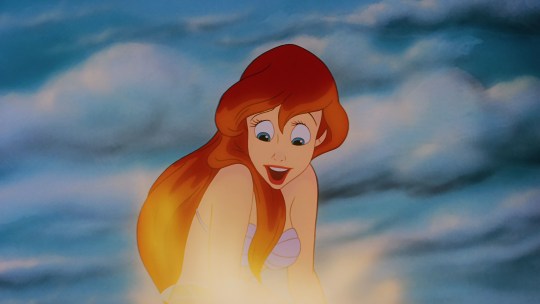
Ariel is divisive, and I get why. The film DOES have some narrative problems (minor, but still) and I get why Ariel may rub some the wrong way. Me personally? I love her. She was a refreshing breath of air in the Princess line. She’s different from the Classic Three. She’s a bit more bratty and far less classy, but she also feels the most like a teenager and she follows her dreams in a very different manner. She’s still a good-hearted person, but she’s a flawed person. That’s what I love about her, she’s imperfect. Could more have been done to develop her? Maybe. But her flaws aren’t so bad that she’s a bad character or unlikeable. Her actions make sense and stay true to her character. I understand why she does what she does. I care for her because I see the sincerity in her. I relate to her longing for something that seems out of reach. And while it was nowhere near as conflicted, I know what it’s like to be in conflict with my father who loved me, but never truly understood who I was. But I loved him, he loved me, he ultimately would have let me lead the life I wanted, and in the end that’s what matters. It’s why Ariel and Triton at the wedding always makes me cry. Yeah, watching this two years after my dad passed… really hit hard.
The point is, I cared about Ariel. I related to Ariel. I did when I was a child, and I still do as an adult. Anyone who loves something or someone despite everyone around you not understanding or being against it I think can relate to Ariel and her position. Plus again, she set forward a new direction for the Disney Princesses. It’s a precedent that stands strong to this day. I’ve done my best to shed light onto Ariel, but it won’t convince everyone. If you hate her, fine. I can’t change your mind and tour free to make all the arguments you want. But I’m allowed to stand by my argument, and I am. Ariel is one of my favorites. She inspires kids to follow their curiosity and their ambitions. It teachers parents to accept their children and who/what they love, and to let them go forward in their lives. One can even argue that her film teaches kids to be careful when emotional to avoid the mistakes that she made, but still achieve a happy ending as well. Either way, I think that the hate against this little mermaid is far too harsh and it ALWAYS centers on the deal without taking anything else into account. It’s time we change that.
Final Thoughts
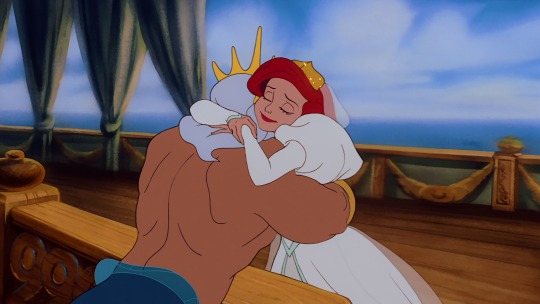
I love this film. The animation is lovely, the music fantastic, and despite a few issues here and there the story is sound. I don’t remember when I first saw it (it came out four years before I was born so not then), but I’ve loved it since that first time. I’m pretty sure I love the ocean and mermaids in general because of this film. Sure it diverts a good deal from the original Hans Christian Anderson story, but honestly? As someone who found that story unnecessarily cruel? I will take this version any day (no offense to those who like the original story, this is just me talking). It is a masterpiece that changed the game for Disney, for animation, and for the Disney Princesses. Ariel was very much a huge inspiration for many of her successors, and I am grateful for all that this little mermaid did.
Upon its release, Disney was FINALLY able to step into the light after spending over 20 years stuck in the dark. The film was a monumental success. The biggest success that Feature Animation had had since Walt’s days. They also finally beat Don Bluth, winning in the box office over All Dogs Go to Heaven, and returned to the top of the animation world. The Disney Renaissance had officially begun, and it wasn’t even close to slowing down. Just two years later, another Disney Princess film would be released. One that would achieve greatness, but also face great tragedy. So come and be our guest as when we return, we discuss a tale as old as time with 1991’s Beauty and the Beast.
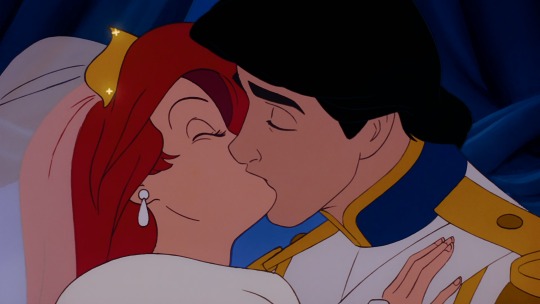
Image Sources: Disney Wiki, Animation Screencaps Other Sources: The Making of The Little Mermaid: Treasures Untold
20 notes
·
View notes
Text
Oh gasps, I'm shocked.
Who would have thunk it?
The story:
Updated with Sunday figures: In the wake of Terminator: Dark Fate’s failure at the B.O., and Paramount’s recent decision to make Beverly Cops 4 for Netflix, we have the further breakdown of cinema IP in Sony’s Charlie’s Angels reboot, which is tanking with a God-awful $8.6M domestic opening, $27.9M worldwide (from 26 markets), 3 Stars on Screen Engine-Comscore’s PostTrak, and a B+ Cinemascore.
The Elizabeth Banks-directed-written and produced pic is also opening in 27 offshore markets,
China being one where it’s also bombing,
with a $7.8M 3-day take in third place behind No. 1 local title Somewhere Winter ($13.1M).
All of this is primed to further spur a WTF reaction and anxiety among film development executives in town in regards to what the hell exactly works in this have-and-have-not era of the theatrical marketplace. Many will make the hasty generalization that old, dusty IP doesn’t work, or is now deemed too risky when it’s not a superhero project. However, moviemaking is an art, not a science, and annoying as it might sound, good movies float to the top, and this Charlie’s Angels reboot didn’t have the goods going back to its script.
<Maybe somebody should have been working on a good story instead of pushing an agenda.
We’re going to break down for you what went wrong in another graph, but we don’t want to bury the success of Disney’s release of Fox’s James Mangold-directed Ford v Ferrari, which looks to be coming in at $31.5M, well ahead of the $20M+ many were seeing, with an awesome A+ CinemaScore and 4 1/2 stars and a 68% definite recommend on Screen Engine/Comscore’s PostTrak. After a franchise-laden summer which buried originals, now an original pic is sticking it to the IP.
When it comes to the bombing of Charlie’s Angels, the takeaway is this is what happens when you have IP, but there’s no reason for telling the story.
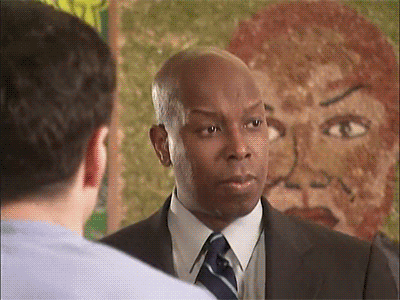
In the walk-up to developing Jumanji: Welcome to the Jungle, and in the wake of its near $1 billion success, a fever broke out at the Culver City lot in the post-Amy Pascal era to reboot former Sony franchises or extend them, i.e. Zombieland: Double Tap (well over $103M at the global B.O. now), the upcoming Bad Boys 3, and, of course, Spider-Man, the latter electrified by Disney’s Marvel. Development studio executives define their being by getting films greenlit, and whenever that happens, it’s 90% of the job.
And the pressure is on to fill a 10-12 picture annual slate in a world where Disney vacuums up all the best IP. A third Charlie’s Angels with McG directing and Drew Barrymore, Cameron Diaz and Lucy Liu starring, wasn’t made immediately after the second chapter, 2003’s Full Throttle, as the sequel turned out to be 29% more expensive than the 2000 original at $120M, and also made less worldwide, $259.1M to $264.1M. With Elizabeth Banks coming off her hot feature directorial debut with Universal’s Pitch Perfect 2 (which over-indexed in its stateside opening at the B.O., going from $50M projections to $69.2M, and finaled global at $287.1M); after she expressed interest in September 2015 in taking on a Charlie’s Angels reboot with a modern feminist spin, there was no question in Sony’s mind that the project should move forward.
<Yeah Sony, how's that working out for you? You think they would have learned their lesson...

Guess not.
Back to the story.....
However, there were script problems, I hear, that could never be resolved. A few months after Banks boarded, Evan Spiliotopoulos came on to write. By the time cast was assembled in July 2018, Banks had penned the latest draft off a script by Jay Basu (The Girl in the Spider’s Web), and earlier drafts by Craig Mazin and Semi Chellas. Andrea Giannetti oversaw the project on the lot. However, I hear that the script for Charlie’s Angels didn’t really attract top talent, i.e. Jennifer Lawrence, Emma Stone and Margot Robbie (a trio that would have potentially jazzed up business). Hence, why the production opted to go with largely a fresh face cast outside of Kristen Stewart. While we overwrite that stars mean nothing at the box office, they do, sometimes, when it comes to propping IP, and unfortunately and arguably, no one in Middle America knows who British actress Ella Balinska is, and they���ve only became recently acquainted with Naomi Scott from Disney’s Aladdin and Lionsgate’s Power Rangers. Stewart, who is hysterical in the movie and even needed more funny bits, is in a different place in her career professionally, publicly, and privately. It’s unfair to think that she could delver her Twilight fans now.
Had she done Charlie’s Angels promptly in the swell of the Twilight whirlwind (like Snow White and the Huntsmen) then maybe it would have popped.
But she has largely been dormant from popcorn wide releases for the last seven years since 2012’s Twilight: Breaking Dawn – Part 2, busy excelling and wowing in specialty awards season and festival fare like Clouds of Sils Maria, Still Alice, and this year’s Seberg, to name a few. Stewart needed to be paired with equal or bigger-name actresses.
was a one quadrant movie, eyed at women 13-39, especially given its lack of action scenes, and wisely limited their exposure to what I hear is 50%, with co-finance partners 2.0 Entertainment and Perfect World. Sony claims the budget is $48M net; we’ve heard in the mid $50Ms. Tax incentives were taken in the pic’s Berlin and Hamburg shoots. Perhaps Sony should have spent more, because Charlie’s Angels biggest problem is that it has very low-octane, we’ve-seen-it-all-before action scenes. Heck, there’s more action in a 1980s Chuck Norris movie. After watching Charlie’s Angels earlier this week, I put the first two McG movies on Netflix, and it was like watching Star Wars in comparison to this reboot, with his sharp production design, camera movements, unique action, and comedy set pieces, and, of course, the first movie blasted Sam Rockwell out of a cannon. Understand that the first two movies in the series were able to compete and hold their own in an action space where, yes, Mission: Impossible and Fast & Furious (the first two films came out in 2001 and 2003) also thrived. Mission and Fast sequels distinguish themselves on multiple 10-minute action sequences that we’ve never seen before on screen; it doesn’t matter who the villain is. This Charlie’s Angels doesn’t have that. And not even a super-duper hit song “Don’t Call Me Angel” for the movie from Ariana Grande, Miley Cyrus, and Lana Del Ray can trigger lines at the multiplex; the music video clocking over 116M views on YouTube, per entertainment social media monitor RelishMix.
Some will claim that Banks’ version was never intended to emulate the meat and potatoes version of McG’s films; that this version was expected to be more comedic, and more feminist. Unfortunately, after McG set the table here with the franchise as an action film, you can’t reverse it. You can only outdo him. And with a franchise movie like Charlie’s Angels, you can’t make it for a one quadrant audience.
The film arrived on tracking with a $12M-$13M start, and really never budged, but sank. That means marketing didn’t work. I heard that a $100M global P&A was first planned on Charlie’s Angels, with the studio now reducing that overall cost greatly to around $50M and pulling back on expensive ads. Another hurdle in activating the young girl demo is that much of the pic’s cast isn’t on social media. RelishMix says that Banks is the social media star with over 6.6M followers across Facebook, Twitter, and Instagram, with Scott counting 3.4M.
Sony kept pushing Charlie’s Angels, which in hindsight means there were development issues. In May 2017, a release date was announced for June 7, 2019. When the cast was locked down in July 2018, Charlie’s got moved to Sept. 27, 2019. In October 2018 when Warners pushed Wonder Woman 1984 from the first weekend in November to summer, Charlie‘s took over the autumn spot, which was the same exact place the original 2000 opened. However, when Terminator: Dark Fate moved onto the same first weekend in November, Charlie‘s relocated to this weekend as they vied for a China release which they ultimately got.
Charlie’s Angels drew a 66% female crowd, split between 36% over 25 and 30% under 25. But both demos respectively graded it low at 68% and 79%, with men at 35% giving it a 68% grade on PostTrak. Diversity breakdown was 52% Caucasian, 21% Hispanic, 14% Asian/Other, & 13% African American. Charlie’s Angels best markets were on the coasts and big cities. But again, nothing to brag about in Friday’s $3.2M gross, which includes $900K from Thursday and Wednesday previews.
Says RelishMix, which also foresaw this disaster approaching on social media chatter, “Angels is the latest example in a ‘woke’ effort to reboot a franchise that many were not all that interested in to start with. In fact, many references to the 2000 version get a call-out as a reason this one doesn’t seem to compare – whether it’s the cast or the action teased from the film.
And, as observed with other recent films, some action/adventure, unfortunately fans say they’re steering clear of this one because of its ‘girl power’ messaging.”
522 notes
·
View notes
Text
Break A Leg
{Chapter 1: Auditions}
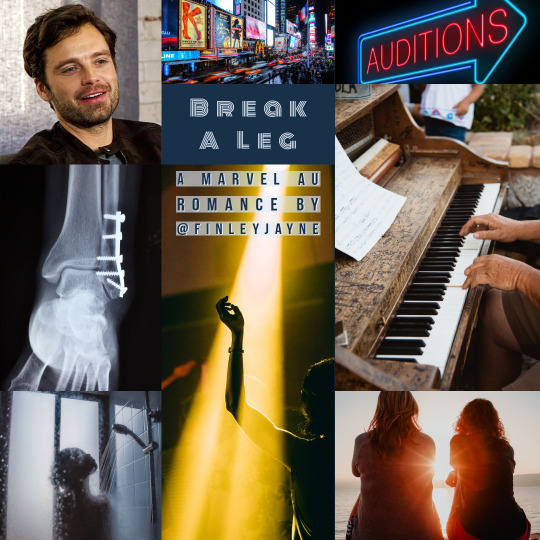
Summary: After your accident, everything in your life changed. Your shared dream of being on Broadway with your best friend, Amanda, was over. But just because YOU don’t think you want the same things in life doesn’t mean that your friend won’t see through you. Taking matters into her own hands, you end up at an audition you’re sure that you’ll fail since SHIELD Theater Company is known the world over for typecasting. And you don’t fit any of your typical actress types. Little do you know that the company’s new writer - nihilistic, pessimistic, and resident drunk; Bucky Barnes- is looking for someone out of their normal choices.
Characters: Female Reader, OFC Best Friend, Steve Rogers, Tony Stark, Bucky Barnes, and all your other favorite Marvel Characters, hopefully in the long run it will end with a Bucky Barnes/Reader ship.
Series Warnings: Guys, this is based on my own experiences within the Acting community after gaining weight and height after an accident. There will be fat-shaming, mentions of eating disorders, unhealthy expectations, unhealthy coping mechanisms, also like bias based on looks.
A/N:this originally was inspired by @star-spangled-man-with-a-plan s follower celebration challenge. I was given the opportunity to use the text prompt “No fucks given, Next please.” Thank you Star! Thank you Thank you. Also a big thanks to the lovely @cavillanche for giving me a gentle nudge to write for myself and for being an amazing sounding board.

"Come oooooon, Y/N. I don't care if you don't want to go out. I haven't seen you in what feels like literal months. That's saying something since you know we LIVE together. I won't take no as an answer." Your best friend, Amanda, said as she flopped on top of you.
Amanda burst into your bedroom this morning at way-to-fucking-early o'clock in the morning, on a warpath to get you to come out with her. It didn't matter to her that you were finally getting some sleep after working all-nighters for the last week. There was no way to ignore her either, her sunny personality and eager persistence would cause you to roll over in your grave if she wanted you to.
With a groan, you smothered your complaints behind a gasping wheeze. "Kay, Manda, where are we going?"
She rolled off of you with a high-pitched squeal and used the momentum to pull you out of bed. "Yay! I have so much planned. I was talking to my manager about how well we used to work as a pair on stage. I may have mentioned how much I would kill to be the Penny to your Tracy. Or the Meg to your Christine. The Judy to your Betty. The Glinda to your Elphaba." Her words started to fade into background noise as she milled on about the parts you had once wanted to play together.
The dream used to be that you both would move here, to New York, and play in all of the big theaters on Broadway together. Sadly, your broadway dreams were not as much of a reality as Amanda's were. And you were okay with that. You were thrilled for Amanda. Living vicariously through your best friend, helping her prepare for her shows while working as a Math tutor and Accountant for a local firm.
It didn't help that you weren't necessarily what people consider the typical standard of beauty. Standing just under six feet tall, a little plushy about the middle, and some nasty scar tissue leaving one of your legs in a constant state of ghostly paleness. Not that people notice since you tend to find yourself just as pale as the damaged tissue. After so many failed auditions, you figured your best life was lived outside of the theater. You were happy, and honestly, you are kinda glad that you are where you are.
"....So hurry up, I'll pick your outfit, we have an appointment with Rijah in half an hour." Amanda finished pushing you into the little cubical shower. When did she turn it on? Where are we going? Needless to say, you did what she asked and stuffed down your confusion, focusing on waking up more before you accompanied her to yet another one of her 'private' lessons with your pianist friend.

Thirty minutes later, you were dressed, primped, polished, and not all that much more awake. Amanda stuffed a binder of music into your hand as Elijah spread his copy over the lip of his pristinely kept upright. "You know this song, I think it will be perfect. A little overplayed, but with a fresh interpretation, they'll overlook it. All you have to do is sing. They are bound to cast you. I've worked with them before, and Director Rogers values skill over appearances. So we'll show them your ability, and he'll love you."
Looking at your rambling best friend, Your confusion amplifies. Your jaw cracks as you don't even try to stifle another yawn. You rub your eyes, not questioning her pushiness. "Uuuuhhhhh, okay?" You scan through the score, making note of the cut before looking to the triangular-shaped man sitting on the piano bench. Since you had already been taken through the typical vocal warm-ups by Amanda while she played dress up this morning. You smile at your expectant friend/accompanist. "Will you give me a playthrough with the melody line in it as a refresher, please, Rijah, Repeat, and I'll join you?"
"Of course," He said sweetly with a nod, turning to the keys and playing. Quietly you hummed along, mentally noting which registers each phrase should be sung in. Where the notes would be stretched, what you would use to your advantage. The accompaniment was simple, repeated strummed chords like most modern musical use. It gives freedom rhythmically when it comes to melodies. You could have fun with the piece. Smiling to yourself, you open your mouth and join the simplified accompaniment on the repeat.
When the second run-through finishes with a very extravagant arpeggiation. There is a moment of complete stillness as the resonance leaves the space. You are high on the feelings of intense emotion and absolute peace, yet somehow buzzing with unlocked energy. You miss this feeling, of connection with everything and nothing, The feeling of knowing that you did something right, it's heady, and it drives you to ask yourself why you ever stopped performing for a brief second. Amanda was always saying that she would drag you to an audition one of these days if you didn't get over yourself.
You are knocked out of your musical high by Amanda's enthusiastic clapping. Elijah looks at you with a smirk, opens his mouth, and is swiftly cut off by your friend. "God, Y/N. They won't be able to stop themselves as soon as you open your mouth!" You smile at her very biased opinions. Before she can get any crazy ideas like dragging me along to more than just her sessions with Elijah, you place the binder the music into her hands, "Why don't we go over Take me or leave me? After all, this is your rehearsal time, I'm just here to help you."
Amanda gives you a devious smirk as she nods. "Sure. You heard the woman, 'Rijah." She sends him a sly wink that you are too tired to really read much into. He just nods with a conspiratory smile and spreads the music for the RENT song over the previous.
"Whenever you are ready, ladies," He says when he's ready. Sighing internally, you place yourself back into your 'supportive friend' role, playing out the simplified blocking of Amanda's latest show.
Before you even fully realize it, your hour with 'Rijah was over, and Amanda was pulling you into a nearby taxi to your next destination. "If you don't let me at least have a coffee, I will not be held accountable for my actions, Woman." You warn your best friend as you eye her. You were starting to worry that you would need to be more awake for whatever plans she had for the rest of the day, You were now to the point where you could see her scheming something, but were still too out of it to figure out what it was.
She looked at you, trying to hide behind her mask of sickeningly-sweet innocence. I knew this look and all that it implied, and it worked to shake me into a slight panic of what she was walking me into. "I don't know what you mean, Y/N. I told you where we were going this morning, I promise this is the last stop before we can go home and you can sleep the rest of the night away. But if things go as I hope, we may have a repeat of this occasion sooner rather than later." The taxi pulls up at a building with a line heading out the door and around the corner.
That's when it hits you; That promise that Amanda had made to you all those months ago about dragging you to an audition wasn't just one of those 'get moving your ass, or I'll move it for you' speeches to get you out of bed, she was going to do it. No, she wasn't going to do anything. Amanda had already done it. She had gotten you into an audition.
You were suddenly wide awake. The knowledge that you were at an NYC Broadway audition, with your best friend hitting you like Celie's babies being alive in The Color Purple. It is unexpected but brought with it such excitement and fear all at once. You grasped onto Amanda's arm. "Amanda Jenivive Brendon, if this is some kind of joke, I don't know if I can forgive you. Please say this is not some kind of joke." The words are a desperate snarl. The hope pressing against your chest mixed with the fear that you jumped to incorrect conclusions was absolutely unbearable.
Amanda lets out a loving laugh before playfully scowling at you. "You really haven't been listening to a single thing I've said to you all day, have you?" The accusation was slightly bitter, but you knew she was laughing on the inside.
You squeeze her arm as your panic escalates. What am I going to do? How am I going to do this? What if they don't accept me just because of how I look? Shit, what am I going to do about a resume? Your vision blurs as you watch your best friend take your hand, leading you into the building past the line of girls and down a hallway to a dance studio styled room.
She leads you to a table set before the long wall of mirrors where a cute little redhead sits. Taking out a binder and handing her two sets of papers, "Hey Wanda, It's good to see you. Is it standard issue today?"
With a bright smile, Wanda accepts the papers. "Sure is Amanda, Do you need a copy of the company notes, or do you still know them by heart?"
Amanda chuckles before shaking her head, "I don't need a set, but you probably should give one to Y/N here, She could use the distraction of going through all the legal jargon while we wait."
Wanda's eyes grew wide as she turned to face you. "Y/N? As in 'shower singer Y/N'? Oh my Atlanta, Buck is going to lose his shit!" She jumps up and claps her hands. "I gotta go tell them!"
Amanda's hand snaps out to stop the woman from leaving. "Hey, none of that. I want to see their surprise when they hear her, especially after Tony's last casting rant."
Wanda immediately calms, her face splitting into a devious smirk. "OOOOooo, you are evil. I love it. Want me to film it for you?"
"It's like you read my mind," Amanda says, turning to see your expression of confusion. "Y/N, hey, Y/N/N? You in there?" She snaps her fingers lightly in your face. "Come on, girl. Wanda here is the Stage Manager for the SHIELD Theater Company."
"Wait, what?" Your voice cracks as your heart hammers even harder into your ribs. SHIELD Theater Company was one of the prominent troupes in New York. They were world-famous, they were the equivalent to The Royal Shakespeare Company in America. Were you at an audition for them? I thought you had to be part of a Union to even be considered for an audition with them!
"Really, Y/N? Still not paying attention? Come on, let's take a seat, stretch a bit. before they put us through our paces." Her eyes are bright with amusement as she sticks your number on the left side of your dress.
"I'm sorry? In my defense, I have had a total of 8 hours of sleep in the last week. So not the point, though!" You follow her to a set of chairs in the room. At her reproachful glare, when your voice breaches into a louder panicked screech, you take a few breaths before continuing in a harried whisper. " I mean, how am I even here? I am not Unionized, I haven't paid my dues for months! I don't have-" Your internal concerns continue to pour out of your mouth as Amanda slams her palm over your mouth.
"Hey, take a deep breath for me, Y/N. I need you to stay conscious... maybe I should have gotten you a coffee before we came, but you always complain that it makes your vocals all gummy." You rip her hand off of your mouth, eyes flashing with annoyance.
"Hey, you're the one who woke me from my first decent sleep this week, you can't really blame me for being a little lack-of-sleep drunk. And Coffee does make me phlegmy, but, again, that is not the point. The point is now that I know what you've set up, how can it be possible?" You whisper scream at the aggravatingly calm Amanda.
She rolled her eyes, "Well, I told you I was going to make our dreams come true, and I have had enough of your lame excuses about how you don't want to get back on the horse. But I saw you today. You WANT to be here. I've seen your secret tears when you go over our old cast photos. I hear you belting in the shower, so I've taken it upon myself to continue paying your dues to the AEA, and cashed in a favor with my agent to sign both of us up for this particular call."
Before you could make a rebuttal, seven people walked into the room that had slowly filled with fifty or so women while you were distracted. A short brunette plants himself in the center of the mirrored wall as the others take seats next to Wanda behind the white foldable table.
"Welcome, ladies, It is inspiring to see all of your beautiful faces. Before we start, I wanted to say a few words. First, thank you for taking the time to come and audition with us today.
"As you know, we only hold one set of auditions for the full season and look at that, all of you have made the initial cut for this season. Now it's time for the fine-tuning. Just know that even if you don't make it into our troupe this year, it's nothing personal. We have a specific set of personalities and abilities that we are looking for. If you don't make it this year with us, don't be afraid to come back next season.
"Now, to kick off this lovely party, let's have you line up, no particular order." The man smirks, and you gasp as you realize who the cocky man is: Tony Stark. You were being lined up for your first NYC cattle call by the eccentric, theatrical genius Tony Stark. You didn't know whether to be honored or terrified. He had a notorious reputation as a type-caster, and the only type he favored was the short, petite woman. FUCK.
Amanda dragged you into the line as she plastered a knowing smile on her face, "Just remember, sing. if you open your mouth, let that beautiful song sing from your heart."
"Sure, whatever you say," you reply to her whispered reassurances, holding your head up high as the legendary man started down the line."No, No, Yes, Yes, Yes, Sorry, Sure, Yes. Not this time, sweets. No, Sorry, Yes, Yes, Yes... " And so on until he reached Amanda. "Miss Brandon, nice to see you again. I look forward to hearing your choices today."
"Same to you, Mr. Stark, and I look forward to showing you my progress from last year."
"Good, good" His eyes crinkled as he smiled at her for another few seconds before skipping over you entirely, "yes, yes, yes, No…"
Well, it looks like you made it through the first cut, Amanda drags you back to where you left your purse and Amanda's backpack. She shares a conspiratory glance with Wanda, who just rolls her eyes. "Take a deep breath, then they'll start pulling us up in small groups to rotate through our song choices."
"Amanda, I'm pretty sure you voodooed Stark into overlooking me." Amanda just laughs.
"Sure, whatever you wanna tell yourself. I think it was just you being here, it's fate." Now it's your turn to roll your eyes at your friend's everlasting optimism.
Once Stark finishes going down the line, he takes his place back front and center. "Okay, ladies, now it's time for the fun bit. I'm sure you were all smart cookies and gave Wanda your music cuts along with your resumes, so now it's time to put those voices to work. We'll call you up in trios. Wanda will read out your name and call number, Thor will wait for you to count out a tempo before playing for you. Wanda?" Stark calls out the woman before taking his seat behind the table.
Wanda smiles brightly, calling out the first three people as the Hulking blond man stands from the table and makes his way to the piano. Wow, I hope I don't mess this up. It's not just my ass on the line anymore. You are brought back out of your thoughts by a gentle tug on your arm.
"Stop overthinking things, you'll do fine, Your resume is prime, your song choice is brilliant, and like they couldn't choose someone more theatre conscious if they had hired Idina Menzel."
You shudder at the actress's name, "I would hope so, she's terrible."
"Yet she had been a mainstay in theater for years."
"So what, just goes to show people don't necessarily want talent. They want beautiful mutants who can screech out songs without killing their vocal cords."
"Y/N, Shut the fuck up. You can do the same things, you may not sing in a scream like she can, but you know how to sing, you can dance- don't give me that look I caught you practicing your fouettes last week- and more importantly, you can connect. You connect in everything, you have so much to offer, and I know that once these people hear you, they will hire you. I know it."
You sigh, you weren't sure that everything she was saying was true, but you knew that she believed the words with all of her heart and didn't want to be the reason her hope died. So you just sighed in resignation before turning to the group that was in the midst of their auditions. They were outstanding, and the longer you went on, the more self-conscious of your own lack of preparation. Subconsciously you reached out to grab Amanda's hand and ended up clutching onto her dress front.
"Amanda, Amanda, I don't deserve to be here." Your hushed whisper, dragging harsh against your throat. Your chest tightening, your panic acting as a hangman's noose. "Amanda, I don't know what I'm singing. Amanda, what is it from? What is the song's name? How will I slate if I don't even know the name of the song? Wait, what is MY name? " Your breath started to tear through your lungs, your sinuses stung with oncoming tears.
"Y/N, take a breath, let go before you give everyone an unexpected flash." Amanda's whispered reply was almost biting in its directness. Even if you consciously didn't hear the words, her tone cut the noose from your neck. Your lungs immediately expanded with much-needed air, your fingers loosening their grip to let her replace the fabric with her own firm grip. "Good girl, now, Y/N, what is your name?"
"Uhhhhhh…" Even if you were calming down, your brain was still coming back to grips.
"The next three are as follows: Y/N Y/L/N, Amanda Brendon, and Savannah Moffat." Wanda's lyric call cut through the silence that had filled the studio while you were trying to remember your name.
You stood automatically, all your years of auditioning kicked you into performance autopilot. Your shoulders take their place slightly back, head high, chest on display, the skirt of your dress flowing around your thighs as if they were the mist rolling over the valley at dawn. Your face hid the horror that was filling your mind, it didn't matter that you didn't remember the name of your song, you were Y/N Y/L/N. You could fake it till you make it to perfection. Amanda was right, all you have to do is sing, and they will see you. It doesn't matter if you don't look like you used to, you are still capable, and even if you don't make it, you can't say that you didn't try. Just remember what Doctor Ellis said, 'every audition is a performance, even if they don't choose you, you were able to perform.' You can do this. After all, you sang it this morning, you could see the sheet music just behind your eyelids when you close your eyes. Just keep breathing.
Amanda gave your hand a final squeeze as she recognized the look of horrified determination in your eyes. Smiling to herself as she saw the bored looks on the panelists' faces. She met eyes with Wanda, who gave her a smirk nudging the blond man sandwiched between her and Tony. Turning his attention to your regal appearance before Tony also decided to look up from whatever was so important on his phone.
You opened your mouth to introduce yourself, and Tony's voice filled the space clearly, saying the words that had shattered your own will to find your auditions.
"I'm sorry I must have missed you before. There is no need for you to sing today, collect your things."
Your face fell into an imitation of a polite smile as your brain processed the rejection. Guess Amanda really did save me from being culled. Before you can say or do anything, though, the blond man sitting next to Tony spoke.
"Tony, you had your chance. Now it's my turn to decide whether or not she is cast. Now sit down."
"No, it isn't too late, Steve. I bankroll this group I get to have a say. And I won't have someone who looks like her representing my Acting Company."
"You already had your say. Now sit down and let the girl sing."
"No," Stark turns from the blond man and back to you. "No fucks given, Next, please."
CHAPTER TWO
#Marvel#reader insert#star's celebration challenge#Theater Company AU#Slow burn Fanfiction#stole my boyfriend's computer to write this.#he wasn't happy#It died twice#what even#also like leave me an ask or something#ofc fic#fins reads#fins' fic recs#fins' recs#fins recs fics#fanfiction#fic reblog
28 notes
·
View notes
Photo
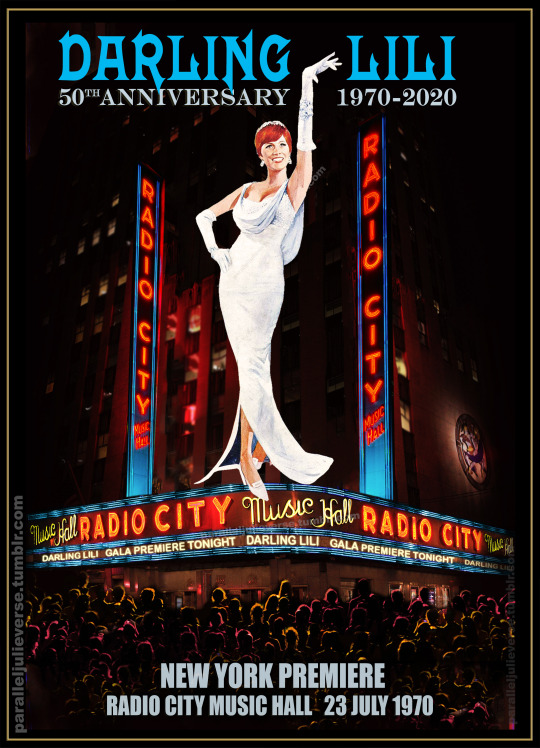
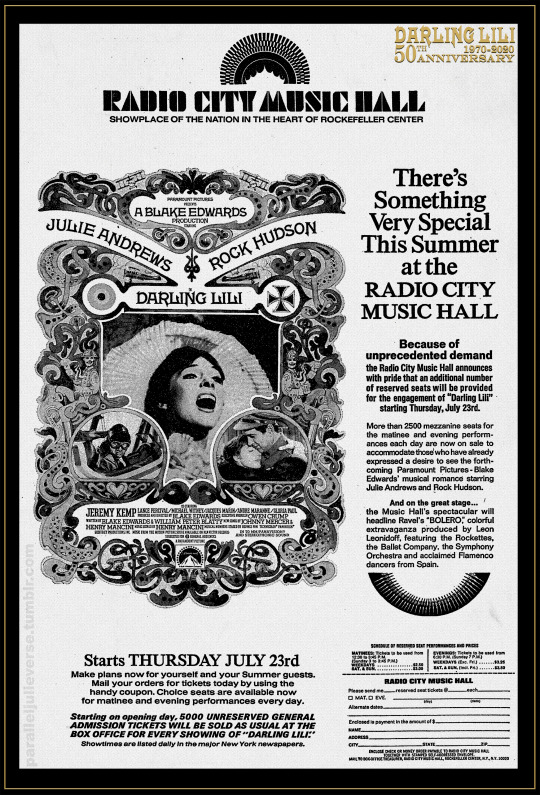
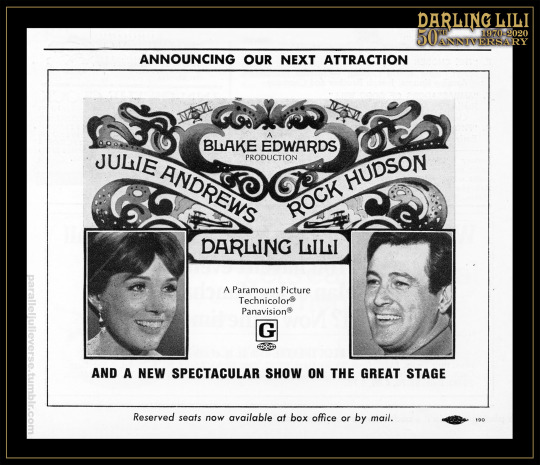
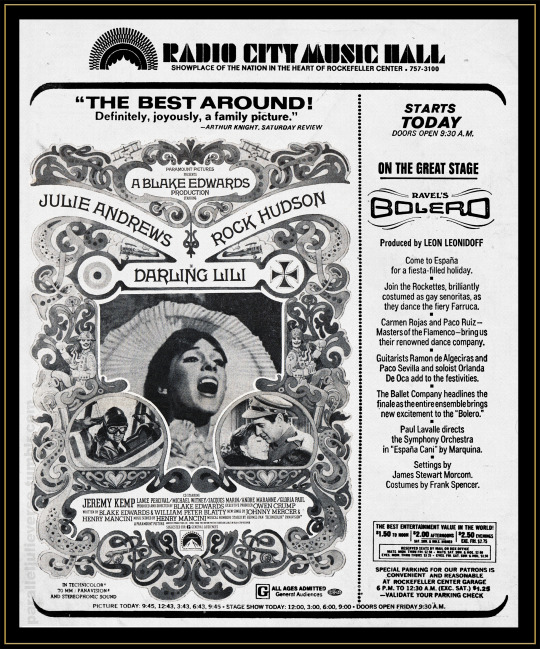
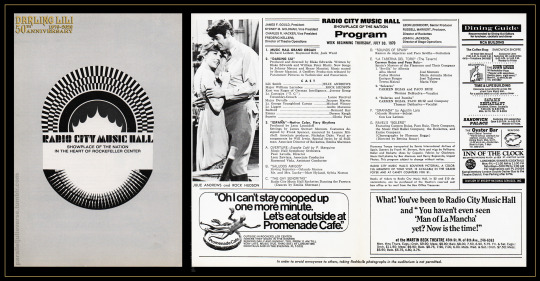
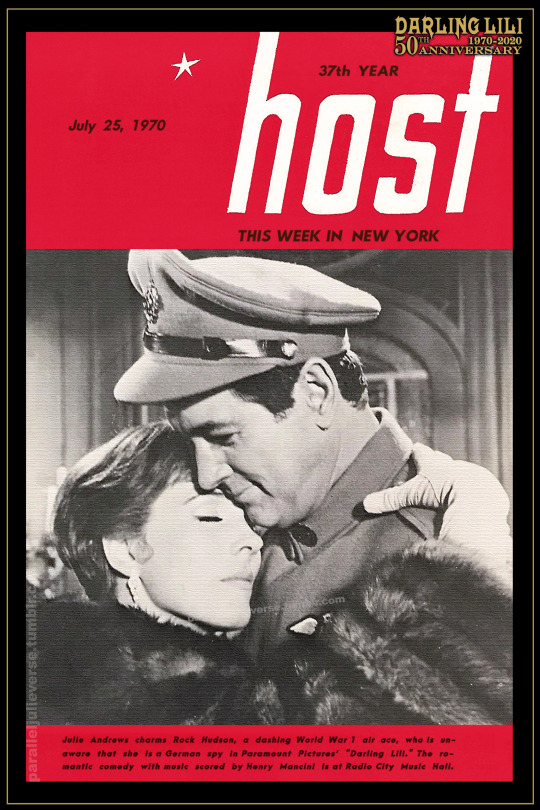
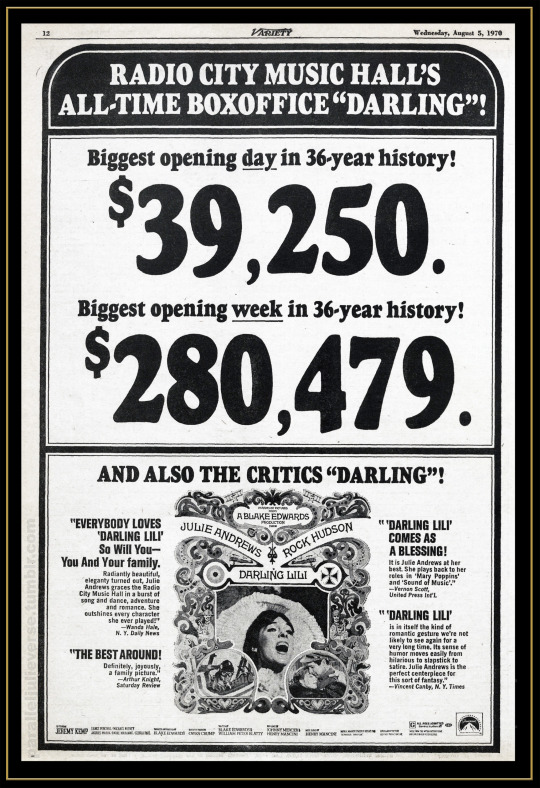
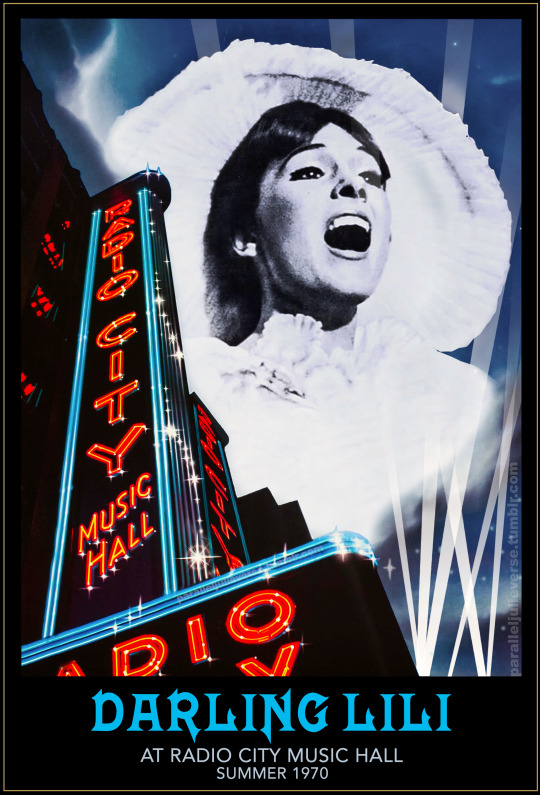
Darling Lili in New York, or Where Were You the Night Julie Andrews Played Radio City Music Hall and Stole Manhattan’s Heart?
This is the second in a series of commemorative posts to mark the 50th anniversary of Darling Lili, the last of the 1960s Julie Andrews screen musicals. In the preceding post, we looked at the film’s fraught production history up to and including its World Premiere at Hollywood’s Cinerama Dome on 23 June 1970. Here, we turn attention to the film’s New York bow which took place a month later on 23 July at the city’s fabled Radio City Music Hall.
Nicknamed “the show place of the nation”, Radio City Music Hall was for much of the mid-twentieth century the venue of choice for big event film releases. The theatre’s monumental size, architectural opulence, state-of-the-art technology, and pre-show stage spectacles made it “the quintessential motion picture palace,” and Hollywood studios jockeyed to secure bookings at “the Hall” for their most prestigious pictures (Goldman, 97-98).
During the late-60s, Paramount, the studio behind Darling Lili, enjoyed a run of extremely successful summer bookings at Radio City Music Hall. Its 1967 release, Barefoot in the Park broke house records for the longest run at the Hall with a 12-week season, only to be bested the following year by another Paramount comedy, The Odd Couple which ran for 14-weeks (”Trouble”, 114). It was something of a PR coup, therefore, when, in January 1970, Paramount announced with much fanfare that Darling Lili would make its official premiere as the summer attraction at Radio City Music Hall later in the year (”Par Gets”, 3). The deal even made the front cover of Boxoffice magazine with a photo of Frank Yablans, Paramount general sales manager, proudly signing the booking contract with Music Hall president, James F. Gould (″Sign of Summer,”, cover).
Barely had the ink dried on the deal, however, when Paramount changed tack. Hit by the toughest industry recession in decades and spooked by a precipitous downturn in the market for big-budget roadshow films, Paramount execs implemented a wholesale revision of studio operations, including a brutal hard-prune of their production and release schedules (Dick, 120ff). By April, earlier plans to give Darling Lili a high profile release had been ditched and, in its stead, Paramount decided to offload the film cheaply as part of a bundle of eight titles slated for saturation release during the summer off-season. Dubbed the “Big Summer Playoff,” the aim was to issue the films widely and quickly so that they could “saturate every major and minor market with single-house firstruns and key city multiples” (“Paramount’s Summer Playoff”, 5). In an era when important films were typically given carefully staggered roll-outs, it was an unorthodox move that fuelled advance perceptions of Darling Lili as a bomb of such magnitude that even its own studio had lost hope. As one newspaper commentator put it, Paramount “seems to have dumped the expensive movie rather than spend any more on it” (Taylor, 21-E).
Radio City Music Hall, by contrast, stuck to its original plans to exhibit Darling Lili as a high-profile summer spectacular. With Paramount having started to issue the film haphazardly to theatres across the nation in June, the opening of Darling Lili at Radio City on July 23 would no longer be a world premiere -- that honour was hastily devolved to Hollywood’s Cinerama Dome -- but the Hall persisted in proudly billing its run as “the New York premiere”. As Variety wryly noted: “Music Hall has never played a pic which hasn’t been a New York first, although perhaps someone there thought the tourists may have thought Lili was otherwise in that the film opened nationally a month ago” (”New York”, 20).
While not strictly a roadshow presentation, Radio City Music Hall exhibited Darling Lili with all the trappings of a hardticket prestige release. Seats were available via a mix of both premium reserved and general admission with special complimentary programs issued to patrons at all sessions. The theatre screened the film in wide-gauge 70mm with 6-track stereophonic sound, one of only two US venues to do so. Projected on the Hall’s 70′x40′ motion picture screen -- the largest indoor screen in the world at the time -- the film would have looked and sounded amazing (Goldman, 99). As an added point of appeal, screenings were supported by one of the Hall‘s famous live stage entertainments: in this case, a Spanish-themed spectacular with symphony orchestra, flamenco dancers, guitarists and, of course, the legendary high-kicking Rockettes (Jose, 54). In addition, the Hall lavished Darling Lili with a solid promotional buildup, taking out full page ads in key newspapers, and using strategically-placed billboards and transit ads around town.
It was an old-school approach of event-style cinema showmanship that paid off handsomely. Even before Darling Lili opened at the Hall, there was “an unprecedented advance demand” for tickets, leading the theatre to double the number of reserved seats from 900 to 1,800 for all sessions. “We’ve added reserve seats on a few occasions previously,” observed a theatre rep, but “only during the heavily crowded Christmas and Easter holiday seasons” and never...during the summer,” adding that he had “no idea” what had generated the extraordinary advance demand (Weiler, 37).
The good news continued when the film opened on July 23 with a box-office rush that broke all house records, prompting the theatre to increase reserve bookings even further to 2500 seats in an effort to accommodate the clamour for tickets (“’Lili’ Hitting Peak,” E-2). As Variety commented:
“Radio City’s Darling Lili...is the summer blockbuster all the auspices hoped it would be, with $285,000 or close expected for kickoff session. Pic is curious in that its longtime postproduction shelving had spurred rumors of disastrous artistic results. But film has shown legs in crosscountry openings and both critical and word-of-mouth opinion in Manhattan has been mixed at worst. Some response is downright enthusiastic” (“’Lili’ and Revue,” 9).
Darling Lili continued its bullish box-office run in New York, long after any initial novelty buzz should have subsided. Weekly grosses inched higher for a few weeks before settling into a very healthy $200K+ per week plateau. Come mid-August, Variety noted with thinly-veiled surprise that:
“Radio City Music Hall is experiencing a slight phenomenon with its current Darling Lili attraction. It’s not unusual during the summer tourist season for popular Hall programs to maintain or build grosses...but few remain in such a narrow range as has Lili to date. First week tally of $280,000 was a non-holiday record. Second was upped to $288,000. Now third session is headed for $280,000....70mm projection and sound are plus-values in a package which Hall president James Gould predicts will run until late September” (“N.Y. Full,” 9).
In the end Darling Lili did run at Radio City Music Hall until late-September -- September 23, to be precise -- when it closed to make way for the pre-booked Sophia Loren-vehicle, Sunflower. Across its 9-week run, the film grossed in excess of $2million in ticket sales, making it one of the theatre’s biggest summer hits to date (“Picture Grosses,” 15).
The commercial success of Darling Lili at the Hall was music to the ears of the film’s star who, in a rare moment of unguarded hubris, admitted to a measure of self-satisfaction at news of the booming box office receipts:
“‘I’m not so interested for myself,’ she explained, ‘but I’m happy for Blake. He has been so maligned about this picture that I am delighted he is receiving some vindication...I think he managed to make a vastly enjoyable film...People are entertained by it; the Music Hall figures seem to prove that.’ [T]he actress had mild reproof for the releasing company, Paramount, over its handling of the film: ‘Three weeks before the opening, there was no advertising campaign. None whatsoever. Paramount didn’t seem to know how it was going to sell the picture--or if. I simply can’t understand an attitude like that’” (Thomas: 13).
Julie’s chiding of Paramount for its poor handling of Darling Lili was not mere sour grapes. Once the studio had decided to issue the film as part of a summer saturation bundle, it effectively abandoned any semblance of cogent or even halfway organised marketing. As outlined in our earlier post, there was little rationale to the film’s distribution. Lili appeared suddenly and briefly at second-run theatres and drive-ins across disparate suburban and provincial areas, while major metropolitan venues didn’t get the film till much later, if at all. In many markets, the film was booked for a fleeting season of a week or two – in some cases, just a few days -- and it was frequently paired as a double-bill with a host of poorly selected partner titles (Caen, 6-B).
The studio’s approach to promotion was no better. A generic pressbook and merchandising manual was issued, but it was very bare-bones and perfunctory. In the absence of a clear marketing plan, local exhibitors were left to promote the film more or less any way they liked. Advertisements were frequently altered to pitch Darling Lili in diverse, and often contradictory, ways. The main advertising art provided by Paramount -- with its central image of Julie in mid-song set within a sepia frame of art nouveau swirls -- positioned the film principally as a nostalgic star musical with touches of adult romance. Many local exhibitors took a very different approach. Some tried to reframe it as wholesome child-friendly fare: “This summer’s one and only total family entertainment;” “It’s Julie at her best! It’s for your family” (“This Summer,” 24). Other theatres pegged it as “a man’s movie,” stressing the action and warfare elements with taglines like “See the Best Dogfights of World War I” or “If you enjoyed Blue Max you’ll love Darling Lili” (“Man’s Movie”, 13; “Palms”, 64). Some exhibitors even openly recycled graphics from The Blue Max and other WW1 action films, with one Florida venue going so far as to revive the film’s original working title: Darling Lili, or Where Were You the Night You Said You Shot Down Baron Von Richtofen? (“Amusements,” 11A).
Elsewhere, exhibitors implemented a rash of dubious promotional incentives such as “twofers” or free entry to "one child under 12...with the purchase of one adult admission to Darling Lili” (“Capri”, 2D). A theatre in Fort Lauderdale offered “free admission to World War I veterans in uniform during matinees Monday through Friday” (“’Darling Lili’ Ducats,” 5D). Possibly well-intentioned gestures but it was bottom-barrel marketing that fostered an unfortunate aura of abject desperation around the film that likely turned off more patrons than it enticed.
Against this sorry backdrop of shambolic distribution and ham-fisted marketing, the meticulous handling of Darling Lili at Radio City Music Hall served as a strikingly singular counterpoint. The remarkable commercial success of the film at that venue -- which, if reported figures are to be believed, represented well over a third of the film’s entire US grosses (“US Films,” 184) -- can only be attributed in good part to the care and professionalism with which the Hall managed the film’s exhibition. One can’t help but wonder, therefore, how different the overall commercial fate of Darling Lili might have been had Paramount exercised a more discriminating distribution plan, affording the film the kind of special-event release it enjoyed in New York. It’s unlikely Lili would ever have been a major hit -- it was simply too narrow in appeal and out-of-step with the rapidly changing times -- but it certainly could have gone much further in recouping costs and might even have realised a modest profit. At a minimum, it would have helped redeem the film from its unjust reputation as the “Edsel that almost bankrupted Paramount Pictures” (Rosenfield, 5).
As a coda to this account of the exceptional history of Darling Lili at the Radio City Music Hall, it is interesting to note that the film fared well in New York not just commercially but also critically, Some of the film’s best US reviews came from New York critics -- a surprising turn-of-events given how notoriously hostile the East Coast critical establishment had been to Julie Andrews’ earlier screen musicals. Wanda Hale of the New York Daily News gave Darling Lili three-and-a-half stars out of four, writing:
“Radiantly beautiful, elegantly turned out, Julie Andrews graces Radio City Music Hall in a burst of song and dance, adventure and romance...[I]t’s Darling Lili everybody loves, so will you, you Music Hall patrons--you and the family” (Hale, 39).
Vincent Canby (1970) of the New York Times found Darling Lili “a pure if not perfect comedy” with “a lot of perverse charm and real cinematic beauty.” He continued:
“Although Julie Andrews (the film, not stage, star) has always struck me as a very mitigated delight, she may be the perfect centerpiece for this sort of fantasy. That is, her angular, aggressive profile, combined with her coolness and precision as a comedienne and a singer, give the immediate, comic lie to the adventures of a supposedly irresistible femme fatale. She thus is immensely funny...” (16).
In a rare honour, the New York Times afforded Darling Lili a second review from Roger Greenspan (1970) who argued for the film as a minor masterpiece of refined, borderline philosophical, sensibilities. “[O]ne very bright critic I know...has already compared the film, ecstatically, with Max Ophul’s great Lola Montes,” he remarked before launching into his own rhapsodic paean:
“To her characterisation, Miss Andrews brings a precision of gesture that matches Edwards’s directorial precision and that constitutes one of the most excitingly controlled expressions of theatrical presence I have ever seen in a movie. Not cold; elegant, finely drawn, perfect of its period--and yet inward, self-sustaining, as if already committed to that gorgeously contemplative state of transport that is the subject of the movie within the movie to look for in Darling Lili” (S2-10).
In a similar move, the inaugural issue of the New York-based cinephile journal, On Film devoted not one but two essay-tributes to Darling Lili from Stuart Byron and Mike Prokosch respectively. The former gushed:
“Darling Lili comes at the end of the big-budget musical cycle, and it [is] one of the only...good things to come out of the whole rotten effort to reduplicate The Sound of Music. But in any case, a masterpiece it is--Blake Edwards’ most beautiful film to date and surely his most meaningful. ... Edwards is the first director to utilise Julie Andrews’ full resources. Her rapid manner of speaking becomes the neutral fulcrum of her moods--it is sincerity hiding danger, or bitterness hiding love. Her singing, however tender on the surface, always gives the impression of concealing a quick intelligence ready to spring forth when needed” (Byron 1970, 31, 34).
Prokosch (1970) was equally smitten, calling Darling Lili “the only work of art Hollywood ha[s] released in 1970″:
“First. one must forget one’s preconceptions of Julie Andrews and look at the way Blake Edwards, the film’s director, casts his wife with remarkable shrewdness: Lili Smith is a young British singer caught in a situation she cannot master. What more natural part could Julie Andrews want? ... Darling Lili is really gutsy in its formal expression...Edwards’ control of the...formal means at his disposal--stylized lighting and colour, split-up background compositions, and especially cutting--displays a...complete knowledge of their emotional effect. What makes Darling Lili unique among recent releases, though, is its careful structuring. Almost every sequence...takes a clear place in the design of the film” (96).
If it sounds like these critics were a little woozy on the then new wine of auteur film theory, a measure of sobriety was served by none other than Andrew Sarris, chief architect of American auteurism, who filed a somewhat more reserved, but nevertheless appreciative, review of Darling Lili for the Village Voice:
“Darling Lili is cinema a la folie, a rhapsody of romantic madness amid the current cacophony of absurdist dissonances, a sentimental valentine from Blake Edwards to Julie Andrews complete with gypsy violins and a Snoopy sub-plot about the Red Baron and the Dawn Patrol...but I’m afraid it won’t work for most audiences on any level. Its ingredients -- romance, satire, musical comedy, deadpan farce -- mix without blending. The song numbers don’t soar high enough and the prats don’t fall hard enough. But Darling Lili is never less than likeable, and its graceful professionalism is especially refreshing in this long hot summer of assorted crudities” (Sarris 1970, 47).
Despite his reservations, Sarris still included Darling Lili in his end-of-year list of the best films of 1970 -- as did several other Village Voice critics: Stuart Byron, Richard Corliss, Stephen Gottlieb, and William Paul (Sarris 1971, 59).
Now, if only the critics and audiences west of the Hudson had shown Darling Lili half-as-much love as the crowds at New York’s Radio City Music Hall, who knows how different the course of Hollywood history -- or at least that of the Julie Andrews screen musical -- might have been...
Sources:
“Amusements Today.” Florida Today. 2 October 1970: 11A.
Byron, Stuart. “Darling Lili.” On Film. 1: 1, 1970: 30-34.
Caen, Herb. “It’s News to Me.” Hartford Sentinel. 5 August 1970: 6-B.
Canby, Vincent. “Screen: ‘Darling Lili’ Sets the Stage for Pure Comedy of Romantic gestures.” New York Times. 24 July 1970: 16.
“Capri: Florentines! Something Wonderful! Has Happened to the Movies!” Florence Morning News. 12 August 1970: 2-A.
“‘Darling Lili’ Ducats Pared for Retirees.” Fort Lauderdale News and Sun-Sentinel. 27 June 1970: 5D.
Dick, Bernard F. Engulfed: The Death of Paramount Pictures and the Birth of Corporate Hollywood. Louisville, KY: University of Kentucky Press, 2001.
Francisco, Charles. The Radio City Music Hall: An Affectionate History of the World's Greatest Theater. New York: E.P. Dutton, 1979.
Goldman, Harry. “Radio City Music Hall.” Journal of American Culture. 1 1, Spring 1978: 96-111.
Greenspan. Roger. “Oh! What a Lovely Spy.” New York Times. 9 August 1970: S2-1, 10.
Hale, Wanda. “Darling Julie Sparkles as Musical Spy.” Daily News. 24 July 1970: 57.
Jose, “House Review: Music Hall N.Y.” Variety. 29 July 1970: 54.
“’Lili’ and Revues, Tally Darling 285G.” Variety. 29 July 1970: 9.
“’Lili’ Hitting Peak.” Boxoffice. 10 August 1970: E-2.
“Man’s Movie.” Winona Daily News. 7 August 1970: 13.
“N.Y. Full of Tourists; Divided Between ‘Darling’ and ‘Denmark’.” Variety. 12 August 1970: 9.
“New York Sound Track.” Variety. 29 July 1970: 20.
“Palms Advertisement.” Arizona Republic. 31 July 1970: 64.
“Par Gets Hall’s Summer Spot for its ‘Darling Lili’.” Variety. 21 January 1970: 3.
“Paramount’s Summer Playoff Strategy: 5,000 Bookings for Eight Major Films.” Variety. 3 June 1970: 5.
“Picture Grosses: Broadway.” Variety. 23 September 1970: 15.
Prokosch, Mike. “On Film/Feature Film: Darling Lili.” On Film. 1: 1, 1970: 96-97.
“Radio City Music Hall’s All-Time Boxoffice Darling.” Variety. 5 August 1970: 12.
Rosenfield, Paul. “Reconcilable Differences.” Los Angeles Times-Calendar. 12 July 1987: 4-5.
Sarris, Andrew. “Films In Focus: ‘Darling Lili’.” The Village Voice. 13 August 1970: 47, 52.
________. “Films In Focus” The Village Voice. 21 January 1971: 59.
“Sign of Summer.” Boxoffice. 26 January 1970: cover.
Taylor, Robert. “‘Lili’ Can Be Charming.” Oakland Tribune. 27 June 1970: 21-E.
“This Summer’s One and Only Total Family Entertainment.” Tucson Daily Citizen. 5 August 1970: 24
Thomas, Bob. “Julie Andrews Praises ‘Lili’.” Courier-News. 15 September 1970: 13.
“Trouble in Paradise.” Newsweek. 25 October 1971: 113-115.
“U.S. Films’ Share-of-Market Profile.” Variety. 12 May 1971: 36-38, 122, 171-174, 178-179, 182-183, 186-187, 190-191, 205-206.
Weiler, A.H. “Big ‘Darling Lili’ Advance.” New York Times. 23 June 1970: 37.
Copyright © Brett Farmer 2020
#julie andrews#Darling Lili#blake edwards#radio city music hall#old hollywood#musicals#film premiere#new york#1970
5 notes
·
View notes
Photo

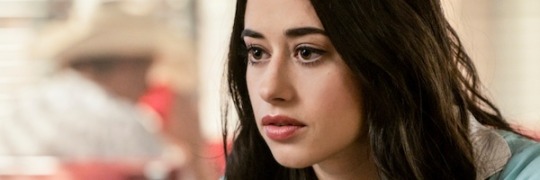
From show creator Carina MacKenzie, The CW series Roswell, New Mexico is back for Season 2, and Liz (Jeanine Mason) is torn between having her sister Rosa (Amber Midthunder) back and the sacrifice that Max (Nathan Parsons) made, in order for that to happen. And while Michael (Michael Vlamis) and Isobel (Lily Cowles) are struggling with their own grief over the death of Max, Rosa begins experiencing mysterious side effects from her resurrection, as she realizes that she’s been kept in the dark about what really happened the night that she died.
During this 1-on-1 phone interview with Collider, showrunner/writer/executive producer Carina MacKenzie talked about how the death of her male lead was in her original pitch for the series, the interesting ways that they’ve made use of Nathan Parsons throughout the season, that the secrets pretty much all of the characters are keeping are going to blow up in their faces rather quickly, getting to explore the sister dynamic, that there will definitely be more Maria (Heather Hemmens) this season, her approach to exploring Michael’s bisexuality, how original Roswell star Jason Behr ended up doing a chunk of episodes, and what she’s most excited about with Season 2.
Collider: First of all, congratulations on already having a Season 3 renewal before the premiere of Season 2. That’s awesome.
CARINA MacKENZIE: Thank you! I think it’s awesome, except I’m so tired and I have to go back to work on Monday.
When you tell the powers that be, “Hey, I’m going to kill off my male lead and start Season 2 with him dead,” what was their reaction? Did they try to convince you to do something else?
MacKENZIE: This was actually part of my pitch, when I pitched Season 1, from the very beginning. I can’t remember if I told Nathan about it during the pilot episode or during when we were shooting the second episode, but it was the plan from the beginning, so they knew where we were going. I think they trust me on that stuff. I always make the joke that I’ve killed Nathan Parsons a lot on television and he always comes back, in one way or another. We started the series with Liz taking a bullet to the heart and with him saving her life. This is a show about a woman. It’s not a show about a man being the hero, all of the time. So, if that’s how we started our series, we wanted to turn the tables and say, “Okay, she doesn’t have superpowers the way that he has superpowers.” Our show is science fiction. It’s not about magic and witches and rituals. It’s about science. So if he somehow, within him, has the science to save her life, then somehow, she should be able to use that science to save his. The studio and network definitely were a little bit worried about how much we used Nathan Parsons because we pay him for every episode, no matter what, and you like to get your money’s worth. And so they were like, “Are we renegotiating his deal here?” But we did find interesting ways to use him throughout the season, whether it’s nightmares or flashbacks. I also made Nathan come in to do work that wasn’t even Max related. We had a character that we hadn’t cast yet, but we needed to see their hands, and I was like, “Okay, you come to work and be the hands.” Whenever we had a shadowy figure whose face you can’t see, I’d be like, “Hey, Nathan, come to work.” It was actually fun for him, I think, to get to be around when he wasn’t around, ‘cause he actually lives in Santa Fe, as opposed to some of the other cast members who live in L.A.
It seems as though everyone is really starting off the season with secrets and things that they’re hiding from each other. How will that affect things? How soon will those secrets really start blowing up in everybody’s faces?
MacKENZIE: Quickly, in different ways. Alex and Maria have a conversation that they need to have about the status of their relationships with Michael. Maria has been in the dark about a lot of things, including the fact that no one’s told her that Rosa is back, and she was incredibly close to Rosa. No one told her about Noah, and she was one of Noah’s victims. Secrets don’t stay buried very long on the show, so there will definitely be some fall out. But I also think that, in some cases, the fallout is gonna be what makes what makes the relationships stronger, as opposed to what weakens relationships.
With Rosa back, you really get to explore the sister dynamic now, in present day. What have you enjoyed about that relationship, and watching what Jeanine Mason and Amber Midthunder bring to that?
MacKENZIE: Well, they are amazing. Obviously, they look alike, which helps, but they also did a lot of work together to work on mannerisms that they could create for these girls to share. Right off the bat, in the pilot, they’re sharing a motel bed on their road trip, and they both sleep with one leg outside of the covers. Little things like that were things that the actors got together with us and we said, “Okay, how do we create this feeling of Rosa being a relatively new force in our present-day Roswell, but still show the audience how deep the history runs?” Working with Jeanine and Amber made that very easy.
You’ve previously talked about there being more Maria, in general, this season. What can you say about her storyline and what Heather Hemmens is bringing to it this season?
MacKENZIE: Heather is a goddess. She is the queen of my life. There is literally nothing that I’ve asked her to do that she hasn’t done, with full enthusiasm. I will say that we put Maria into situations that I don’t think the fans are going to see coming. I got a phone call from Heather once and she said, “I’m hearing a rumor that this might be happening in the next episode. Please tell me that’s not true.” And I was like, “Read the script and tell me what you think. We’ll change it if you hate it, but just read the script.” And then, when she read the script, she was like, “Oh, hell yes!” I know that I’m being incredibly cryptic, but we’re pushing boundaries with her character and we’re exploring all sides of her. We’re learning who she is, not just as Liz’s best friend, which was what it felt like throughout Season 1, but we’re learning who she is as a business owner, as a caretaker for her mother, as a friend, and as a girlfriend. We get to see a lot of sides of her, but one of the things that I’m excited about is that we put Maria and Isobel together a little bit more this season. They’ve got this really fun, long, deep history of just hating each other, for no real good reason, whereas the actresses, Lily [Cowles] and Heather, live together and love each other. So, it led to some really fun dynamics on screen.
One of the things that I love about Michael being a bisexual character is that it’s allowed you to explore two relationships with him, the one between Michael and Alex, and the one between Michael and Maria. What’s it like for you to get do that, be able to bring that to life, and to hear how people feel about being represented in that way?
MacKENZIE: The representation part of it is really important to me. It’s really important to me that it’s not portrayed like he’s having two relationships. He is a very honest character. When Michael keeps secrets, it is not because he wants to keep secrets. Michael’s not gonna be a person who’s cheating on anybody, ever. He’s not someone who leads people on, or wants to hurt anyone. And those relationships are very different. Michael and Alex’s relationship, the bulk of it, was the summer after their senior year of high school, and that was 10 years ago. There are obviously a lot of lingering feelings, and there have been some brief reconnections over the years, but he isn’t in a committed relationship with Alex. He’s also not yet in a committed relationship with Maria. But when Michael does commit to someone, it’s very important to him to be true to them and to be honest. That’s been my whole thing. We’re not playing this bisexual character as a promiscuous person who can’t decide what he wants, or who wants both, and who’s just flitting between the genders. He’s very much a lover. And it’s been cool for me to play him as the Joey Potter or the Felicity. He’s not the typical person in the center of a love triangle. The other thing that’s important, too, is that Alex and Maria aren’t rivals. They are people who have a very deep history with each other and who love each other very much. Later on, we tell a story where Maria admits that, when she was a little kid and Alex was her best friend, she always thought she was gonna grow up and marry Alex. So, there are a lot of layers to this, and we’ve made sure to tell it with respectfully because of the representation angle, but also, we’re not trying to tell a story about people that aren’t flawed and that don’t make mistakes and that don’t have any nuance to them. We’re telling a story about people who mess up sometimes and who have to emerge from that, just like anybody else.
It’s also very cool that you have Jason Behr coming onto the show for Season 2.
MacKENZIE: Yes, it is.
How did that come about? Did he agree to it, and then you wrote the character tailored to him, or did you write the character, and then try to convince him to do it?
MacKENZIE: I met Jason at Julie Plec’s birthday party, and literally sat talking to him for five hours, and I’m not exaggerating. Everyone, including the person who was throwing the party, had gone to bed, and Jason and I were still talking about work and art, and what inspires us as artists. He had watched the first season of the show and he said, “If you want me to come do a cameo, reach out.” I didn’t think he was serious, but I thought it was worth a try. And we had this character come up that was a pretty small character because I didn’t think Jason was gonna be interested in going back to work full time. He hasn’t, in a really long time. He’s a dad, and he’s very much rooted in L.A. But when I reached out to him about the character, he was so excited that he was like, “Well, I’ll stick around.” We developed a very rich backstory for this character. He has a very deep and complicated history, and a very interesting future. He ultimately appeared in five episodes out of 13, which is a lot, and he’s essential to the season. I also cannot say enough wonderful things about working with this man. I was expecting somebody to come in with some reluctance to revisit a reboot of something that he had worked really hard on 20 years ago, but there was no reluctance. He was immediately one of the gang. He gave everybody advice. He knows the show, inside and out. And we put him through the ringer. He did not have an easy time on the show, at all, and he never didn’t have a smile on his face doing it. If anybody, in the future, gets the chance to work with Jason Behr, jump at it ‘cause it was a dream. It was a literal dream. I had the guy’s poster in my locker when I was a kid.
What are you most excited about with what you’re getting to do in Season 2, and how you’re also working toward Season 3?
MacKENZIE: Season 1 was my first time as a showrunner, so I was nervous and I had a lot on my plate. With Season 2, I felt a lot steadier on my feet. With Season 2, I pushed the stories to be bolder and pushed us in directions that scared the crap out of me because I had more confidence that I, as a writer, would be able to rise to the challenge. I told some stories that shook some things up on the network, and that we had to really, really defend. They ultimately ended up being very supportive of us, but we definitely threw some surprises at our bosses, which we didn’t really do in the first season. So, bolder is the word. We are entering territory that’s a little more controversial, a little darker, and a little sexier, in some cases. I’m just seeing what I can get on The CW.
[x]
6 notes
·
View notes
Photo

He was drafted into the Army in 1943. His fellow recruits remembered him as "simple, bland, unassuming." He described himself as a "nothing, a nobody." No one, including the young man, knew what life had in store for him.
In the Army, he served as a staff sergeant in the 20th Armored Division. Elements of his division participated in the liberation of Dachau concentration camp - Although his unit was near, they did not actually enter the camp.
Although he was proud of his service, he remembered that time as very painful for him - he not only witnessed the horrors of war, but it was also the same time his mother passed away.
His father, a barber, was born in Germany, and his mother was of Norwegian heritage.
He was born on this day, November 26, 1922 in Minneapolis, Minnesota. Being the only child, he was very shy. His uncle gave him the nickname, "Sparky" after the horse "Spark Plug" from the Barney Google comic strip.
His mother was bedridden during his high school years, and the young man often heard her cries of pain. Her illness was identified as cancer in November 1942, the same month he was drafted. On February 28, 1943, he used a day pass to visit his mother one last time. He got to say goodbye to her that day, but he said, "I'll never get over that scene as long as I live."
He would also regret the fact that his mother would never see what he would become.
After returning from the war in the fall of 1945, he sold his first cartoons to his local newspaper.
"The first Peanuts strip appeared on October 2, 1950, in seven newspapers nationwide. Although being a professional cartoonist was [Charles] Schulz’s life-long dream, at 27-years old, he never could have foreseen the longevity and global impact of his seemingly-simple four-panel creation," according to the Charles M. Schulz Museum.
In the summer of 1968, after the assassination of Dr. Martin Luther King, Jr., and after corresponding with teacher Harriet Glickman, Schulz made a bold decision, introducing a character named "Franklin" to his Peanuts comic strip. As told in the July post on the Peace Page celebrating Franklin's 50th birthday, Schulz by that time was already a very popular comic strip artist and did not have to acknowledge the school teacher's request to introduce a black character in order to bring the country together and show people of color that they are not excluded from American society.
Schulz carefully thought about it, knowing that his career could be in jeopardy, as other cartoonists had politely declined Glickman's request. But, he corresponded with Glickman's black friends to ensure that he would present Franklin in the best light, smart as Linus and not condescending, even to the point where some would joke that Franklin was too boring and "normal" compared to the other Peanuts characters.
He also received backlash as some newspapers threatened to cut his strip if he showed Franklin in the same classroom as other Peanut characters. He courageously ignored the threats, sitting Franklin in front of Peppermint Patty at school and playing center field on her baseball team. He even told the president of the comic's distribution company that "Either you print it just the way I draw it or I quit."
According to The New Yorker, Schulz always worried about the portrayl of Franklin. "He needn’t have worried, though, because Franklin felt real — or at least felt respected — as a kind kid on the beach with whom Charlie Brown plays in the sand. (“Whites Only” pools were not uncommon in 1968.) Though Schulz may have lived a quiet, remote life in his California studio, he was woke enough to realize that all one had to do was care enough about a character for he or she to 'work,' even if the shell of the character wasn’t his own."
Schulz later introduced another black character, Milo, as well as semi-Latino Jose Peterson, one of the first characters of Hispanic descent in U.S. comics. He also gave voice to women in sports in the strip after he became friends with tennis star Billie Jean King, leading to a lifelong interest in the fair treatment of women athletes and a seat on the board of the Women’s Sports Foundation that King founded.
Today, the work of Charles Schulz is still very popular, even though recently the Peanuts' animated Thanksgiving special is embroiled in some undeserved social media controversy designed to divide fans who may not be aware of how Franklin was originally introduced.
In an article in Snopes, Nat Gertler, author of a book about Peanuts, wrote:
That even though the animated cartoon was in a completely different media than Schulz' newspapers, there is an "assumption that Charles Schulz himself planned the admittedly awkward shot being referenced [of Franklin sitting alone on one side of the picnic table]. While Schulz definitely kept a hand in the animated work, by 1973 when the Thanksgiving special aired, the Peanuts characters were starring in not only a steady stream of TV specials, but also a series of animated feature films. Schulz certainly wasn’t laying out every shot himself — he had a day job to take care of, writing and drawing the most popular comic strip going, as well as creating original books, handling licensing materials, and so on. A talented team of animation folks were doing their job on this."
Schulz critics also like to ask why Franklin was drawn to look "dirty" in the first early panels, not realizing that back then every newspaper comic strip was printed in black and white with no option for shading other than drawing lines to depict shades.
Gertler would conclude, "Schulz stuck his neck out introducing Franklin." Others have pointed out that the network which produced the original Peanuts Thanksgiving special is also responsible for cancelling The Smothers Brothers show for being critical of the Vietnam War and the political mainstream. It should also be noted that it was only recently in 2015 that the television academy recognized a black woman, Viola Davis, for best actress in a drama, the first time that award has gone to a black woman in nearly 70 years of award-giving, shedding some light on how ground-breaking the introduction of Franklin was in 1968.
"Despite the over-all racial imbalance of the “Peanuts” cast, this caring is really the secret, mysterious power of Schulz’s entire strip. Charlie Brown, Lucy, Linus, Snoopy, Schroeder, Franklin, and everyone else came alive on that page because of Charles Schulz’s ability to make you care about and feel for — and, in Charlie Brown’s case, at least, feel through — nearly every one of them," according to The New Yorker.
Schulz died on February 12, 2000. By the time he retired in "December 1999, the Peanuts comic strip was syndicated in over 2,600 newspapers worldwide, with book collections translated in over 25 languages," according to the Charles M. Schulz Museum.
The Museum also says of Schulz, "The continuing popular appeal of Peanuts stems, in large part, from Schulz’s ability to portray his observations and connect to his audience in ways that many other strips cannot."
"The thoughtful pacing in 'Peanuts' is reminiscent of that of 'Mister Rogers’ Neighborhood.' The two also share a rejection of the violence and manic energy that characterize other children’s media of the time", according to the New Yorker.
“Schulz wasn’t an artist because he suffered. He suffered because he was an artist," said writer Jonathan Franzen in the Press Democrat. "To keep choosing art over the comforts of life — to grind out a strip every day for 50 years, to pay the very deep psychic price for this — is the opposite of damaged. It’s sort of choice only a tower and strength and sanity can make.”
Bruce Handy in The Atlantic wrote:
"So if I were asked to pick the character most likely to find happiness if he or she ever grew up . . . I wouldn’t hesitate to pick Charlie Brown. Maybe he does find a form of redemption in his suffering? He feels his failures deeply, he suffers profoundly, and yet he remains ever willing to take another run at kicking the football or trying to get his kite aloft or pitching the next game or hoping this year, finally, to receive a valentine. If he is a blockhead, it is in part because he cares so much; diffidence doesn’t merit the insult. Like his creator, he has passion and persistence. If he were real, I like to tell myself, Charlie Brown would be fine."
The Jon S. Randal Peace Page
10 notes
·
View notes
Text
Spotlight: Jimmi Busa, Vice President of Studio Nine Lives
My pal and the VP at animation firm “Studio Nine Lives” talks about his influences, breaking into the industry and his dream project.
by Chris Clay
QCP: Let’s start with the burning question on everyone’s mind: How did you get into anime?
JB: Growing up with 90’s anime gave me the best childhood,along with the pipe dream that maybe someday there was the possibility that I could produce my own anime series or even have my own anime studio. The chances of making that a reality were very unlikely, since I took medical courses, in college only to follow that up with a career in real estate sales! The chance came in 2012 when a friend of mine was impressed with a few of my miniature sculptures and introduced me to a western animation studio owner who wanted me to do some miniature model figures for an original project she planned to pitch in Busan, South Korea that summer. I ended up getting there to present the content itself and saw a way to finally enter the animation industry with a different tactical approach.
My entry into anime was completed when I met Mr. Brian “Bobby” Barredo within days after arriving from Busan. For the next two years, we planned out the process of upgrading his anime studio (Cat Animation) and later on deciding to make a bigger one, which became Studio Nine Lives and it’s sister school, South East Asian Center of Animation Technology or SEACAT. Our aim is to produce an army of next-generation animation professionals by making sure that kids growing now up don’t just dream about having their own studios, but have the knowledge & resources to make it happen.
QCP: How do you decide what projects to take on, as a studio?
JB: We envisioned Nine Lives as a total animation outfit, handling full production work up to corporate project requirements. While we keep anime production close to heart, we actively seek projects that offer us new challenges and provide the best opportunities for our studio and creators to grow, even if it is not anime-related. At present, we are deep in outsourced anime work from Japan, which keeps us on our toes as we prepare for big projects coming up throughout 2020.
JB: If you could work on any project you wanted right now, what would it be?
A: We have set our eyes on a lot of original content out there, including [QCP’s original property] King Blood (laughs), but we would to love to work on Boku No Hero Academia with Studio BONES or WITs Kabaneri Of the Iron Fortress.
Those are my personal takes but knowing Brian, that guy would shoot for anything involving MADHOUSE! (laughs)
QCP: I can relate… I’m a total MADHOUSE fanboy, too!
JB: Yoshiaki Kawajiri will never die! (laughs)
QCP: Speaking of which, do you remember the specific movie or tv series that started your passion for anime?
JB: For me it was Chodenji Machine Voltes V. I grew up watching that show, like most Filipino kids of my generation.
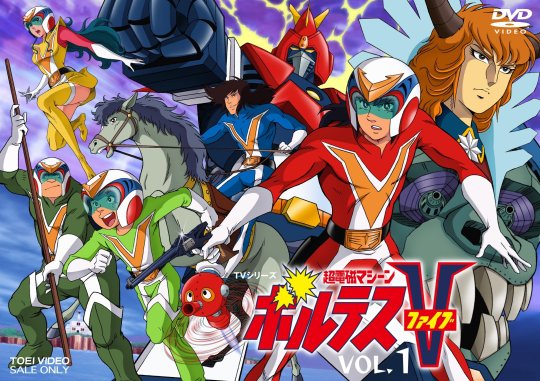
Dragonball Z and Ninja Scroll didn’t help either! (laughs) The pivotal series that made my animation dream burn brightest throughout the years will forever be Takehiko Inoue’s Slam Dunk.
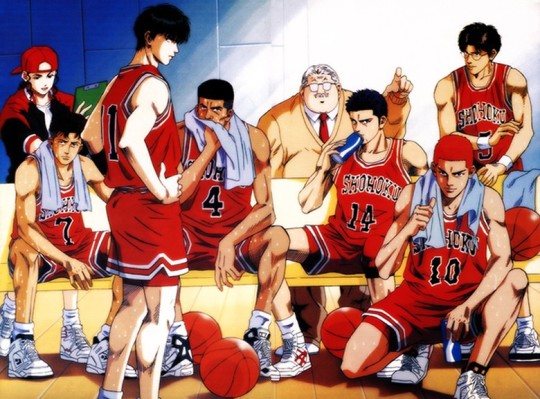
QCP: Really? Interesting! Why Slam Dunk?
JB: Filipinos are madly in love with basketball and with Slam Dunk, I found myself relating to one character’s knee injury and the subsequent struggle to reconcile his past and injuries to get back to the game he loves. it really hit home. To see a creator be able to portray heartfelt emotions through a sports anime, that certainly lit a fire.
QCP: Sports manga are surprisingly underrated.
JB: Yeah, they are. My top two anime are Slam Dunk and Haikyuu and though they are quite popular, I think they should get more credit.
QCP: I have a particular fondness for Eyeshield 21. Yusuke Murata infuses every on-field image with more fighting spirit than a lot of more straightforward shonen battle manga.
JB: Yeah, “Eyeshield 21” is a damn good one. no wonder YM got the nod for “One Punch Man”, his gritty aesthetics really lends itself well to sakuga.
QCP: What are your thoughts about the current state of animation?
JB: Well, the prevalence of CG and 3D effects certainly gave rise to the possibility of higher qualities of animation… but there seems to be more of a focus on quantity over quality, on new and old IPs alike. While I miss the classic animation “feel”, there’s certainly some new titles worth watching for. You just have to choose well, I guess! (laugh)
Tune in next week for part 2 of my interview with Jimmi Busa, where we discuss Disney+, anime hype cycles and the future of genre tv & films.
#Studio Nine Lives#Jimmi Busa#Fillipino creators#animation studio#anime#anime studio#Slam Dunk#Yusuke Murata#Spotlight#animation#television#King Blood
1 note
·
View note
Text
JUNE 2019 GOLD STAR MEDIA SCHEDULES & REVIEW
Members may earn 3 points each (up to 6 points) for writing, by the end of June 30 KST:
A solo para of 400+ words based on their monthly schedule (does not count toward your monthly total).
A thread of six posts (three per participant, including the starter) based on their monthly schedule.
Threads do not have to take place directly during an important date listed on the schedule, but must be related to what the muse is mentioned to be doing in the paragraph explaining their schedule/the company’s schedule for the month and/or their thoughts on the mentioned activities or lack thereof.
These schedules may be updated throughout the month if new information needs to be added.
Overall Company
All artists will talk with part of a management team in charge of the organization of their upcoming company concert to discuss general plans for stage and conceptual design. Idols are given the chance to pitch special stages to management. It’s highly unlikely they’ll actually make the cut, but the illusion of the artists’ input is what’s important here.
Important dates
June 1-6: Hawaii retreat.
Gold Star Soloist 1
She continues to work on her next album behind the scenes with pressure from Gold Star to release it at just the right time, but to keep her fans engaged, the company has booked her to do a Dingo video that's sure to only get positive PR for her where she’ll surprise a fan, give her advice, and sing with her.
Important dates:
June 22: Dingo video filming.
Gold Star Soloist 2
Album recordings continue as songs are picked up and scrapped or altered and new studio time is needed, but she’s got a concert in California this month too, about two weeks after returning from Hawaii for the retreat.
Important dates:
June 22: [Gold Star Soloist 2] in California concert at Fantasy Springs Resort Casino in Indio, CA, USA.
Gold Star Soloist 3
After returning from Hawaii, he’ll be back out on a flight a week later for a half a week of Australian concerts. He’ll do a little bit of radio, podcast, and local promotion while he’s there, but not anything full-out.
Important dates:
June 14: I COLOR U concert at The Triffid in Brisbane, Australia.
June 16: I COLOR U concert at Metro Theatre in Sydney, Australia.
June 17: I COLOR U concert at 170 Russell in Melbourne, Australia.
Silhouette
At the end of the month, Silhouette will hold their summer Japanese tour, where they’ll perform several of their Japanese releases and debut their new Japanese single “Trouble” which hasn’t officially been released yet. This means rehearsals and Japanese lessons between their return from Hawaii and their flight to Japan on the 19th.
Important dates:
June 21: Silhouette Trouble Japan Live Tour concert at Zepp Namba in Osaka, Japan.
June 23: Silhouette Trouble Japan Live Tour concert at Zepp Fukuoka in Fukuoka, Japan.
June 25: Silhouette Trouble Japan Live Tour concert at Diamond Hall in Nagoya, Japan.
June 27: Silhouette Trouble Japan Live Tour concert at Zepp Tokyo in Tokyo, Japan.
Aria
To air alongside their comeback, Aria will be shooting a short fake reality series based on Aria members’ lives in an alternate universe. Major filming will begin next month, but this month the members will be filmed an interview explaining what they think they’d be doing in a parallel universe. This must be family-friendly and different enough from being an idol to be interesting (a student or a model is okay, but a solo singer or an idol in a different group isn’t), and their answer doesn’t necessarily have to be true. Since this series will involve acting, all members will be required to take an acting class or two as well.
Important dates:
June 9: Performance at Asia Model Festival (also attending: 7ROPHY).
June 12: Aria‘s Parallel Universe series pre-filming.
Origin
They’ll finish up their American tour in the few days following the Hawaii retreat before flying back to Seoul on the 12th. After that, it’s a CF shoot and intensive rehearsals for their sixth anniversary fanmeetings in Busan and Seoul. They’ll spend the middle of the month in Korea, getting some studio recording in for potential Korean comeback album songs and final vocals on their next Japanese album in the meantime, before once again jet setting off on the 28th to end the month doing their Brazil concerts.
Important dates:
June 8: Speak Yourself Stadium Tour concert at Metlife Stadium in Rutherford, NJ, USA.
June 9: Speak Yourself Stadium Tour concert at Metlife Stadium in Rutherford, NJ, USA.
June 11: iHeart Radio Live Show in New York, NY, USA.
June 13: VT Cosmetics Spotlight Yourself L’atelier Paris CF filming.
June 15: Magic Shop Fanmeeting at Busan Asiad Auxiliary Stadium in Busan, South Korea.
June 16: Magic Shop Fanmeeting at Busan Asiad Auxiliary Stadium in Busan, South Korea.
June 22: Magic Shop Fanmeeting at Olympic Gymnastics Arena in Seoul, South Korea.
June 23: Magic Shop Fanmeeting at Olympic Gymnastics Arena in Seoul, South Korea.
June 29: Speak Yourself Stadium Tour concert at Allianz Parque in São Paulo, Brazil.
June 30: Speak Yourself Stadium Tour concert at Allianz Parque in São Paulo, Brazil.
Impulse
This month is for recording their next comeback album once the members have returned from the retreat. Songs have been finalized and chosen, so all recording will be finished this month to get that done before they have their first Korean comeback of the year in early August. This month also involves rehearsals for their world tour, which will immediately follow music show promotions and go until the end of the year, and a CF filming for Shinsegae Duty Free.
Important dates:
June 24: Shinsegae Duty Free CF filming.
Fuse
One festival performance, a Japanese single release, and a show filming will be slotted in between major studio time for a summer comeback. The track list is still likely to be narrowed down, so they’re recording for songs that may never see the light of day. The Stage K filming will involve judging dance groups covering several of their songs, and they’ll also give an interview with questions on their favorite Fuse choreography, the hardest Fuse choreography, and the most memorable choreography to them.
Important dates:
June 9: K-Pop World Music Festival at Mall of Asia Arena in Manila, Philippines (also performing: Unity).
June 20: Release of “Sayonara” Japanese single.
June 21: Filming for Stage K episode (to be aired July 7).
Element
To milk this comeback single for all its potential, Gold Star plans to send Element out on television appearances past the end of their music show promotion period leading up to their concert in Seoul later in the summer. Gold Star has become known lately for not utilizing television appearances in the marketing of their younger, more internationally based groups like Origin, Femme Fatale, and Element, but they’re breaking that pattern for Element with an After School Club appearance and what they have faint hopes of being a breakthrough appearance on Immortal Song. Element will be performing Wingless Angel, as they’ll learn at the beginning of the month, and they’ll be drilled in continuous practice to give the best live performance they can.
Important dates:
June 15: End of music show promotions.
June 18: Live filming of After School Club episode.
June 29: Filming of Immortal Songs episode (to be aired July 6).
Femme Fatale
Once they return from the Hawaii retreat, the members will go full-force into final pre-comeback prep, making it their busiest month in a long while. On top of perfecting their performance for Ddu-Du Ddu-Du and Forever Young, they also film their comeback music video over two days of filming mid-month. They’ll then be sent out to film an Olens contact lenses CF, as well as photo shoots and interviews for High Cut and for Cosmopolitan magazines. Gold Star has every intention for going all out for likely the only comeback Femme Fatale will have this year and it seems to pay off, even from the first day of release. Gold Star has also booked arenas for their first ever tour, a Japanese arena tour, to happen in the third quarter.
Important dates:
June 14: First day of Ddu-Du Ddu-Du M/V filming.
June 15: Second day of Ddu-Du Ddu-Du M/V filming.
June 17: High Cut Magazine photoshoot (August issue).
June 21: Olens CF filming.
June 25: Cosmopolitan Korea Magazine photoshoot (August issue).
June 28: Release of “Ddu-du Ddu-du” & Square Up mini album V Live-exclusive showcase, promotions continue until July 28.
7 notes
·
View notes
Text
Virgil moment
Hey @gumnut-logic ! I've got a couple moments I put in my fic specifically for you XD, but that series is a lot x.x so I'm just gonna send you the moments! Hope you like them!
Sparing Match
Virgil shifted on the bench, trying to ignore the chuckle from Parker next to him. Kayo was currently bent over Gordon's prone form, her knee pressing into his shoulder as he struggled to get back up. The engineer didn't envy his brother, even knowing his turn would come soon enough.
The whole idea had been Gordon's, but you wouldn't know it with how often he fussed about learning self defense. The reasons for his reluctance were easy to trace back, however, Kayo's next question easy enough to answer.
"Why were you late this time?" She finally stood, helping the blonde off the mat.
Gordon groaned, rolling his shoulder as he went to take his position again. "Made Penny breakfast in bed."
"Oh, that must've been nice." Kayo admitted and Virgil didn't miss the sidelong glance from the woman, her eyes playful as they glared at him. Leave it to Gordon to get them both in trouble, but he couldn't help it that his girlfriend was up well before he even stirred. He could make it happen, though. Or at least something similar.
Really, Virgil had originally attended the training for medical support if one of them got hurt, but after a few weeks, he'd built an interest in sparring with the security officer. He guessed it was inevitable that they'd find an interest in each other.
The session continued into a form of hand to hand combat, Gordon doing his best to block and counter padded fists aimed towards his ribs and face. His leg came up to stop a quick leg sweep, stumbling back a few feet before catching himself and falling back into his protective stance.
Watching the progression of Gordon's skills had been another intriguing part of Virgil's attendance. The grace his brother showed in the pool was merging into each move that blocked an attack. When the roles reversed, the same power went into each stroke. He was still holding back at the end of each hit, worried about actually making contact, but that had been such a rare occurrence. Kayo knew what she was doing.
A hit landed on the woman's shoulder and she spun with it, catching Gordon's arm with both hands. With a quick pivot, she was able to use the blonde's momentum to flip him over her shoulder.
There was a second where Virgil thought the session was over, but instead of being slammed to the floor, Gordon's feet were solid as he landed, his own arms reaching around Kayo's upper body. Before the medic could blink, his brother twisted, the woman losing her footing and falling to the mat, Gordon pinning her.
There was a silence that followed, the pair breathing heavily from the exertion. It was broken by the whoosh of the door and the soft tap of flats.
Virgil watched the smile spread across his little brother's face as he looked up to greet lady Penelope and with the excitement of a small child he beamed, "I did it!"
That was a mistake.
Technically, the session was done as soon as Gordon had pinned Kayo to the mat, but that wasn't life and he was training for a reason. So when Kayo's leg shot up and hooked around his brother's head, there was nothing he could do but allow himself to be flipped with the security officer keeping him locked on the ground.
"Owwww, no fair," the blonde whined, an arm flailing to find purchase.
"Couldn't be helped," Kayo grinned as she finally released him. "You were wide open."
For his part, Gordon simply relaxed into the mat, the smile back on his face. "I did pin you though, so… That's good, right?"
Virgil heard the content giggle from her ladyship as she took a seat next to her chauffeur. The older brother in him couldn't help but feel the pure joy that came with knowing something good had come out of the last year. Penelope was the one person who could reach the pain Gordon held and slowly draw it up to be expunged. She gave him life like no one else could.
Kayo was on her feet by the time he'd turned back, offering a hand to help the blonde up. "Yes, you did good, Gordon."
Movement to his right caught Virgil's attention as Parker stood. The former thief was known to participate in the training here and there, offering his own special set of skills to deal with combat. Gordon never liked having to fight the older man.
"Aw, Parker," Gordon whined, also recognizing the intent. "Do we have to?"
Parker simply chuckled, setting his jacket aside. "Thought I'd bring somethin' a bit different to the table today." He didn't immediately step towards the mat, offering a hand to Lady Penelope, who seemed to understand what her chauffeur had been planning.
Gordon's brow rose with interest as the two approached, Penelope stepping in front of the aquanaut with a smirk playing across her face.
Kayo came to sit next to the raven-haired brother, also content in knowing what was about to happen. She tucked herself under his arm and leaned into his chest, making it difficult not to smell the lavender from the shampoo he'd picked up on the last supply run.
"Not h'every h'attack can be 'ead on, fisticuffs as h'it were." Parker explained as the blonde woman turned her back towards a mildly confused Gordon. "Sometimes the bad guys don't play fair. You'll be playin' the part h'of the villain, usin' 'er ladyship as a 'ostage."
The cogs visibly clicked in Gordon's mind, mischief impossible to miss as he took a step closer to his wife and wrapped both arms around her in a restrictive hug. "Like this?"
The instant the aquanaut's arms hit Penelope's skin, Virgil could see the instant regret even before she let out a squeak. Gordon had already been training for a good twenty minutes. Sweat was unavoidable.
"Oh, Gordon!" She squirmed as he placed his face next to hers, unable to stop a short giggle. "Is this really necessary?"
"Yup, cause you're my hostage," the blonde teased.
As amusing as it was to watch the two love birds, Virgil's eyes were on Parker who had already thrown something outside of his brother's periphery. Whatever it was, he expected the "bad guy" would be on the floor in the next few seconds.
"Watch." The instruction from Kayo had him looking back towards his brother and Penelope, the latter locking eyes with her chauffeur before a sudden cacophony of noise sounded from Gordon's left, the shock of it pulling the blonde's attention away.
Virgil could see the exact moment his brother realized his mistake. It was a funny, wide eyed expression that was instantly wiped away and replaced by a pained shock as one of his arms was grabbed and wrenched behind him, the other losing its grip on Penelope. And then, he was on the ground, Parker kneeling into Gordon's back to keep him there. The "hostage" was left unharmed, a ringlet of hair only slightly made askew by the jostling, which she simply tucked back in place.
"I give!" Gordon wheezed. Parker gave him a pat on his back before standing and offering a hand. "Got it - distract and take down."
"H'or separate h'if taking the bad guy down is too risky." The elder man added. "The goal is to get the 'ostage out h'of 'arms way."
Virgil couldn't help wondering when his little brother would ever need such a skill. Their lives had been reduced to simple consult work. There was no going out on missions, just the occasional need for directive. Otherwise, it was life on a tropical island. He'd expanded on his studio, branching into different mediums for his artistic needs. His music had improved, as well.
But this was Gordon's coping method. Life wasn't predictable and he wanted to be ready for anything.
"Alright, I think that's enough for one day," Penelope interjected, looping an arm into Gordon's. "I would rather not have him completely worn out for the rest of the day."
"You heard the lady," the blonde grinned. "The 'beat up on Gordon' session is officially done."
"But I do believe the 'Gordon needs a shower' one is in desperate need." Penelope's nose wrinkled as she began leading her husband towards the door. "Do enjoy the rest of your day."
Virgil almost laughed until he turned to Kayo, a mischievous look gleaming in her eyes.
"Your turn." And the teasing pitch in her tone left him feeling hesitant, but it was short lived as he watched her saunter over to the mat, Parker ignored as he took his leave of the couple.
Pulling himself up, he couldn't help the thrill that came before he got his rear handed to him. Even still, he gave her his best worried look before offering a request, "Be gentle this time?"
And as her brow rose, he knew it would be anything but.
4 notes
·
View notes
Text
Form Podcast 3x01: Changing of the Guard

Sorry guys I was going to be diligent about posting these but life happened and tbh a lot of these eps didn’t have anything particularly New or Noteworthy . This ep has some good nuggets though. Guests on this one were JDS and LM!
-As previously mentioned, a production season for them was 26 episodes, breaking the series into 3 major arcs, so while 3x01 is what we know this episode as, it’s actually 2x01 for them (and 7x01 is 3x01).
-Lotor was something they were super excited about because he was so different than Zarkon. They referenced the original series, and GoLion, and did some of their own stuff to make him the character he was and tried to give him more motivation than the original who just “wanted to marry the Princess”.
-JDS and LM give credit to Studio Rev for the show as well, I think they did some animation on the show.
-Re: Shiro’s non-permadeath: they couldn’t have anticipated Shiro’s passionate fans and also how he became “SpaceDad” to so many. They wanted to remove him cuz he gave off a “as long as he’s there everything’s okay” vibe and they wanted to show growth that could happen without that safety net (particularly for Keith) but also the chaos, which they were able to end up showing a bit when Lotor realizes this isn’t the same team who defeated Zarkon.
-Keith being part galra vs Lotor being part galra was going to be a duality they were going to explore more in-depth and draw more comparisons, especially with Shiro out of the picture. They get very vague about why this didn’t really happen but I remember a long time ago reading SYeun had scheduling conflicts and that’s why Keith was mostly absent for 2 seasons.
-Lauren: “It ended up making some interesting story things we couldn’t have predicted, by having Shiro back in it.”**
Joaquim: “It brings in another dynamic and allows us to play with another idea and that’s that there doesn’t always need to be just one leader of voltron, it’s not an exact science.”
-They never say how much time has passed between 2x13 and 3x01 but the way JDS/LM talk it def feels like MONTHS have gone by.
-I can’t tell if LM is joking when she asked if they could get Sean Bean in to play a minor role. They joke it’d work because his character would have to get killed off as per usual Sean Bean fashion.
-Throk was perhaps going to have a better role just because they really liked his design, but he didn’t animate well which was a surprise. He was voiced by the same guy who played Van Gogh in that episode of Doctor Who.
-Mark Rolston plays Kolivan, and was in Aliens. Mitch Iverson and JDS are huge Aliens fans so on Mark’s first day of recording they were super excited and went to tell him what big fans of his they were and right away Mark went: “Lemme guess: Aliens.” and they said yes and Mark replied, “It’s always the big guys.”
-When dialogue gets too heavy they usually get a producer note that’s like “throw something funny in.” As an animator I can confirm this is the most common client call you get on pretty much any cartoon.
-The designs of Lotor’s generals came before their personalities did, except for Acxa who was designed early for the Weblum episode. Zethrid’s design is their favorite.
-Lotor originally had lines under his eyes for an alien look but it only made him look tired all the time so they went back and cut them. A few scenes still snuck through with the lines though.
-Lance is the guy who at the start thinks of himself as leadership material but then realizes that it’s just as good to be PART of a team and it’s a “coming into adulthood” arc. This was his storyline AS IT WAS PITCHED at the very beginning and continued to remain so all those who subscribed to BPLance sorry but them’s the facts.
**JDS/LM have mentioned that Shiro was always their first pick to be the LGBT rep on the show but when they decided to kill him off they were going to pick someone else, knowing how bad it would look to kill off their rep. When Shiro became unkillable he went back to being their gay rep.
I’ve said a few times that Shiro/Keith, as intentional as it is in the show, was never something they actually planned for, it was something that kind of developed as they looked on and then they started to properly steer that relationship in a direction that lended itself to romance. As a viewer, s1&2 has the kind of shipping fodder you can expect from most shows; nothing really concrete but enough to inspire a ton of fanfic and meta. There’s a notable shift in their relationship between s2/3, and I can’t help but wonder if it was when they were writing s3 knowing Shiro was alive that they began to mull over just how far they could take their “friendship”. Knowing that season 1 and 2 were one production season and s3 marked the 2nd of 3 arcs makes this even more interesting. Keith’s profound grief, the darkened-room “as many times as it takes” scene, and the scene where their ships drift together in space indicate to me a step in a new direction for Shiro and Keith. I’m excited to see if this theory is correct, and if it’s one of the things LM was thinking of when she said “interesting story things”.
90 notes
·
View notes
Text
Off-Hollywood Producers: Interviews with Griffin Dunne & Amy Robinson by Clarke Taylor (Sept 1985; Part 1)
It could be said of Griffin Dunne and Amy Robinson that, as producers, they represent the refined essence of what independent film-making in America, in 1985, is all about. By their own admission, they live “charmed lives” as producers. They have managed to make the movies they wanted to make, the way they wanted to make them: humane films about people living and struggling through their particular time, made on single-digit budgets--from $2.5 million to $4 million ($5.9 million to $9.5 million in 2019) --unheard of these days in Hollywood. (OP NOTE: God damn this sentence aged well) And they are doing all of this at a comfortable distance from Hollywood, in New York.
There were two films--Joan Micklin Silver’s Chilly Scenes of Winter (co-produced with Mark Metcalf), released by United Artists in 1979 as Head Over Heels, and re-released by UA Classics in 1982 with the original title of the Ann Beattie novel on which it was based, and John Sayles’s Baby, It’s You, distributed by Paramount in 1983. Now Dunne and Robinson are hoping that After Hours, directed by Martin Scorcese, will be their “breakthrough” film. Its $4 million budget was financed through a bank loan (as was Baby, It’s You) and was picked up by the David Geffen Company for distribution through Warner Bros.
After Hours in one way represents a synthesis of what Dunne and Robinson , both of whom started out as actors, say they want to do: focus on both the creative and the business side of film-making. For Dunne, who has pursued his acting career in films such as An American Werewolf in London, Johnny Dangerously, and Almost You, Scorcese’s new film may also mark a turning point. Dunne plays the leading role in the film, a nightmarish New York comedy, heading a cast that includes Teri Garr, Cheech and Chong, and Rosanna Arquette.
Whatever the outcome for Dunne, he and Robinson have two other feature films in development: The Foreigner, a comedy by Larry Shue, at Disney, and an untitled project at Lorimar, based on the producers’ own story idea about the children of sixties underground radicals. They are thinking about producing a third property, The Moonflower Vine, a “family saga” by Jetta Carlton, as a television miniseries.
(OP NOTE: The Foreigner never materialized, and so far, I have no information as to why. The film about sixties underground radicals would eventually become Running On Empty (1988), directed by Sidney Lumet and starring River Phoenix and Martha Plimpton. The Moonflower Vine didn’t materialize either, but I found a blog post by writer Kathleen Rowell about that project, who was going to adapt the screenplay.)
Question: How do you see yourself--as an actor or as a producer?
Griffin Dunne: I always see a hyphen between those two words. It’s just that one always takes precedence over the other, depending on the project. Certainly I’ve made very different choices as an actor than I have as a producer, up until now.
Question: How have the choices been different, and what do you mean, up until now?
Dunne: I’ve acted in films I would have never produced, and I haven’t been very selective, or taken the films very seriously. Often it’s been because of the pay, or because I’ve liked the people who were involved, or because I thought I might do a good enough job with the character I was playing to get the next job. I’ve cared much less about the overall movie, the director, or how well it might do at the box office. After Hours has revitalized my interest in acting: it’s really inspired me.
Question: This is what you mean when you talk about taking your future acting choices more seriously?
Dunne: Yes. With this film I think I’ve crossed the line that divided my acting and producing choices. Now, as an actor, I’m taking into consideration all the things I’ve always thought about as a producer: Am I repeating myself? What about the overall film? Who’s the director? I don’t want to make a nothing picture next, no matter how I might shine.
Question: You started out as an actor, rather than as a producer.
Dunne: Actually, I set out in another direction altogether. I wanted to be a journalist. But there was a guy at my boarding school [Fountain Valley, in Colorado] who talked me into auditioning for The Zoo Story, the Edward Albee play, and this changed my direction, my life. I got that part. It was at this same school where I got caught smoking dope and was kicked out. (OP NOTE: He also got cast in the school’s production of Othello, playing Iago. What I would give to see that)
Question: But you continued to act?
Dunne: Yes, back in Los Angeles I very quickly got roles in TV series, such as Mannix (OP NOTE: will have to track this one down), but I also realized that I was not going to learn how to act from television. I started studying, but I only lasted for about eight months. I enrolled in a kind of let-it-all-happen class, with a lot of weird people, including Miss Linda Lovelace. It was very unsatisfying, very disillusioning-it was a terrible class, that’s what I’m trying to say.
Question: What did you do?
Dunne: I headed for New York and enrolled at the Neighborhood Playhouse. I also started to go up on auditions, and in no time I got an audition for a segment of Kojak [the TV show]. It turned out I didn’t get the part, but at the time I thought everything was going to happen incredibly fast. Instead, for the next four years, I continued to read Backstage and go up on auditions for plays that never happened. I also waited on tables, which I hated more than anything.
Question: What was this period like for you?
Dunne: Very discouraging. There was this one woman with a long Russian name who claimed to be the writer and director of a new play, who was the first to say to me, “You’re going to be great.” She said I was perfect for the part she was casting in her play, so she sent all the other actors who had come to the open casting call home, and took me out for coffee. I soon realized that she was stark raving mad, and then I realized she was a bag lady. I also realized that anyone can hold open casting calls in an effort to meet people, although this is one trick I haven’t employed yet as a producer.
Question: It was during this period that you met Amy Robinson?
Dunne: Yes. I met Amy and Mark Metcalf, another actor, and eventually our co-producer on Chilly Scenes of Winter. None of us were getting much work, so to keep ourselves busy we tried to mount an off-off-Broadway production of a Sam Shepherd play, Cowboy Mouth. We never did. But one day Amy showed us Chilly Scenes, and we became interested in producing the film.
Question: Once Chilly Scenes was out of the way, did you set out on a plan of action to produce more, to act more?
Dunne: At that point, we had no game plan. We were just three actors who produced a movie. But interest was generated in us; suddenly, we were New York producers.
Question: Is there an advantage to being based in New York?
Dunne: Well, we’re here in part because there are fewer producers here. We’re also here because none of us wanted to live in Los Angeles; we go there to pitch our projects. But there are also a lot of creative people who are known here before they go to L.A. and become famous. We can also shoot a film on a smaller budget here because the NABET [The National Association of Broadcast Employees and Technicians] crews are here; we’ve used these crews on our last two films.
Question: Did either of you think of directing after Chilly Scenes, instead of producing, since you all came from the more creative side of the business?
Dunne: Our first inclination was to continue to produce; I don’t know why, except that we had no directing experience. Also, it was at the time Sylvester Stallone started to direct the Rocky films, and it seemed at every meeting [with a studio] someone would say, “Now, you don’t plan to direct...?”
Question: How did you come upon the script for After Hours?
Dunne: Amy was handed the script, which is by a first-time scriptwriter, Joe Minion, while she was lecturing at Sundance [Robert Redford’s film study center in Utah] a couple of years ago. She read it, saw it as a vehicle for me, and we optioned it. Naturally, I agreed that the role was for me.
Question: How did Martin Scorcese come into the picture, and how did you convince him that the role was for you?
Dunne: He simply seemed the perfect director, and he said yes. We then sat down to talk about casting, and some people we had in mind, such as Teri Garr, who’s in the film. I forget who was doing the talking--at some point, I blanked out--but Amy spoke up and said, “Griffin would like to play Paul.” He said fine, just like that.
Question: This is one example of when playing producer and actor pays off.
Dunne: Well, I think I’d come very close anyway, but there might have been some flavor-of-the-month actor who would have gotten the role, and luckily I didn’t have to deal with that.
Question: What was it like working with Scorcese?
Dunne: Well, it’s the largest role I’ve ever had, and unlike the other roles, where I’ve pretty much relied on my natural behavior, the character moves from A to Z--typical Scorcese anxiety-induced behavior. Scorcese’s also the first director I’ve worked with who understood the character as well as I.
I’ve never worked harder for anybody in my life, and I was filled with energy at the start of each new day. He makes great demands on you to get the scene right. Scorcese gets what he needs in the first or second take, but he might do a dozen more, just to see what might turn up. You don’t leave for the day until you’ve done the best work possible.
Question: It sounds as though Scorcese can be very demanding, even obsessive, to work with.
Dunne: Yes. But he’s also able to laugh at himself. For instance, Marty is allergic to cigarette smoking. There’s absolutely no smoking allowed on the set. He’d come on the set, and even if someone had been smoking hours before, he could smell it and would come on the set saying “Who’s smoking? Who’s smoking?” There was this one night--most all our shooting was night shooting in the Tribeca section of New York--during a scene in which my character came around the corner, scared to death of something that had been happening to him, sprawled on his knees, and screamed to the heavens, “What do you want from me?” Suddenly, from a window above the street, this woman stuck her head out and began shouting, “Shut up, shut up!” Of course, she ruined that take, but Marty noticed that a cigarette was hanging out of her mouth, and as though to add insult to injury, he yelled to the crew, “Tell that woman to put her cigarette out!”
Question: What is it about Scorcese that calls on the actor’s total commitment?
Dunne: Well, his enthusiasm is infectious. For instance, there was this one scene that required a Steadicam operator to run back and forth through aisles of desks in an office to the accompaniment of Mozart of a jaunty piece of Mozart that Marty had chosen. The guy was a new, young Steadicam operator, Larry McComkey, and working with Scorcese was a great opportunity for him. Anyway, after going through this scene once, carrying seventy pounds of equipment on his back, and sweaty and exhausted, Larry came up to Marty and said, “How was it?” Marty said, “It was good, it was good, but you hear that music? You have to run with the music, feel the music, and keep going until it’s over.”
We had a lunch break, and just as though he was an actor, Larry stayed behind to prepare for the next take of the scene. After lunch, he had a whole new expression on his face, a look of total commitment to his work. We went through the scene again, and he did it perfectly, this time dancing elaborately with the camera on his back between all the desks to the beat of the music. Afterward, he came up to Marty and asked, “How was that?” “Perfect, perfect,” Marty said, “except for that fourth beat.” And suddenly, they were standing around talking about Mozart. Marty had tapped into the camera operator’s creative side, and made him work hard for him just like he makes actors go through take after take after take.
Question: Did anyone during the production become confused as to your roles as both actor and producer?
Dunne: Well, there was a second AD, and it of course was the AD’s job to let actors know when they were called for shooting. He seemed terribly confused about whether he was to call me, assuming, since I was a producer, I would know of the call. I missed an entire rehearsal because of this--nobody had told me about the rehearsal. So I made a firm point of this and said to him, “I am an actor, and you are a second AD.”
Question: Were there occasions on this film when your tendency to produce overcame your concentration on acting?
Dunne: Well, first of all, Marty and Amy and I were in sync on this from the start, so I didn’t have to worry about such things as “control.” But when I’m acting, the tendency is to drop the producing ball altogether. The phrase “meal penalty” never crossed my mind. Of course, during pre-production, I’d worked on locations, script, casting, but once production began the only way I’d know about problems was if I were to ask. The only problem I actually caught wind of on this picture was that a lot of film was being used. This was because of all the takes Marty shoots, which, as an actor, I love. And since most of the footage being shot was with me, I didn’t see this as a “problem” at all. As far as I was concerned, we had all the time and all the takes in the world. But seriously, knowing that Amy thought we were using a lot of film caused me a slight distraction, but I was able to use this anxiety in my role.
Question: Once After Hours stopped shooting, did you find it difficult to fit back into your role as a producer?
Dunne: Yes. At first there wasn’t a lot for me to do at the office, because things had been running fine without me. I found that if I waited to pick up my own responsibilities, such as obtaining music rights for the film--it turned out I always dealt with music rights to our movie--I found that I really had to assert myself. And I did, because this producing really gives me a tremendous stability. This is one of the reasons I’ve never good at being an unemployed actor. I hated waking up in the morning and thinking, All I have to do is go to the gym. Now I don’t go to the gym; I go to the office.
Question: This sounds like a bizarre film, not by Scorcese standards, perhaps, but by your standards, and Amy’s.
Dunne: It’s certainly the most extreme movie we’ve ever produced, and the most controversial.
Question: Controversial in what way?
Dunne: In the way it speaks to a kind of paranoia and victimization that I think a lot of people living in big cities can relate to. It’s a nightmarish quality of the story that appealed to me, and that I found very funny. I’ve had nights like this in New York, on a more mundane level, when there’s a chain of reaction of events over which you have no control. Just today, on the way to this interview, I passed two men in business suits, on Fifth Avenue, going at it, hitting away at each other. My inclination was to try to break them up--I could so easily have become involved in a mess.
Question: You think the gates are open to the kinds of movies you and Amy want to produce?
Dunne: The great thing about the movie business is that it’s totally unpredictable; the rules are always changing. The kinds of movies the studios are making now are based on what’s been successful in the past, and success comes in lots of unexpected ways. Amy and I want to make movies that a lot of people want to see. If they do, if After Hours makes a lot of money--and it can, because it cost so little to make--we’ll have more credibility with the studios the next time out with the kind of movie we want to make.
Question: And Griffin Dunne will have more credibility as an actor as well. Are you prepared to make hard choices of which role you will play next, actor or producer?
Dunne: I’m told that one of the advantages of being tremendously successful is that you can arrange your life in the way you wish. This is what I’m told.
#griffin dunne#after hours#after hours 1985#martin scorcese#amy robinson#interview#archive#back issue#american film#american film magazine#chilly scenes of winter#an american werewolf in london#johnny dangerously
3 notes
·
View notes
Text
I’m going to remake Singin’ in the Rain, the movie that made me gay, as a double gay love story and here’s how
@a-buncha-hoopla I feel like you’d appreciate this.
So we still open with Don Lockwood on the red carpet giving a shoutout to Cosmo and telling his heavily embellished life story that the flashbacks make clear is embellished.
Except now, in addition to that, the flashbacks make it clear that Don and Cosmo were childhood sweethearts and had started to honest-to-heck fall in love when they arrived in Hollywood, but when Don’s career started blowing up they had to look innocuous for the paparazzi (I know the 20s were more of a lax time for gay couples in public but they’re basically hiding for the same reason Don and Cathy have to hide in the original i.e. the studio has a narrative to sell, they have to “keep their stars looking ridiculous at any cost”) and Cosmo sort of...faded loyally into the background. Don telling Lena there’s nothing between them while they play a happy couple for the cameras becomes a lot more of a hmmmmmmmm moment.
Don still jumps into Cathy’s car and that whole scene goes down almost the same except that Cathy’s rebuke slightly implies that it’s not just movies she’s not so into, but men (IT KIND OF ALREADY SOUNDS LIKE THIS TO ME BUT I’M WATCHING WITH LESBIAN GOGGLES SO).
The whole scene at the party is also basically unchanged, with Cathy jumping out of the cake and seeing Don, except The Cream Pie Incident has a few lines making it clear Cathy’s disdain for them all extends to Lena to so it’s more of a confrontation between them. In the next scene on the lot of the new movie, Cathy shows up, “believe me, it was MEANT for mr. lockwood” etc. which Lena can maybe...react to a bit? There’s an “I like her spirit” there.
Idk if the whole thing of Lena getting Cathy fired stays or not...actually you know what! It stays. Lena is petty and I want to keep her petty. But here’s some other things about her that interest me:
She was famous before Don was, he basically owes her his career
Everybody thinks she’s stupid and doesn’t respect her at all AND YET she seems to know the ins and outs of the business better than anyone including the head of the studio and has loads of connections
Yes she’s petty and yes she’s a backstabber but it’s understandable that she wants to maintain what little respect she can get with the way all the men treat her
This will all be relevant later, but at this point: can we have Lena hanging around Significantly during the “Beautiful Girl” number? YES, YES WE CAN. Also, all the fun numbers that Don and Cosmo have together stay fun, but become flirty as well.
Don and Cathy make up but it’s not a falling-in-love scene, he gets her work and she becomes friends with him and with Cosmo, they go to the disastrous preview together and we get “Good Morning, Good Morning” as the inevitable aftermath of a bunch of theatre gays staying up too late together. They hit on the realization to make a musical and have Cathy sing and talk for Lena, all is pretty much as is.
Afterwards, Don and Cosmo say goodbye to Cathy and walk home together. They’re reminiscing about the good times in the vaudeville circuit together and start singing “Singin’ in the Rain” sort of absentmindedly and naturally and sync up and it becomes a romantic dance number between them. Cosmo leans in for a kiss, but The Same Cop who breaks Don out of his reverie in the original shows up, and remembering why they tried to chill their relationship out in the first place, they part ways on the wistful end of the song.
Now the whole Broadway Melody dream sequence is about Don coming out to himself. The random Cyd Charisse character is a beautiful drag queen who sheds their wig and transforms into some kind of ethereal grecian twink and he’s still left with is head spinning but emerges more confident and secure. After they pitch The Dancing Cavalier, they walk out and he confesses his love. Cosmo melts with relief and they kiss.
A FEW DAYS LATER. Lena storms in, not to the final wrap but onto the set, and tells Cathy she knows what’s up. Don and Cosmo go to bat for her but Lena and Cathy are determined to handle this between themselves. “Listen kid,” Lena says, “I’ve been where you’re at. I know it’s hard to make it in this town. But you’re gonna have to find somebody else’s coattails to ride. Times may be changing but I’ve paid my dues, and I’m not going back in the damn cake!”
Cathy doesn’t realize what’s going on between Don and Cosmo--via a series of misunderstandings she still thinks Don’s got it bad for her (when actually he’s genuinely just trying to make up for what a jerk he was to her). Lena thinks she’s gonna fight her on this but actually she’s like “fine, you know, a job’s a job but at this point it’s probably best to distance myself from this whole thing.”
Lena’s like “Really?” and then pauses for ages and is like, “Um. Here’s the thing...if you’re not doing the movie that’s great but I have to learn to sing and dance. Fast.”
So Cathy teaches her.
Lena apologizes from the bottom of her heart for getting her fired and promises to pay her well and help her career where she can (but not if it’ll cost her own career at all). Maybe there are musical numbers here, maybe it’s a montage, I don’t know. But the point is they get to know each other very, very, well, until finally one day,
“Cathy there’s...something I’ve been meaning to say to you but...I’m such a ham. I don’t know if I can do it without the proper setting.”
So they steal into that empty soundstage together, and Cathy figures something out:
Lena can’t sing, and she can’t act, and she can’t dance...
but she can direct.
(This scene is very meaningful to me as it furnished my 7-8 year old self with my first “””””””””””””””from the guy’s perspective””””””””””””””””” gay fantasies, so forgive me if I linger on it).
She creates a magical story and scene around Cathy, puts her up on a balcony to hecking worship her, floods her with artificial moonlight, and when she’s done, Cathy says, “Now that you have the proper setting, can you say it?”
Lena looks up with eyes full of adoration and struggle and whispers, “You’re my voice, Cathy. If this is truly what you want...you’ll say it for me.”
And Cathy stands there with her dress fluttering around all angelically and “Life was a song...you came along...I laid awake the whole night through...” melts from her throat.
So ok, that all having happened and both couples more or less official, the movie is set to release soon and the rumor mill is swirling. The studio wants Cathy AND Cosmo off the lot--nothing to interfere with the power couple the media knows them for.
Cosmo finally starts suffering and writes that symphony. Don and Lena Are Not Communicating, they both think the other is out to get them/out to get Cathy. This means that Lena still gets to go OWN in the head of the studio’s office in that bomb ass outfit and tell them she can sue them if they take Cathy off the film, and this time since she’s doing it For Love it gets to be the righteous comeuppance to all the men who condescended to her that it ALWAYS KIND OF WAS if you’re not watching it in 1955.
And then on the premier night Cathy still ends up singing behind the curtain for Lena and the guys, misunderstanding what’s going on because Lena and Cathy have been overcompensating so much in trying to keep their relationship a secret (they’re like “for all intents and purposes we hate each other” “ok sounds like a plan”), reveal that it’s her, but Lena is the one who tells the audience to stop Cathy from running away and tells them she’s the one whose voice they loved.
And then she turns to Don and Cosmo and says “Don’t just stand there, do something” and having finally gotten the picture they strike up the band and Don sings “You Are My Lucky Star,” TO Cosmo but FOR Lena and Cathy’s benefit.
And at the end, it’s that exact same billboard from the actual movie that says “Starring DON LOCKWOOD and CATHY SELDEN”
except
underneath
it also says
“Produced and directed by LENA LAMONT - Original songs by COSMO BROWN”
and both couples are underneath embracing.
+FADEOUT+
#singin' in the rain#this started as shower thoughts and got incredibly out of hand#musicals#long post
37 notes
·
View notes